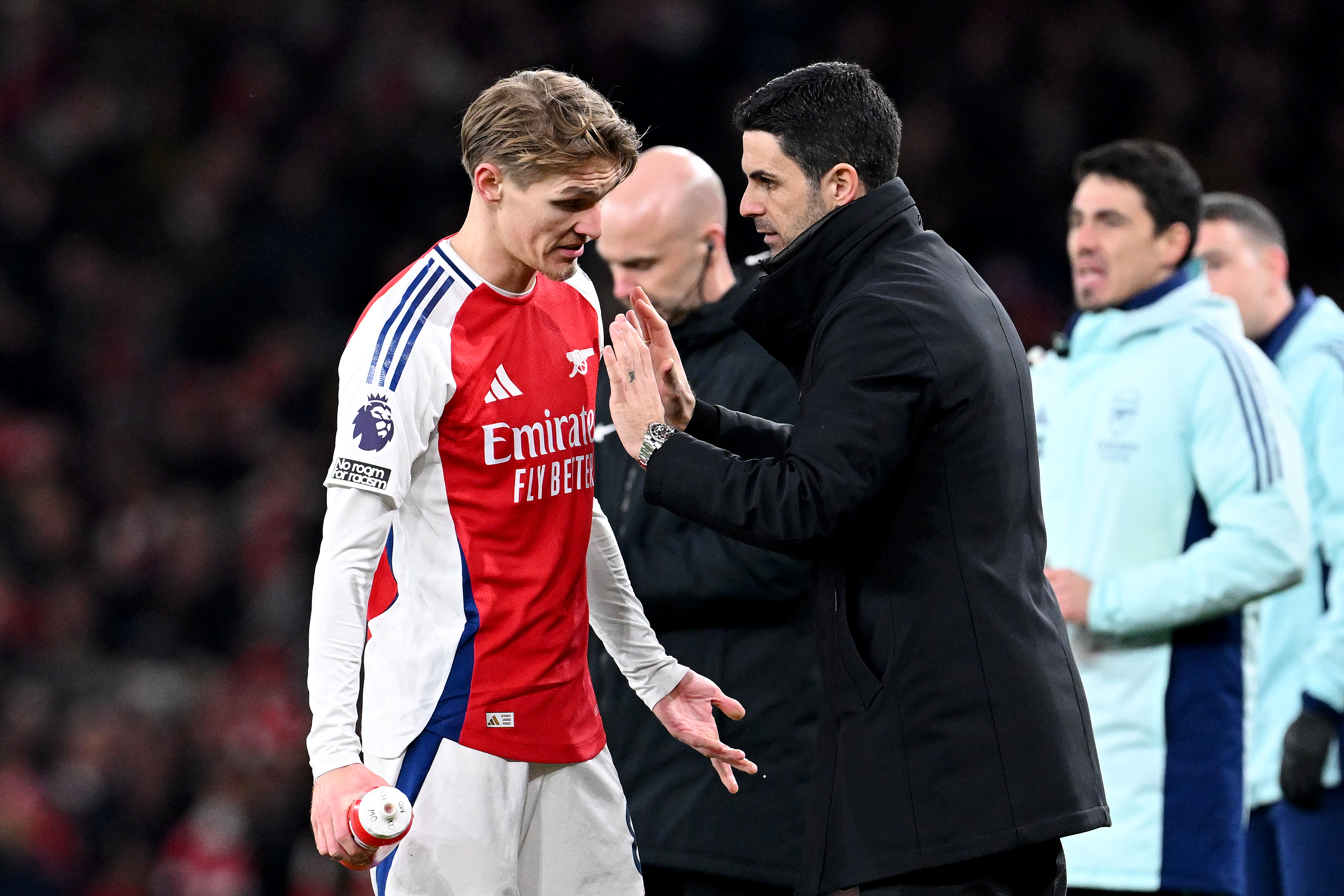Ranked! The 100 best Premier League players ever
The best Premier League players ever, as we rank the ultimate icons who defined over three decades of thrills and spills
25. Luis Suarez
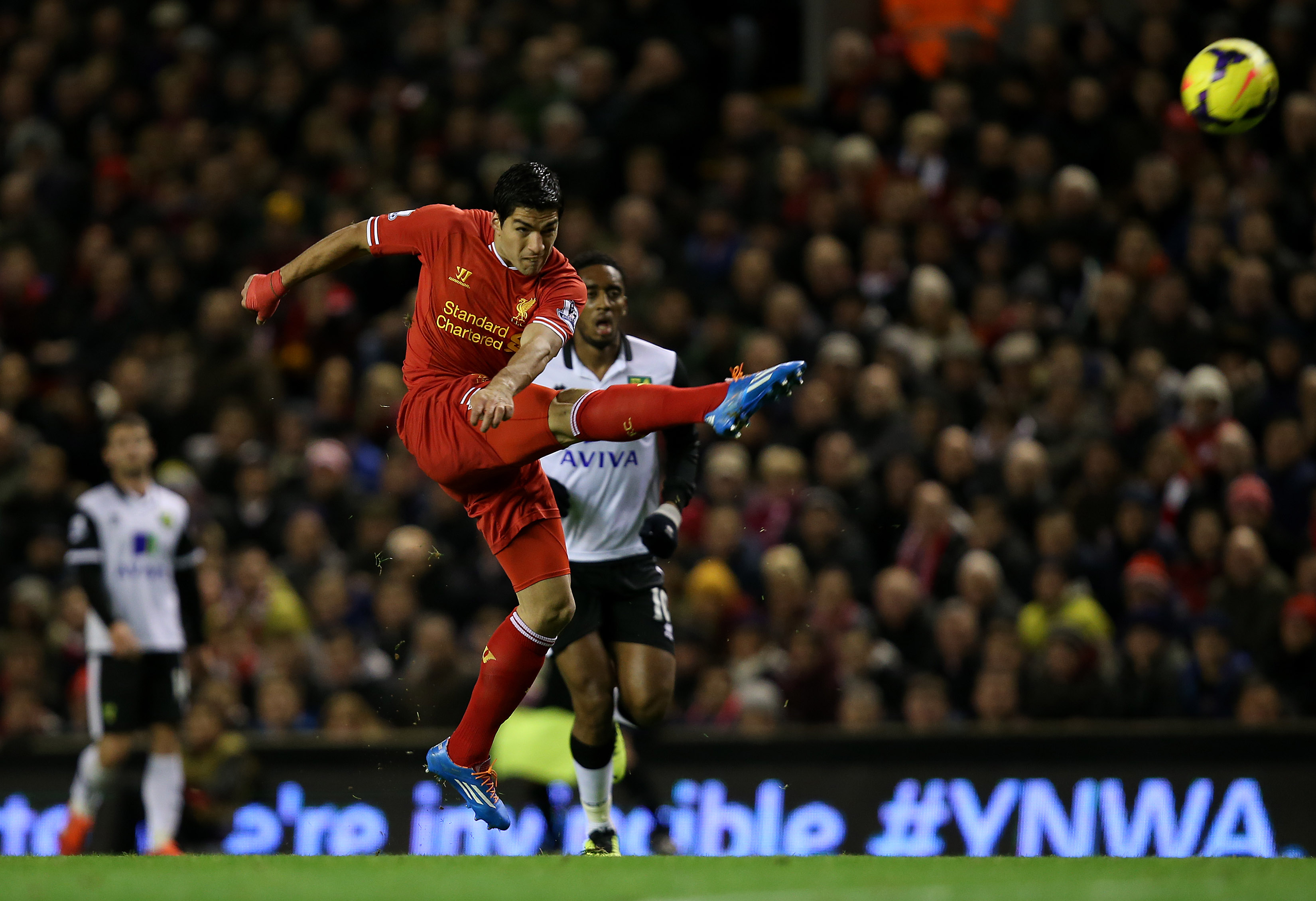
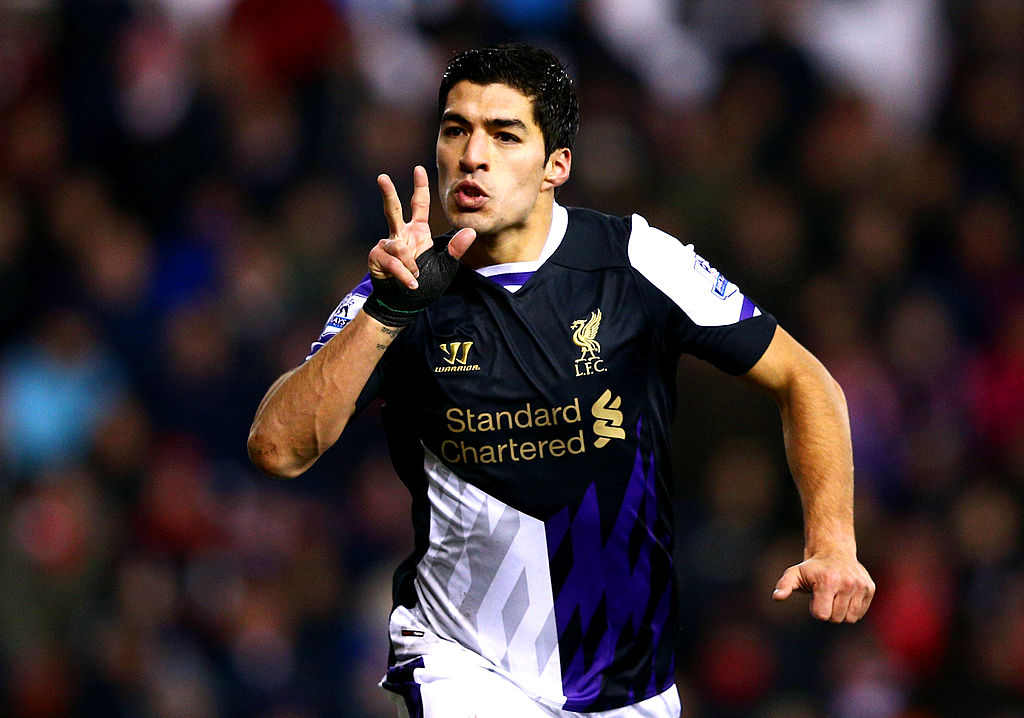
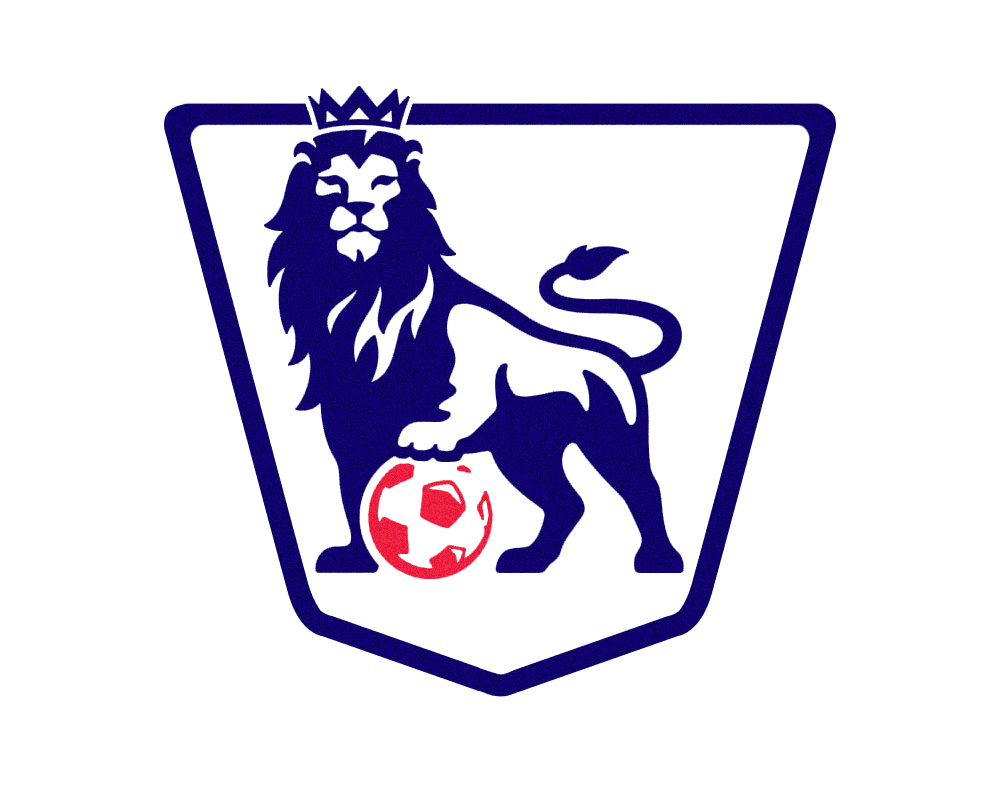
POSITION Forward
CLUBS Liverpool (2011-14)
APPS 110
GOALS 69
Luis Suarez was banned until mid-September in 2013/14. He still scored 31 goals in 33 goals and was the single biggest reason Liverpool challenged for the championship.
There may never have been a greater individual performance over a Premier League season than that. Rarely has one player ever shaped a year to their will like the Reds' electric forward throughout that near-miss of a title campaign.
He was a one-man wrecking ball. A lethal hitman who would right royally take the mickey out of you in the process. See diving at David Moyes' feet. See the audacity of his long-range efforts. See his one-man demolitions.
He was single-minded, driven and deadly but also the ideal team-mate who facilitated the fine individual campaigns of Sturridge and a teenage Sterling. He naturally left Merseyside for his calling in Catalonia – but few have put up Lionel Messi's numbers in this league quite like the Uruguayan.
24. N'Golo Kante
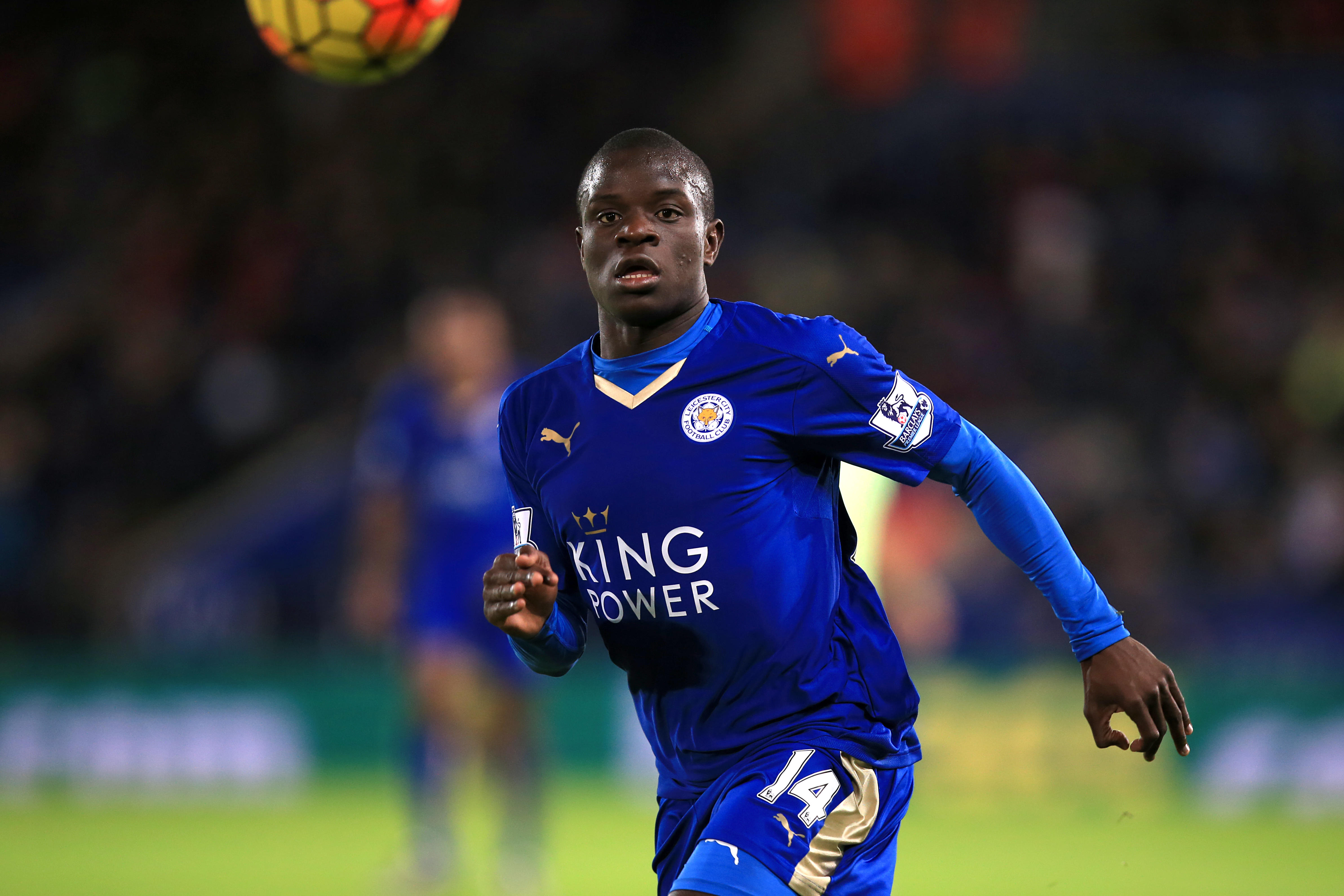
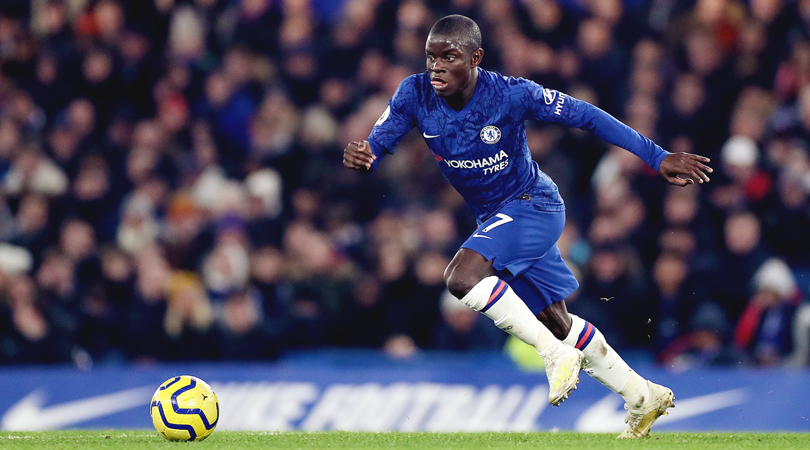
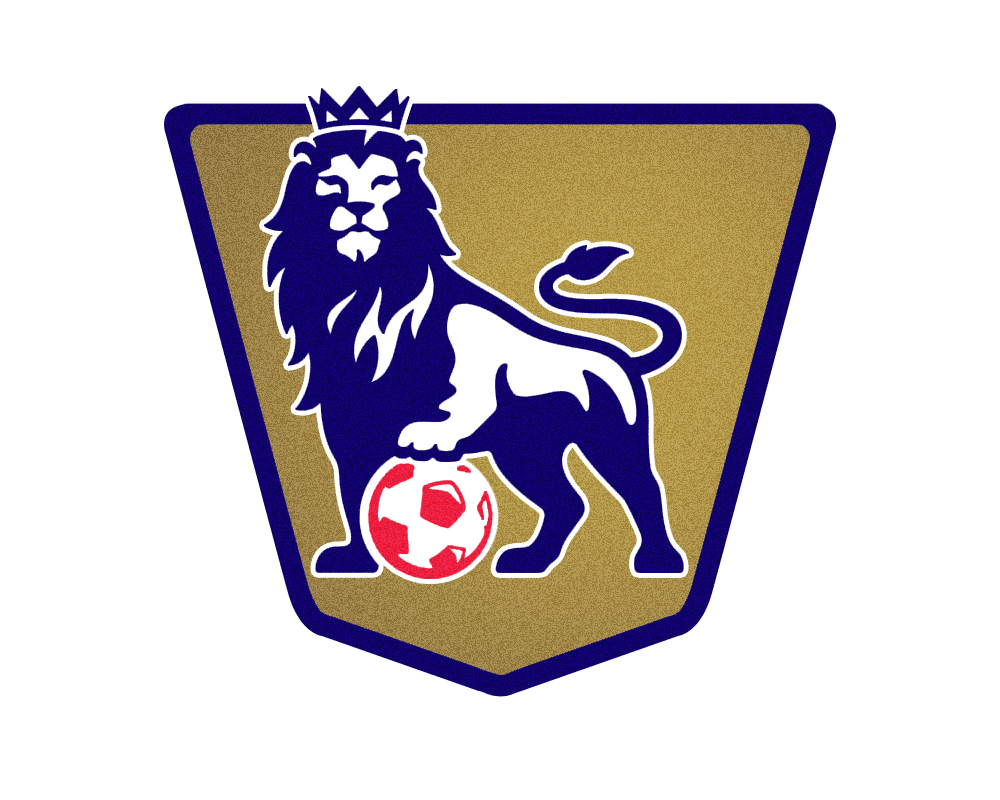
POSITION Midfielder
CLUBS Leicester City (2015-16), Chelsea (2016-23)
APPS 229
GOALS 12
How many players arrive in England as genuine unknowns?
Kante did in 2015 – then enjoyed one of football’s most magnificent breakout seasons in the unlikeliest of Premier League titles. The 5ft 6in dynamo was in France’s third tier as recently as 2013, but captured hearts – and opposition players – to secure successive titles with the Foxes and Chelsea.
His secret was simple and utterly unreplicateable by anyone else. He would swarm about the pitch with so much gusto that it would look like there were two of him. He'd do the dirty work and allow team-mates to flourish.
Get FourFourTwo Newsletter
The best features, fun and footballing quizzes, straight to your inbox every week.
Kante captured hearts – and opposition players – to secure successive titles with Leicester and Chelsea.
And over the years, it really was underrated just how much he evolved as a player. Solely a ball-winner for the Foxes, he became a box-to-box marvel for Maurizio Sarri, even anchoring a midfield on his lonesome for N'Golo Kante.
Kante was loved by team-mates, managers and fans. He could win the ball from you – and you wouldn't even notice it.
23. Dennis Bergkamp
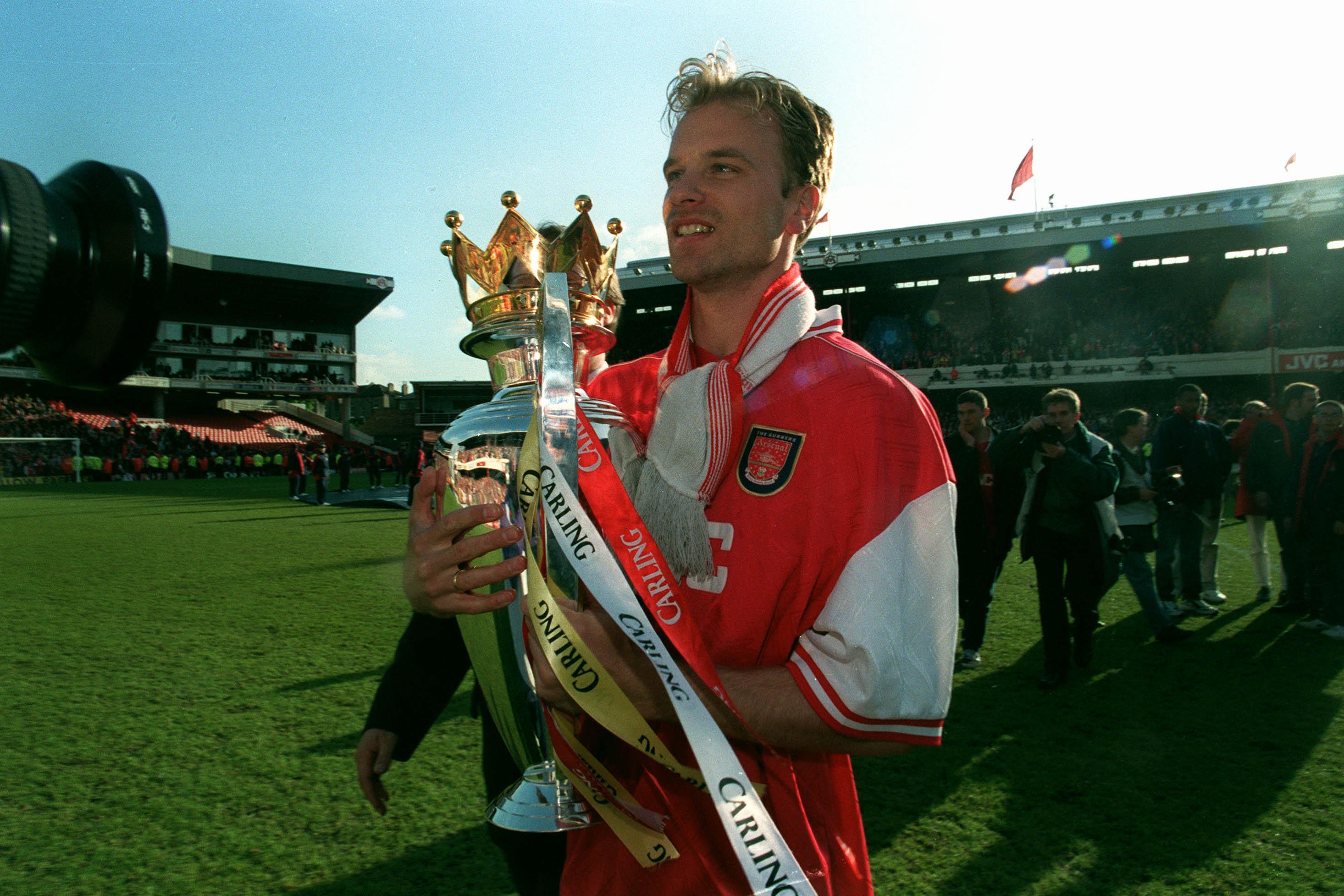
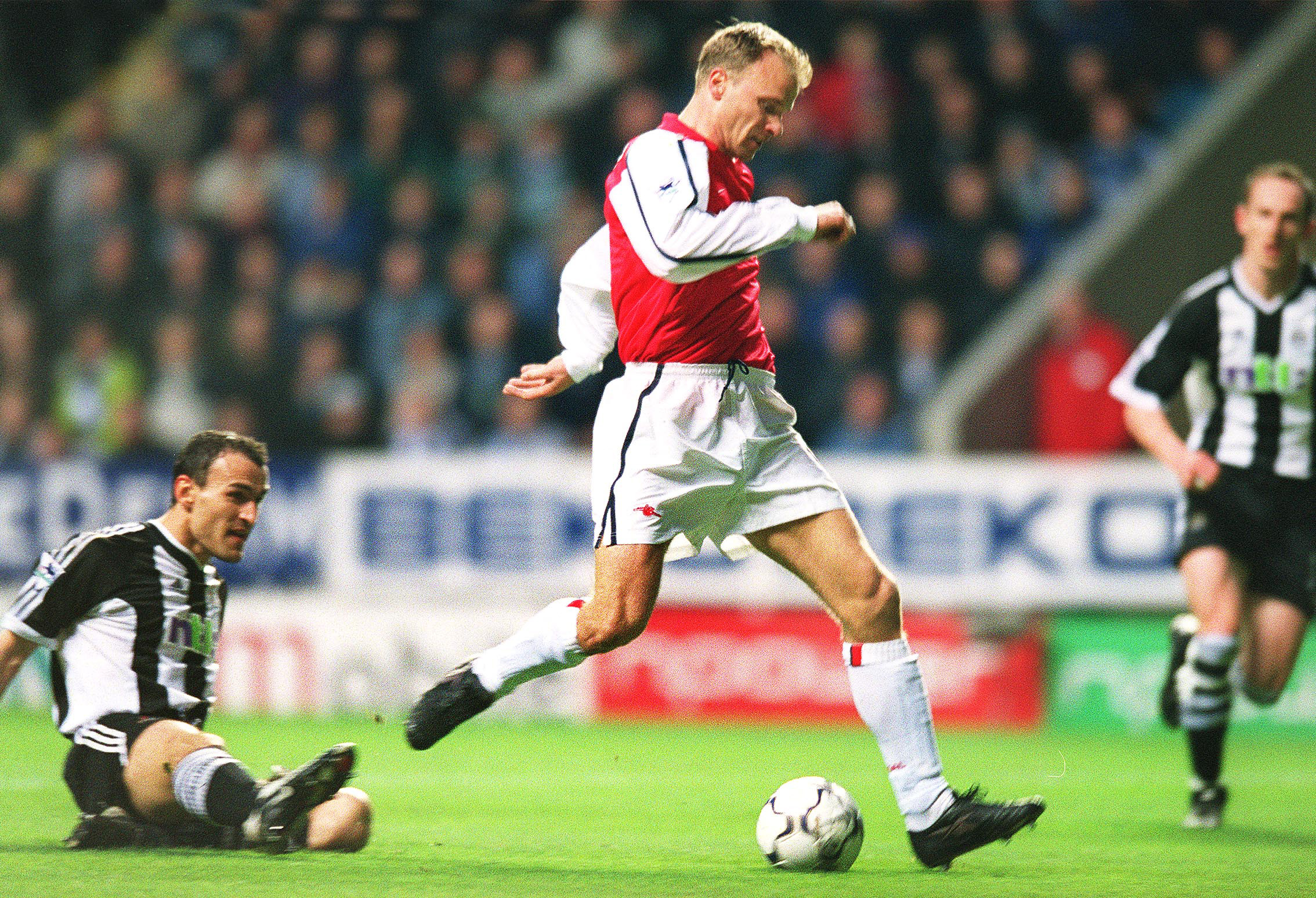
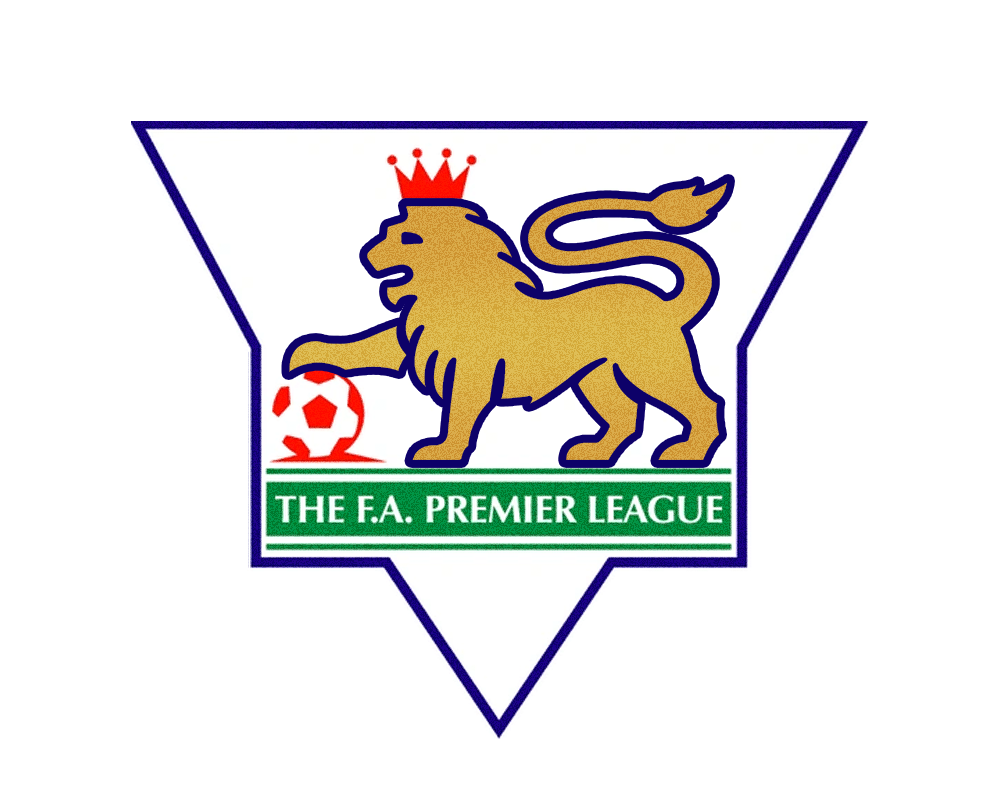
POSITION Forward
CLUBS Arsenal (1995-2006)
APPS 315
GOALS 87
He was Thierry Henry's favourite-ever team-mate. Not Zinedine Zidane. Not Lionel Messi. Dennis Bergkamp.
It’s apt that his statue at Arsenal depicts the Dutchman pulling a ball out of the sky. The maestro celebrated three titles and 87 league goals in north London. He was sent off in an FA Cup tie for a fiery clash with Jamie Carragher, he could smash a ball as well as caress it. But it’s his elegance which endures.
Lethal and incisive, Bergkamp’s gift to English football was his artistry. Few are universally loved beyond the clubs they made their name with. The ‘Ice Man’ is, though.
Whether it was the sumptuous hat-trick against Leicester, the magnetic control of that goal against Newcastle United or simply the way the ball stuck to his feet like velcro, a generation watched him and were mesmerised. He was a true superstar.
22. Rio Ferdinand
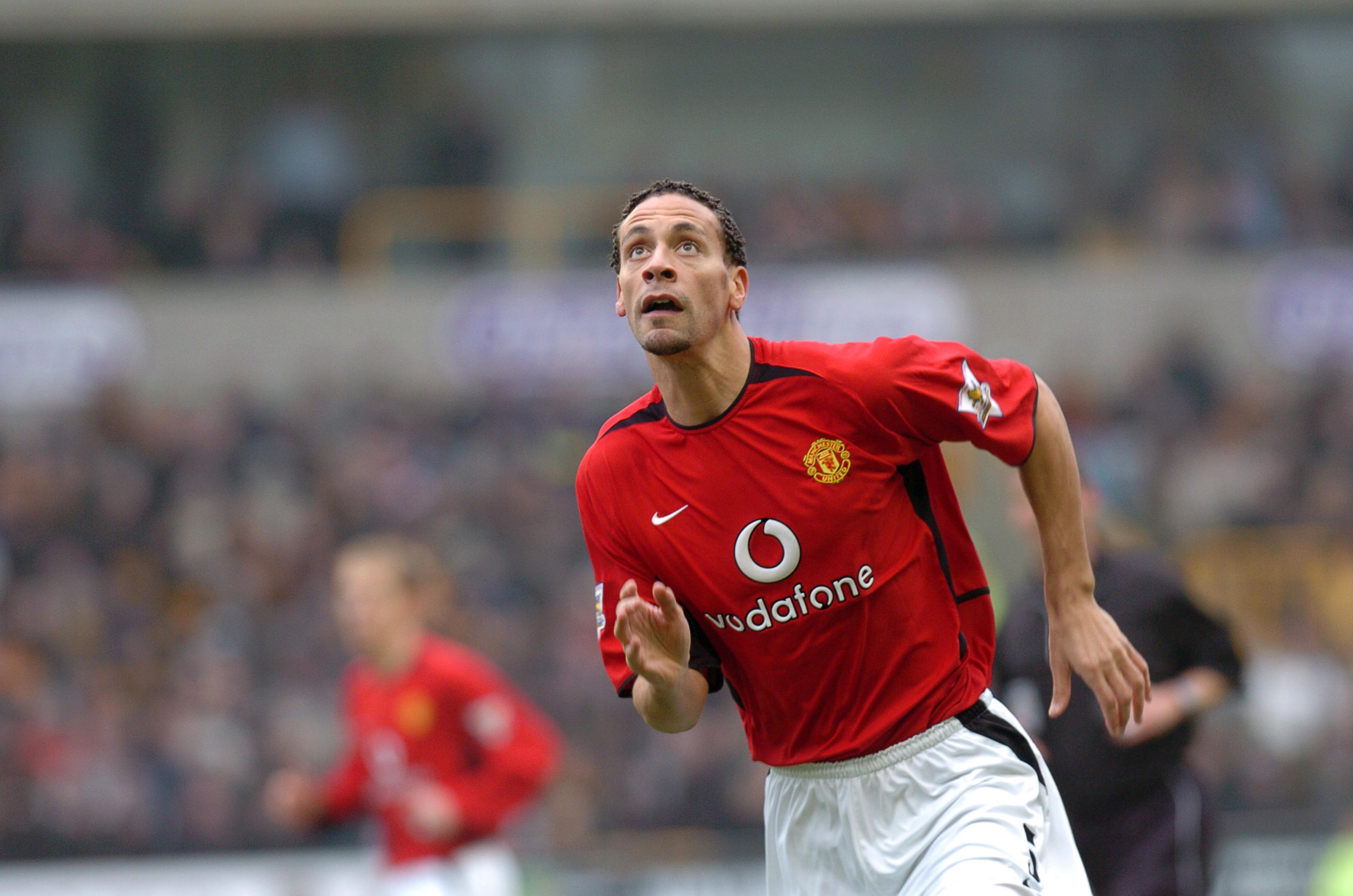
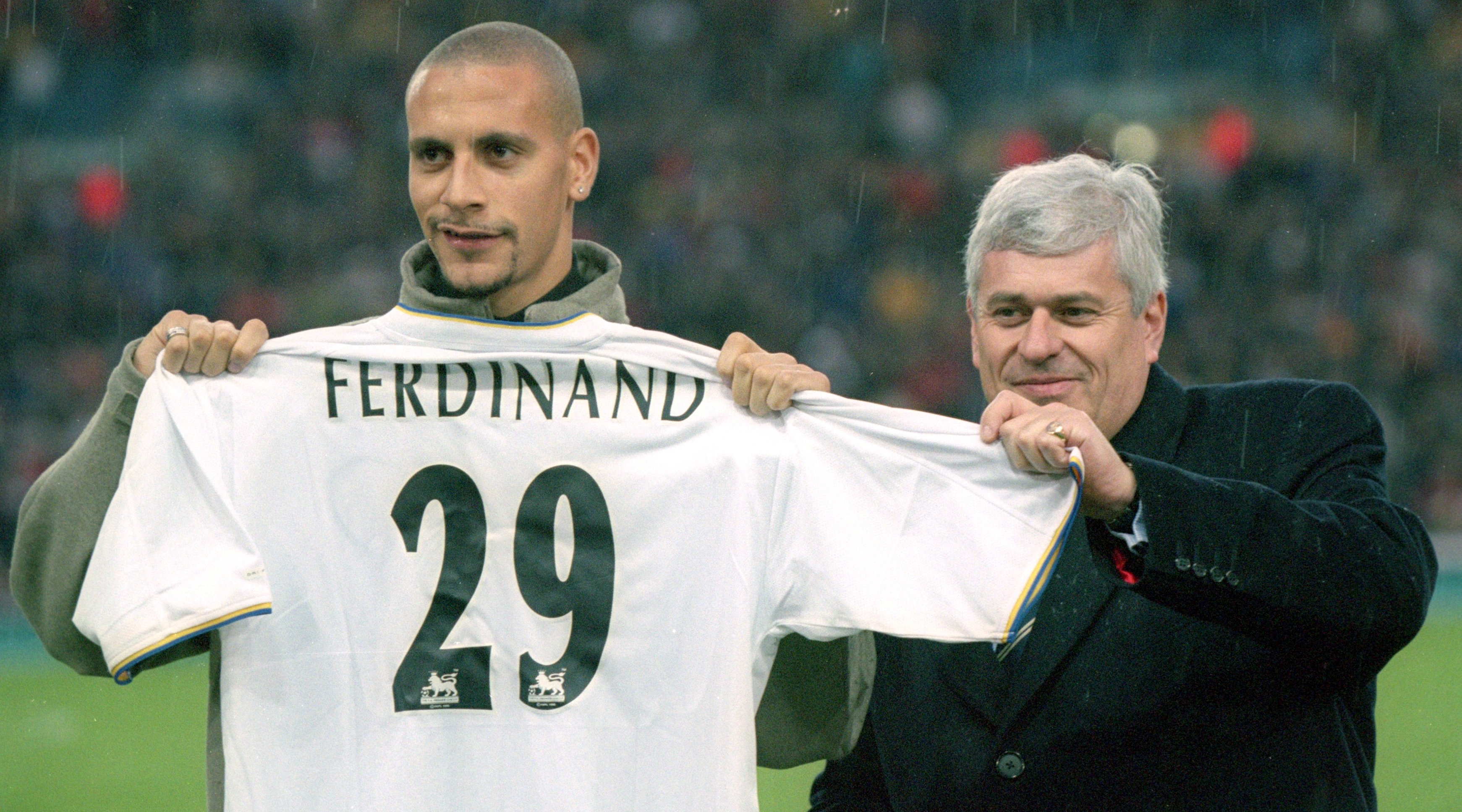

POSITION Defender
CLUBS West Ham United (1995-2000), Leeds United (2000-02), Manchester United (2002-14), Queens Park Rangers (2014-15)
APPS 504
GOALS 11
As a lad, the Peckham native famously turned down a five-year scholarship at the Central School of Ballet to focus more on football. His career was no less on pointe.
Tall, strong, graceful and effortlessly calm in possession, there was something gloriously cultured to Ferdinand, twice the world’s most expensive defender. He was a player that England had simply never produced before.
But with the grace on the ball came a robotic mentality and Rio soon graduated Sir Alex's diploma in defending. Ferdinand could switch play with ease, could pass out of the back at a time where he was a genuine outlier for daring to – but oh boy, could he lock up attackers like the best of them.
The trophy cabinet highlights it. Aside from being a champion of Europe and the world with Manchester United, Ferdinand was a true leader in the backline of six titles at Old Trafford, showing himself to be a complete defender. For all the promise shown at West Ham and Leeds – that saw a combined £50m or so laid at his feet, in an age where that meant something – he probably surpassed all expectation.
He laid the groundwork for ball-playing centre-backs but Ferdinand was so much more. A defender to put your mortgage on: stylish and steely in equal measure.
21. Rodri

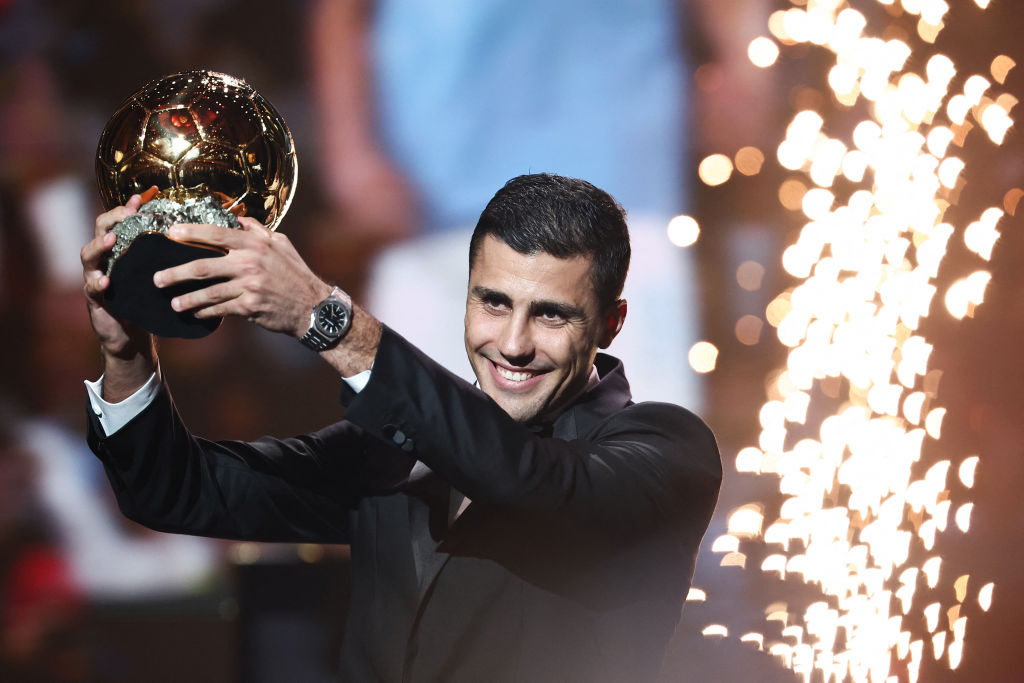

POSITION Midfielder
CLUBS Manchester City (2019—)
APPS 174
GOALS 22
The defensive midfielder was never the most glamorous of roles, was it?
That was until Pep Guardiola took his education in Catalonia into the dugout with him, revolutionising the sport and giving a little more street cred to the position that he himself mastered under Johan Cruyff. Sergio Busquets was a hell of a first project; Xabi Alonso was outstanding for Pep at Bayern. And then Yaya Toure and Fernandinho both perfected the role for City.
But Rodri is surely his his favourite no.6 he's had in Manchester. It's not just his combination of keeping the game ticking and breaking up play. It's not just in his passing range, his timing to trigger the press or the technical facets that made Rodri City's undisputed MVP – as shown after his ACL injury. Pep must love Rodri like a son for his heart as much as his head.
Pep must love Rodri like a son for his heart as much as his head.
Who else steps up when the chips are down? It's the Spaniard – who famously struck a Champions League goal and delivered in the Premier League on countless occasions. The kind lead-by-example guidance that he gives to team-mates, the driving efforts from range, the pinpoint passes when all around are floundering. Without Rodri, City are rudderless.
The most important player of the only team to have won four back-to-back league titles in English football? It's a fair assessment. Winning the Ballon d'Or was merely the midfielder rightly receiving his flowers. Perhaps post-Rodri, the role will be seen with a little more glamour.
20. David Beckham
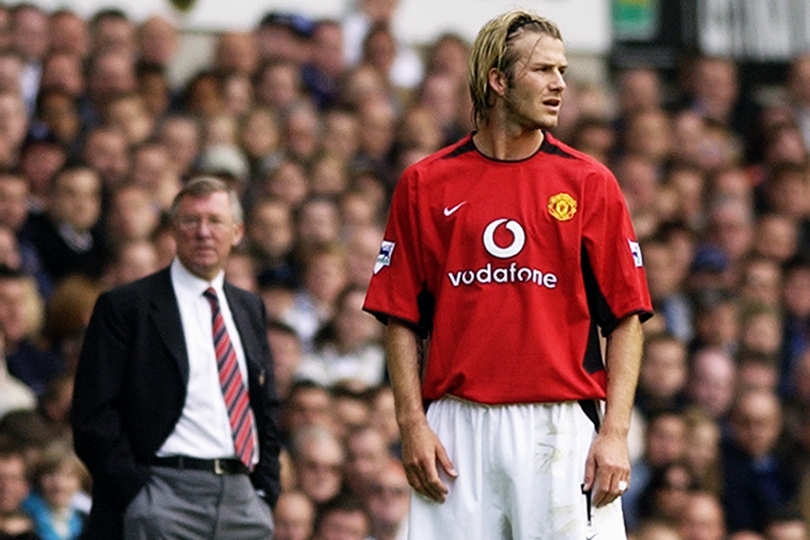
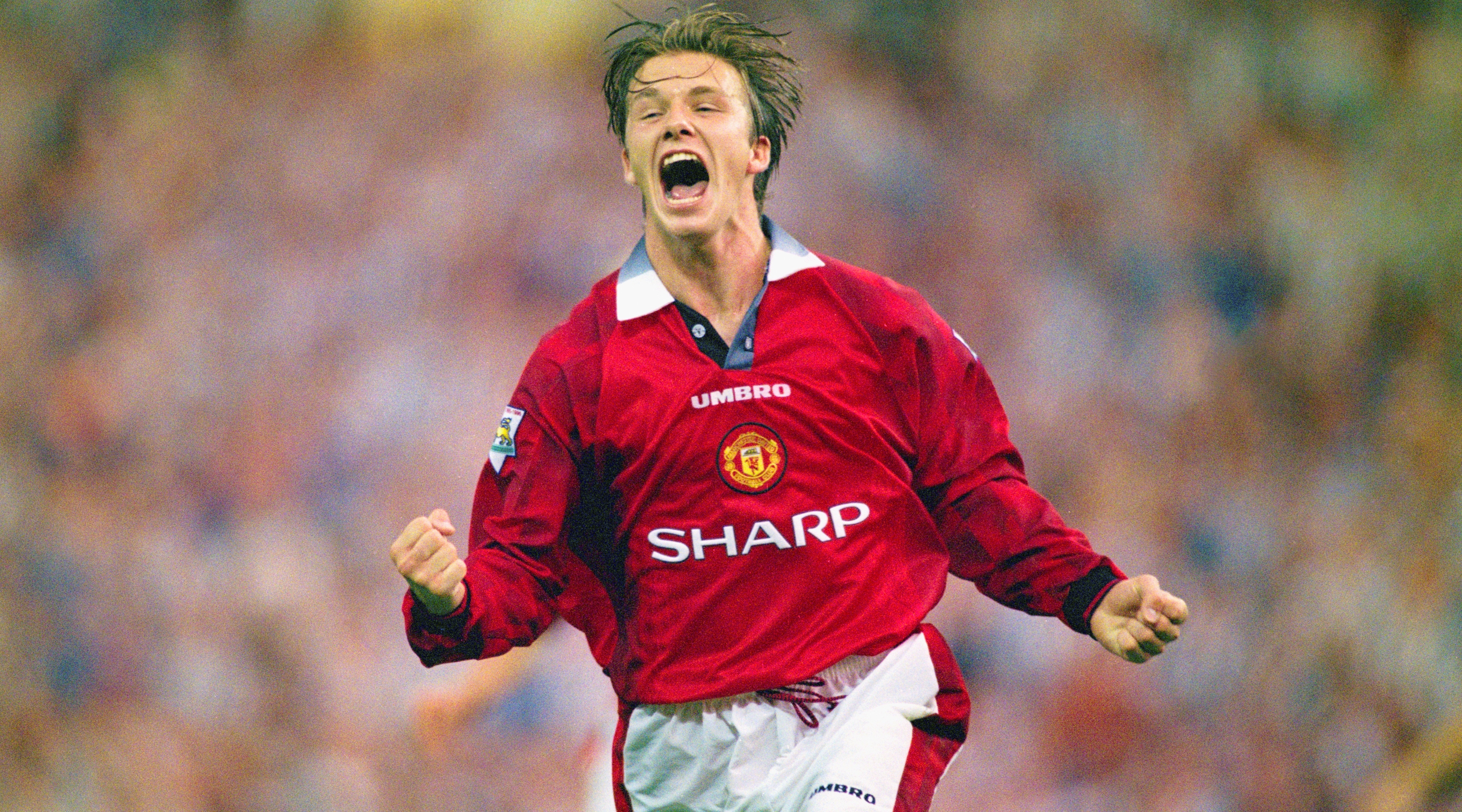

POSITION Midfielder
CLUBS Manchester United (1992-2003)
APPS 265
GOALS 62
Some downplay David Beckham as nothing more than a celebrity. Perhaps they blame him for WAG culture, or maybe it's just not cool to rate the guy – after all, David Beckham being your favourite footballer could well come across as like being a Coldplay superfan.
For anyone who watched the man play football, it's utter nonsense, of course. To see Goldenballs stand over a free-kick was akin to your average Joe given a penalty.
Beckham earned his status in the mainstream because of his ability with the ball, rather than despite it. He was a superstar of the very highest order – as evidenced by the Galactico switch in 2003 and finishing second in the Ballon d'Or when Manchester United won the Treble.
But with every inspection of the super-famous, there were misconceptions. Namely, that his laser-guided precision was bestowed by the hand of a kind deity and not just the result of hours upon monotonous hours of pinging balls at goalposts after training. Arsene Wenger would later invite him to train with Arsenal – not for the 'Gram nor the team talks but for the example he'd set for those around him.
That work ethic was ingrained, those big game performances were earned. Becks delivered countless assists in the heat of cauldrons. He was so often the difference-maker when the moment asked for someone, anyone, to step up. It may have felt like divine luck of a writer's pen that it was always him – or maybe that he was simply used to such blinding lights.
He was simply that guy. He had the aura. He could run a game from the right wing, make someone else the hero with an assist or pop up when the headlines needed writing. David Beckham was every inch the superstar because he worked himself into the ground to be – and he deserved every drop of the plaudits.
19. Petr Cech
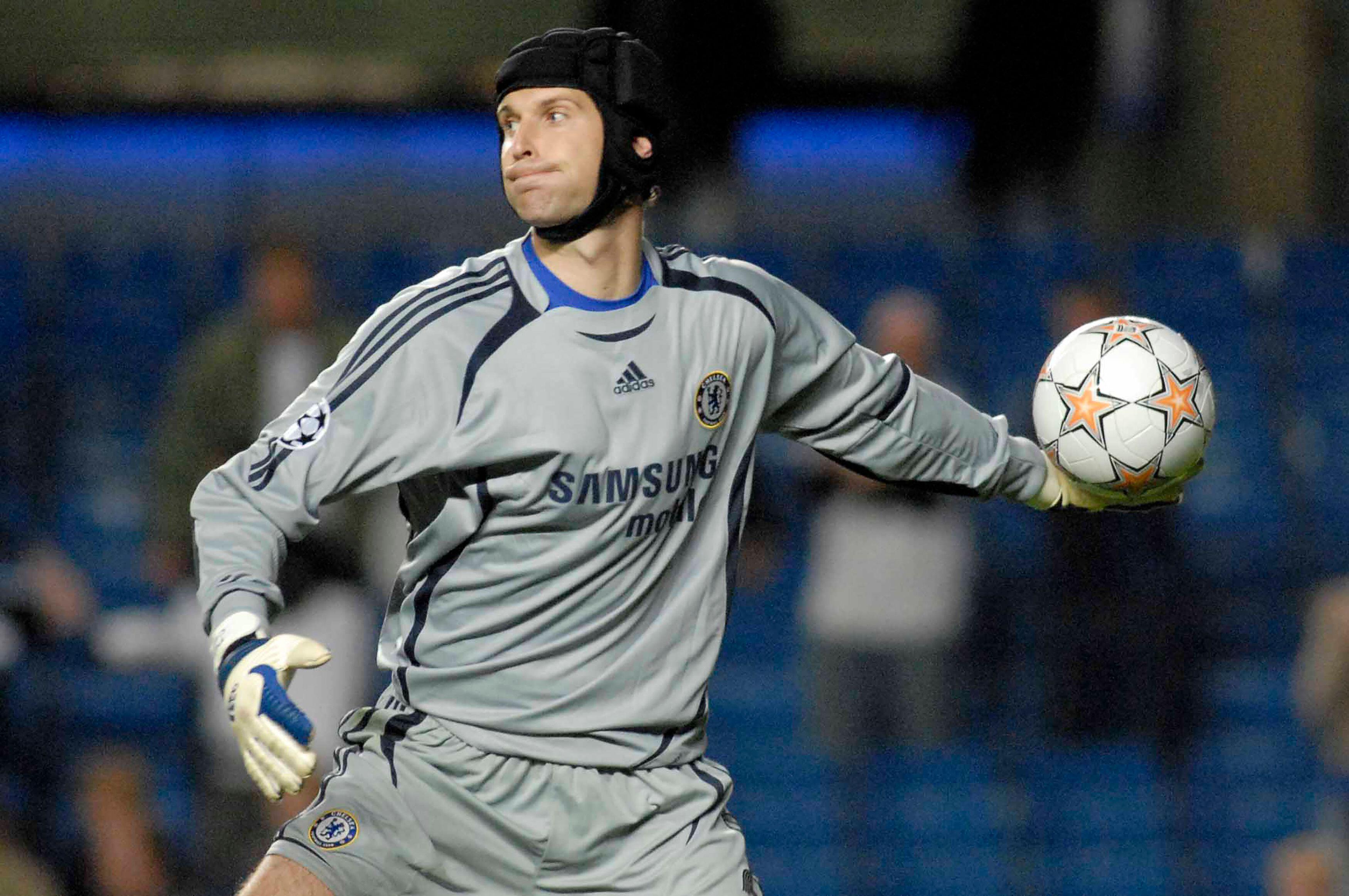
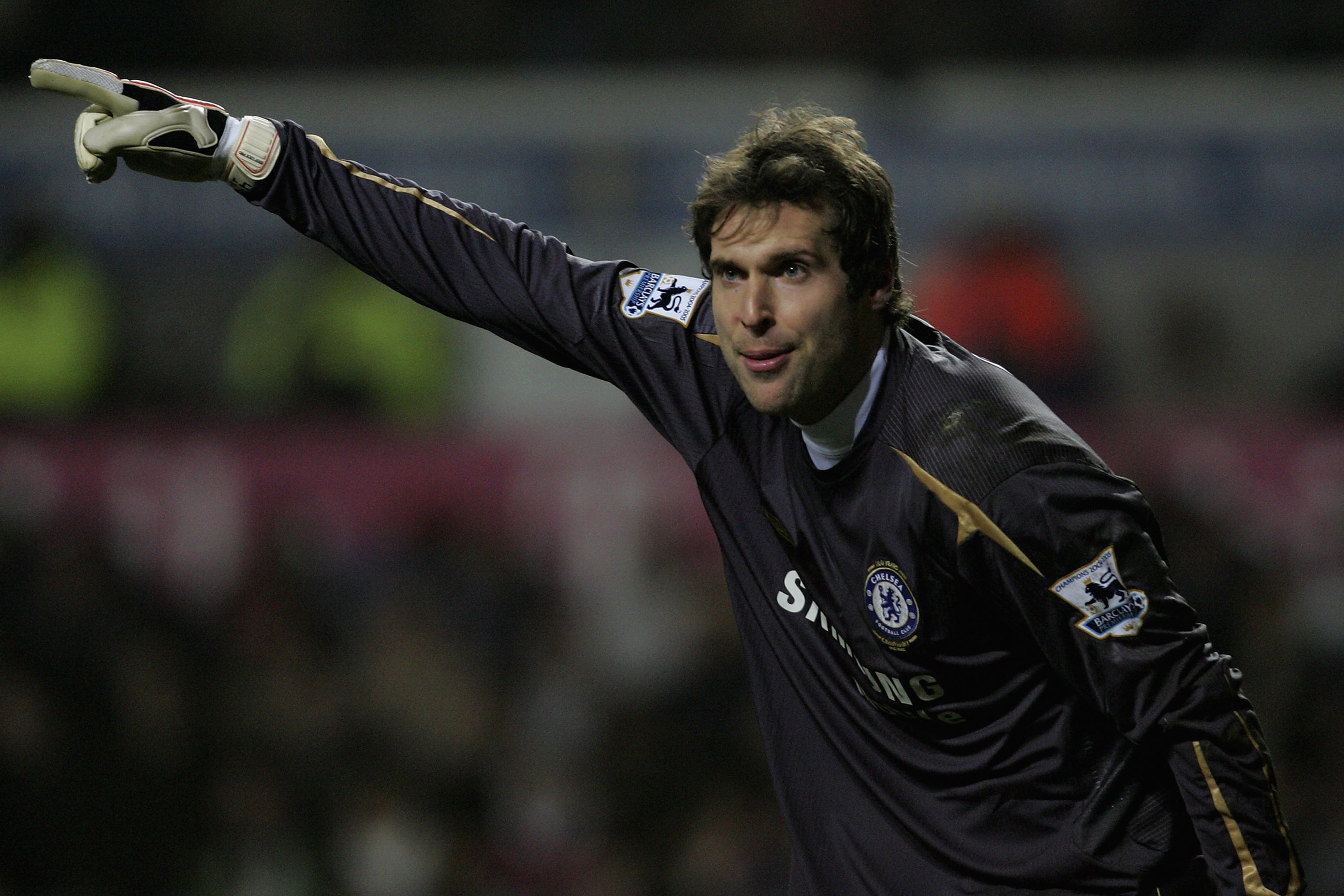

POSITION Goalkeeper
CLUBS Chelsea (2004-15), Arsenal (2015-19)
APPS 443
CLEAN SHEETS 202
Glovemen in England have long had a reputation for being fiery or eccentric. The nutters in your team, the ones who clearly grew up playing another sport and learned that using their hands had a use in football. There's a reason that so many of them in the 90s looked at home in day-glo jerseys that have since been consigned as crimes against fashion.
Not the ice-cool Cech, though. He let in a poxy 15 goals in his maiden campaign at Chelsea, which set the tone for an outstanding top-flight career in which he won four titles and four Golden Gloves.
The Czech stopper rewrote the expectation of a modern goalkeeper. He was impenetrable, even after a horror injury that forced him to spend the rest of his career wearing a skull cap – and even after a much-maligned move to Arsenal, he still picked up a Golden Glove in North London.
His final tally of 202 clean sheets is unlikely to be topped any time soon. Goalkeepers look very different these days… and a lot of it has to do with Cech.
18. Ashley Cole
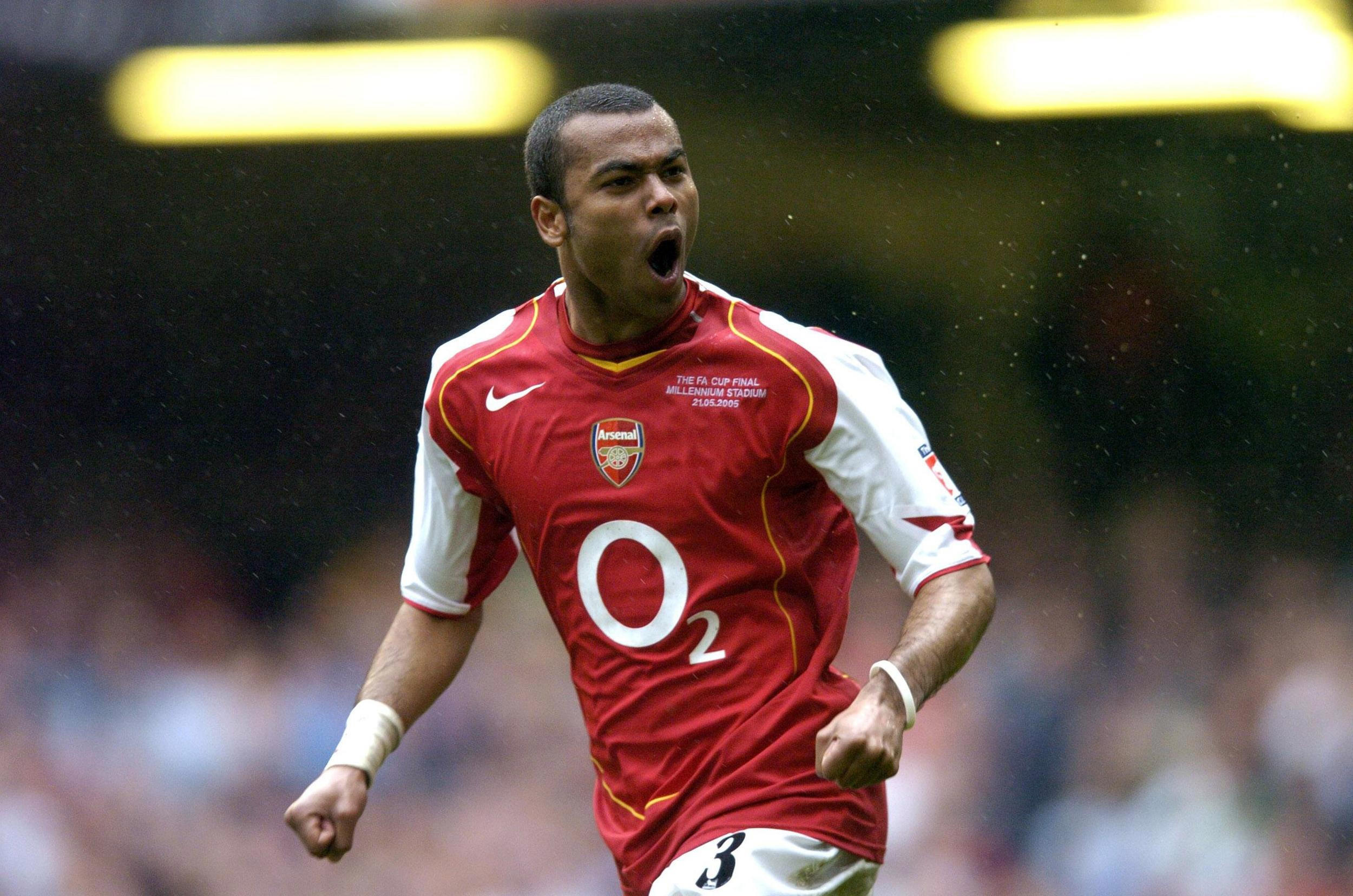
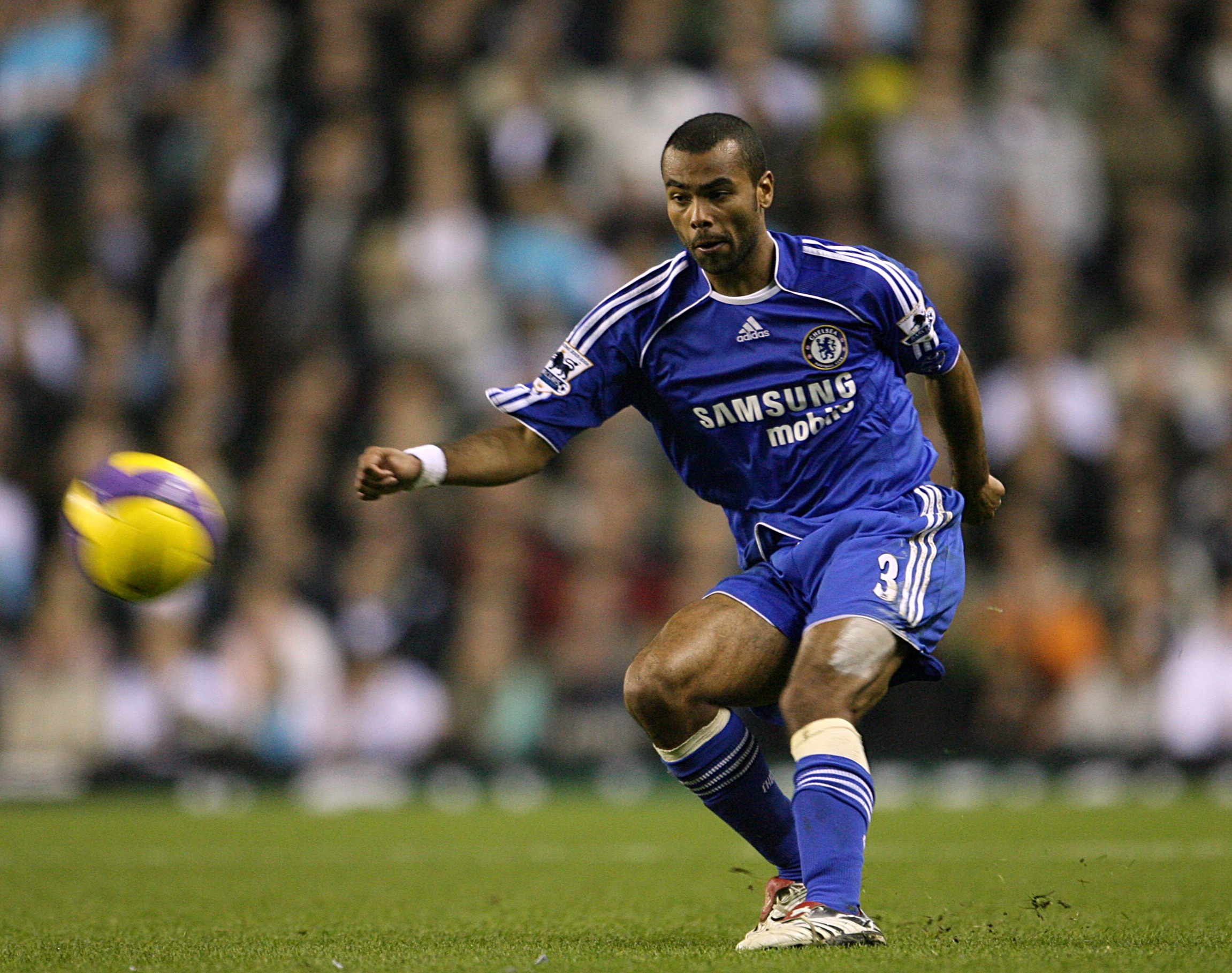

POSITION Defender
CLUBS Arsenal (1999-2006), Chelsea (2006-14)
APPS 385
GOALS 15
The cliche is that Ashley Cole's career is split into two halves – much like London in the Premier League in the 2000s.
The England man made his name as the capital's Carlos, marauding down the left flank with overlaps to support Henry and Pires. He was an attacker from deep and a key influence in the cultural change of how full-backs were viewed in this country. It's claimed that after Jose Mourinho got his hands on him, he suddenly got a degree in Paolo Maldini studies to keep attackers on lockdown, becoming the very opposite of what made him great in the first place.
But like most good stories, that's somewhat exaggerated. Cole was always both sides of the same coin. He first pocketed Cristiano Ronaldo at Euro 2004 as an Arsenal man; he was a valuable asset going forward for Chelsea.
Simply put, Cole may well be the most complete full-back that English football – even European football – has ever seen. The Stepney native was like having two players in your team: one to hurt opponents, one to silence them.
And he stepped out almost fully formed from the off, ousting established stars Sylvinho and Gio van Bronckhorst. By the time he left the Blues in 2014, he'd barely lost a yard of brilliance. Cole was a machine, a picture of consistency and simply one of the most reliable footballers ever seen on these fair shores.
17. Peter Schmeichel
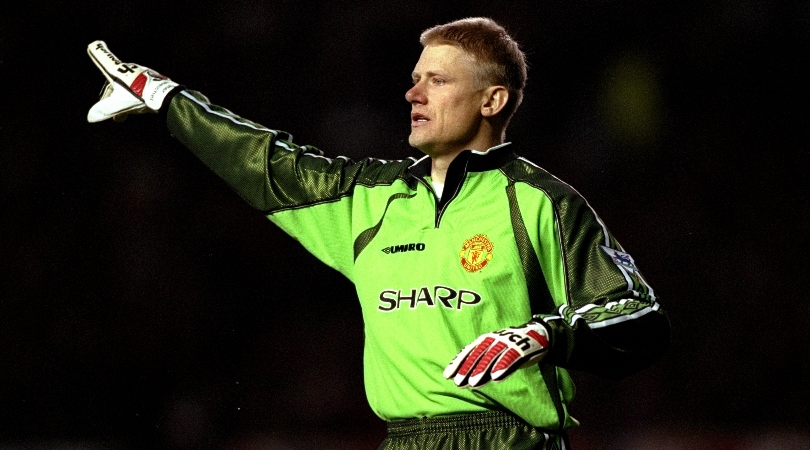
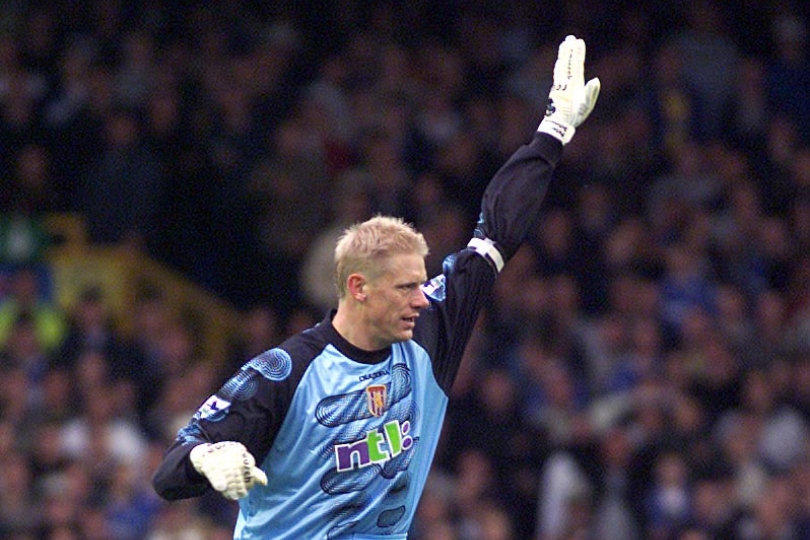
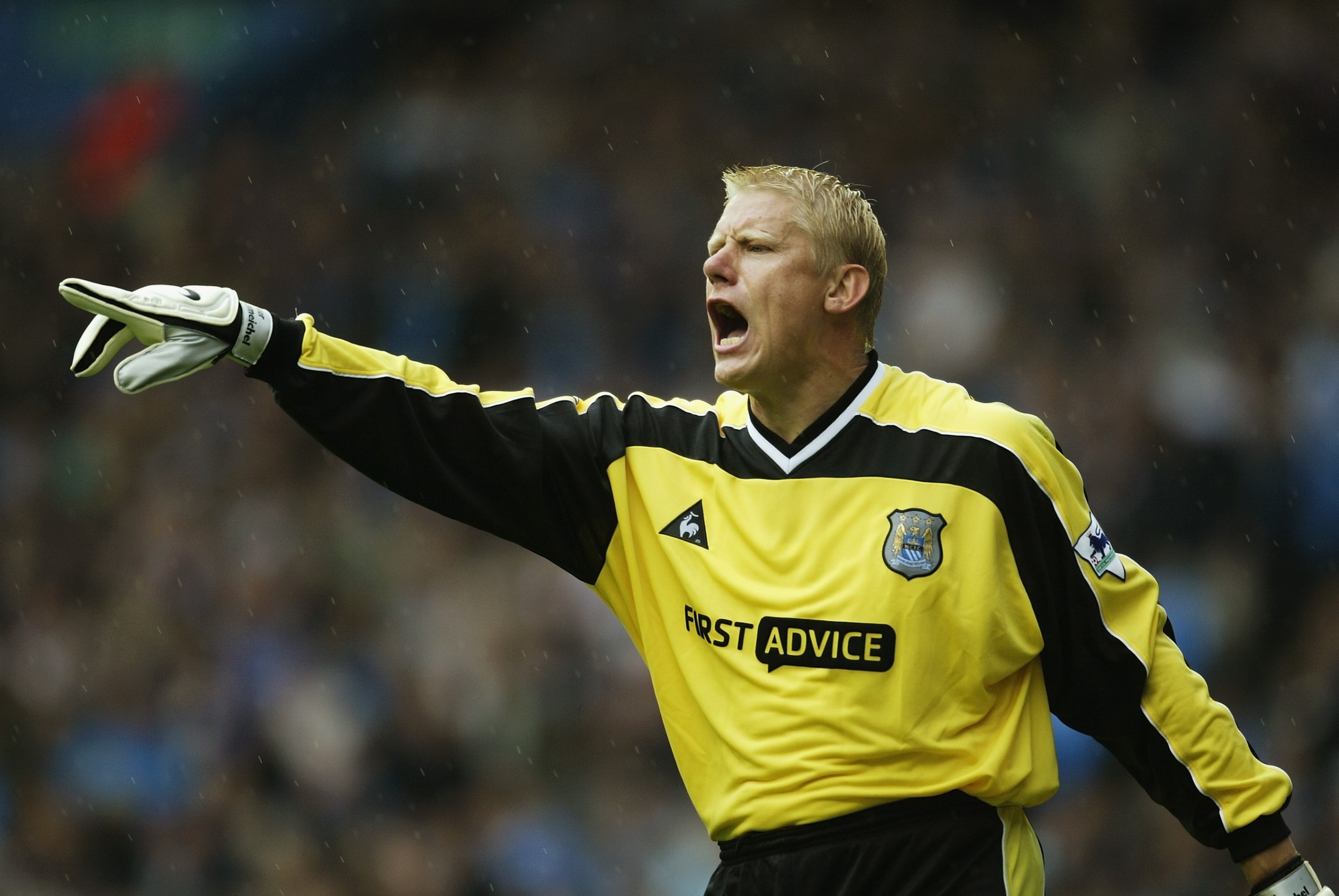

POSITION Goalkeeper
CLUBS Manchester United (1992-99), Aston Villa (2001-02), Manchester City (2002-03)
APPS 310
CLEAN SHEETS 128
Following in the footsteps of Bert Trautmann, Peter Schmeichel arrived in England as an unknown goalkeeper from overseas who would become adored by Manchester. He was a true superstar of the 1990s.
“Bargain of the century,” was Alex Ferguson’s assessment of the great Dane, plucked from Brondby for £505,000 in July 1991. Schmeichel was United’s finest goalkeeper, his leadership, bravery and reflexes essential in five whole title wins, before bowing out on a high after the 1999 Treble.
He even had time for two more stints in the Premier League – once where he netted the first goal in the Premier League ever scored by a keeper, for Aston Villa. He was imperious, he was ice cold and he struck the fear of god into attackers.
The best goalkeeper in Premier League history? For our money, yes. And the most iconic to boot.
16. Ryan Giggs
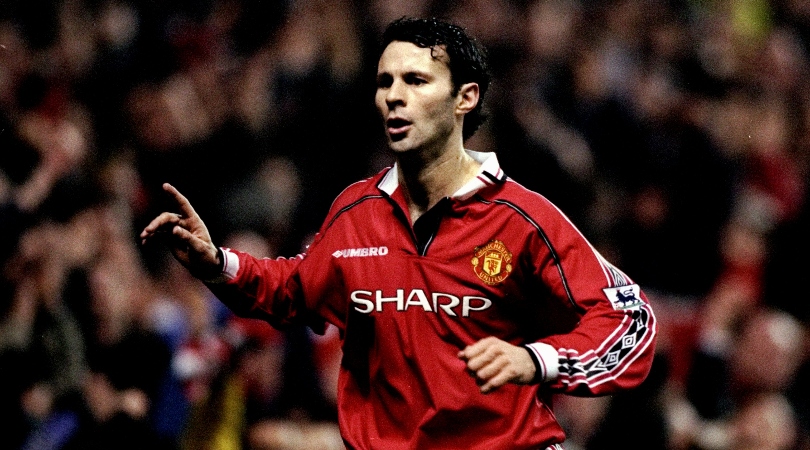
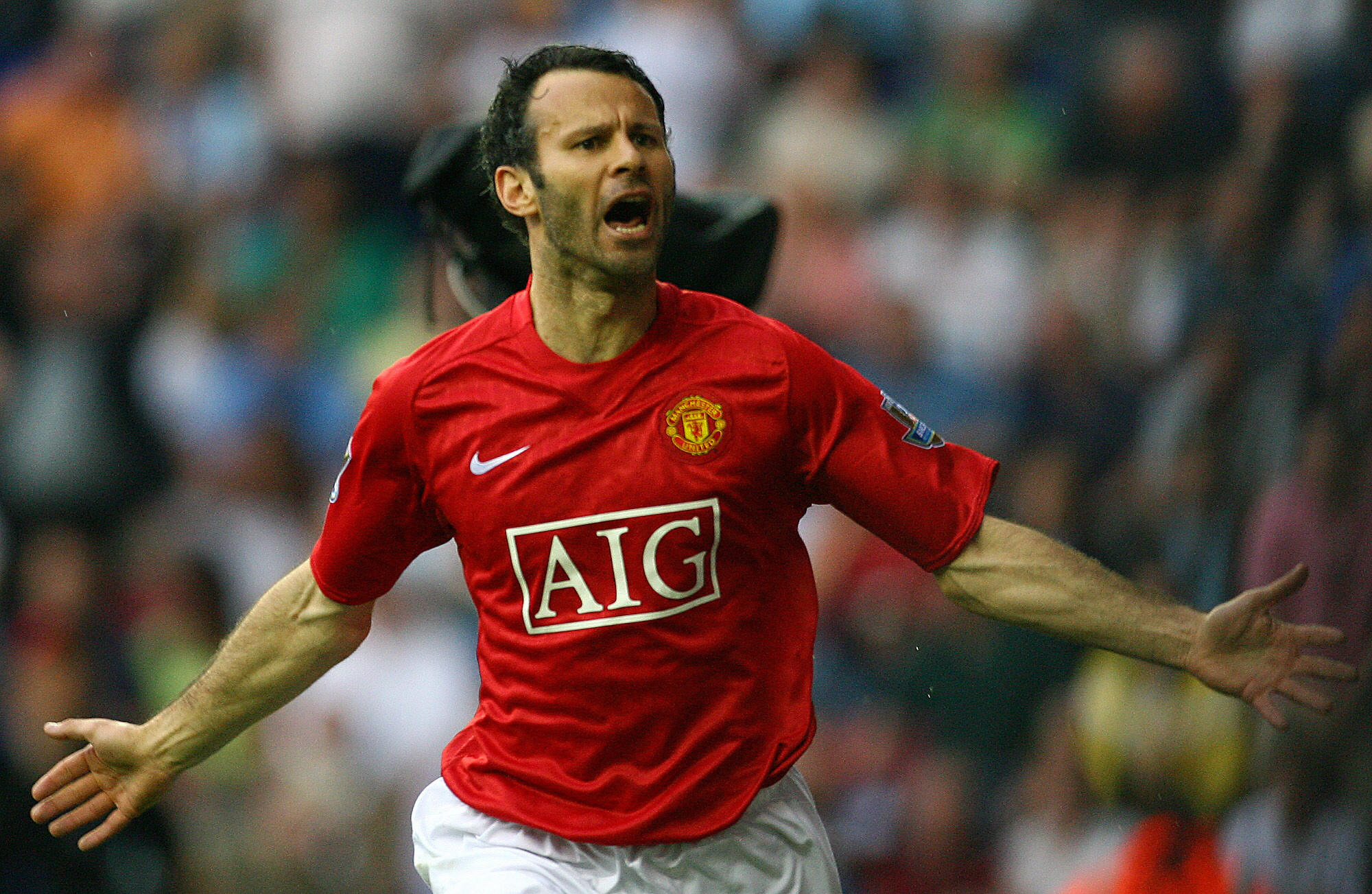

POSITION Midfielder
CLUBS Manchester United (1992-2014)
APPS 672
GOALS 114
“I remember the first time I ever saw him,” recalled Alex Ferguson of Giggs in his 2013 autobiography. “He was 13 years old, and just floated over the ground like a cocker spaniel chasing a piece of silver paper in the wind.”
The Scot gave a 17-year-old Giggs his debut in March 1991, the Welshman becoming a regular the following season and repaying his manager’s faith with back-to-back PFA Young Player of the Year campaigns. The pin-up boy’s searing pace and dribbling paved the way for Fergie’s other fledglings to make their debuts over the following years – he showed the Class of ’92 what was possible.
Giggs might be a contender for the greatest Manchester United player of all time – the midfielder racked up 963 appearances for the Red Devils, more than anyone else. He wasn’t just a solid squad player, but consistently ace for the world’s biggest club over two decades. Others may have had marginally more impact, but Giggs tore them apart. Again and again.
15. Paul Scholes
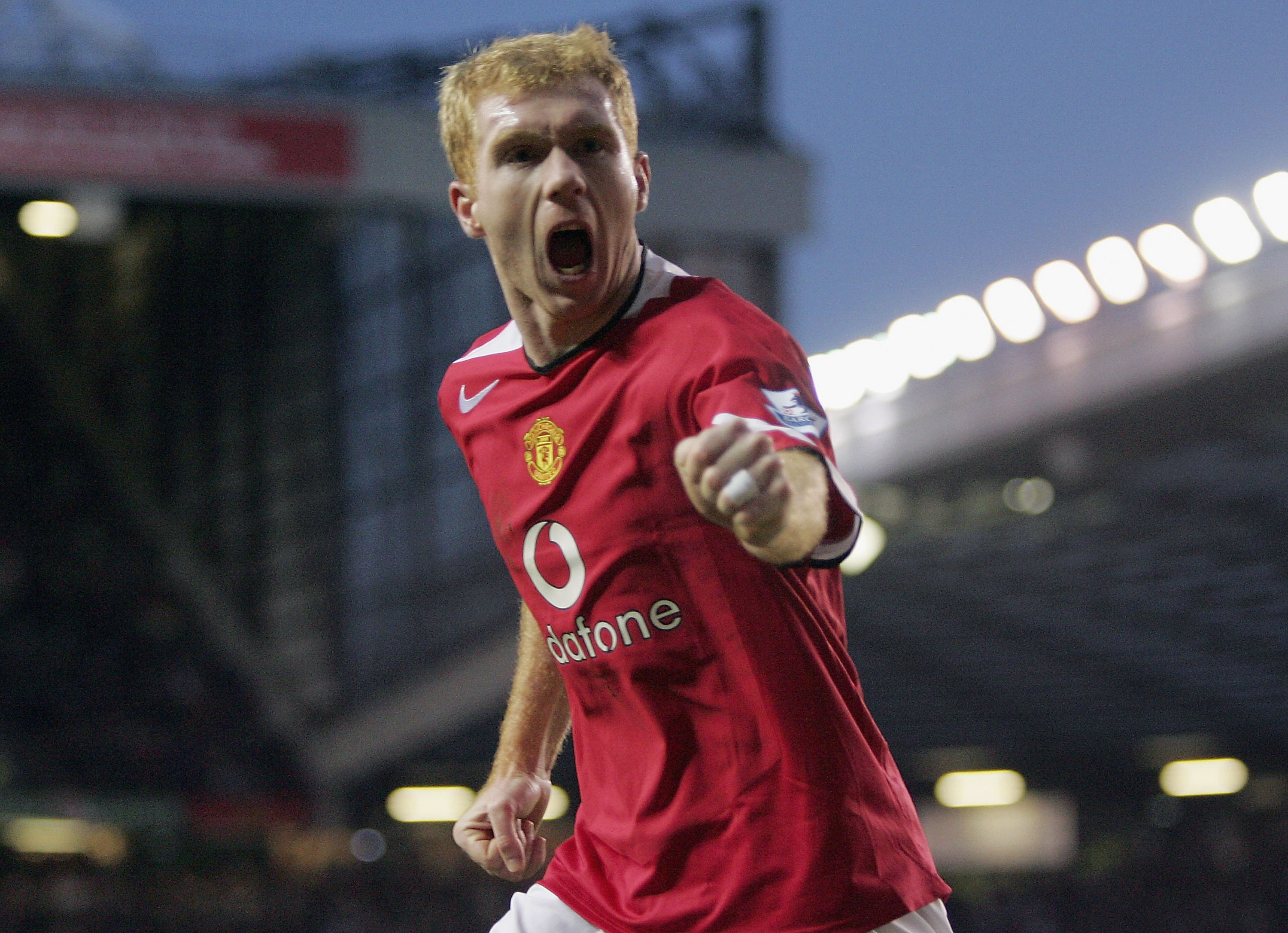
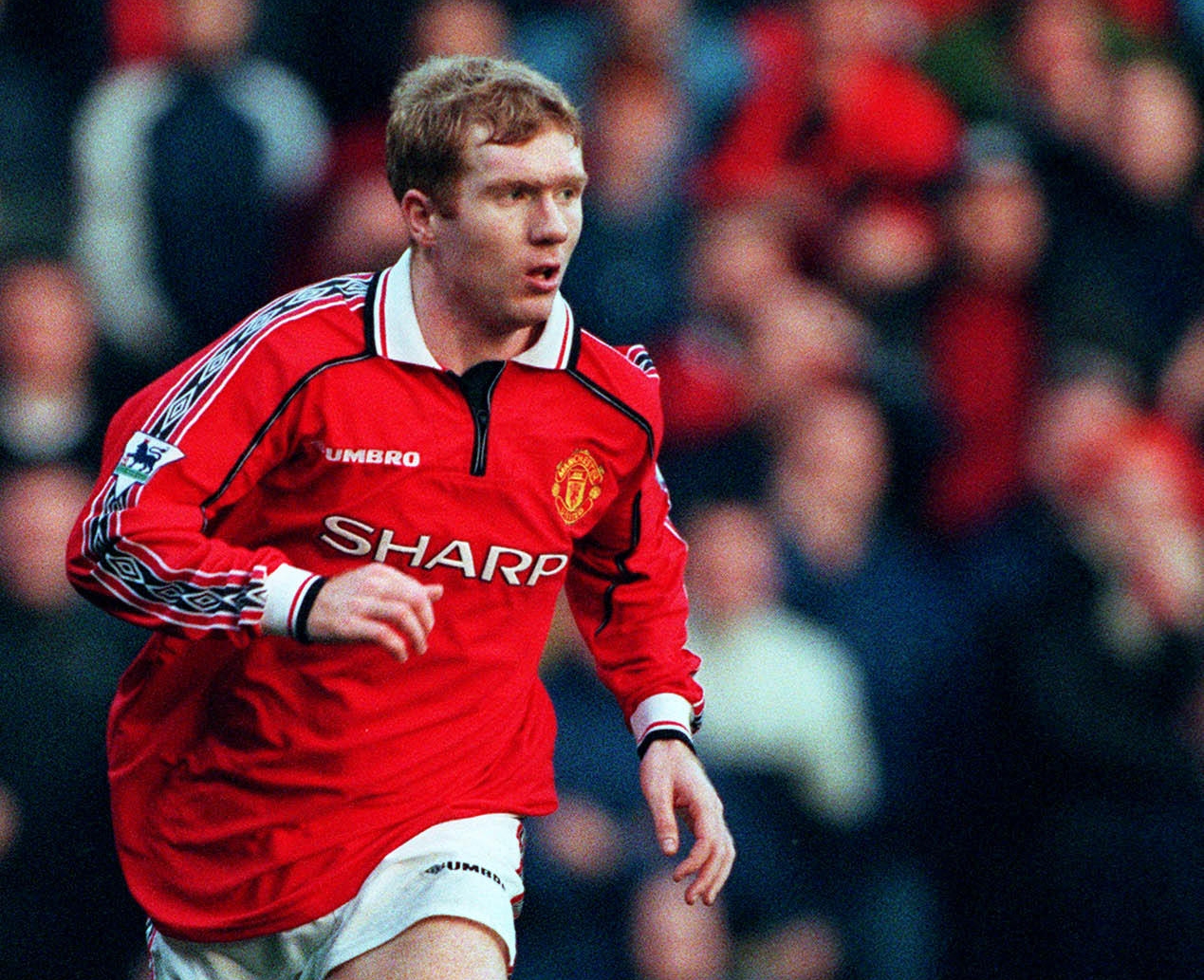

POSITION Midfielder
CLUBS Manchester United (1994-2011, 2012-13)
APPS 499
GOALS 107
The United Stand's Jamie Ward on why Paul Scholes was the true ‘Player's player’
Scholes was not only the best player – he was the best English player of a generation. A raw, once-in-a-lifetime talent.
Thierry Henry names him as the one player he wishes he could have played alongside – as did Pep Guardiola. Barcelona legend Xavi claims Scholes would have been rated even higher had he been Spanish.
Andrea Pirlo calls the Class of ’92 graduate the “truly great English midfielder of his generation”. Zinedine Zidane, one of the game’s legends, cites not playing with Scholes as the biggest regret of his playing career.
You get the idea: Scholes was a true players’ player. Liverpool and Chelsea supporters will say he was shoved over on the left for England because Gerrard and Lampard were better. Sven-Goran Eriksson will say it was because he was the only one of the three who could adapt to the positional change.
His England team-mates plundered more goals, yes, but remove Gerrard’s 32 Premier League penalties and his tally (88) drops well below Scholes’ 106. Remove Lampard’s 43 spot-kicks and his goal average moves in line with the United man’s.
Arsenal supporters will bring Patrick Vieira into the debate. The Frenchman was indeed phenomenal for the Gunners, but even he concedes that Scholes was the player “who could do everything”.
The only answer is Scholes… and I haven’t even mentioned his trophies.
14. Patrick Vieira
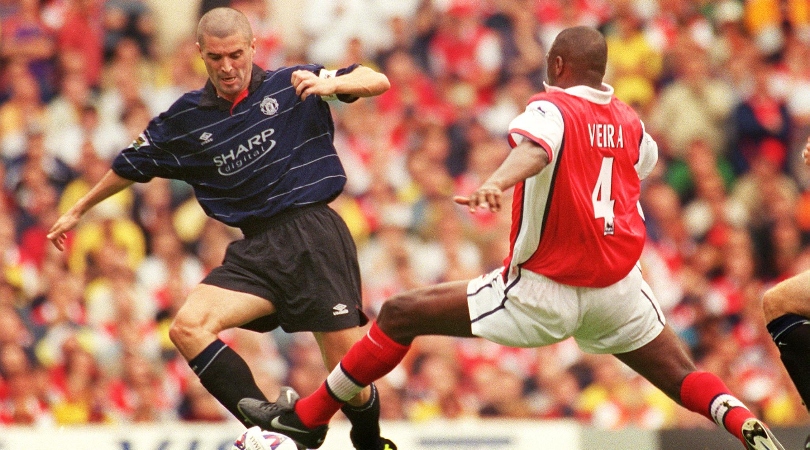
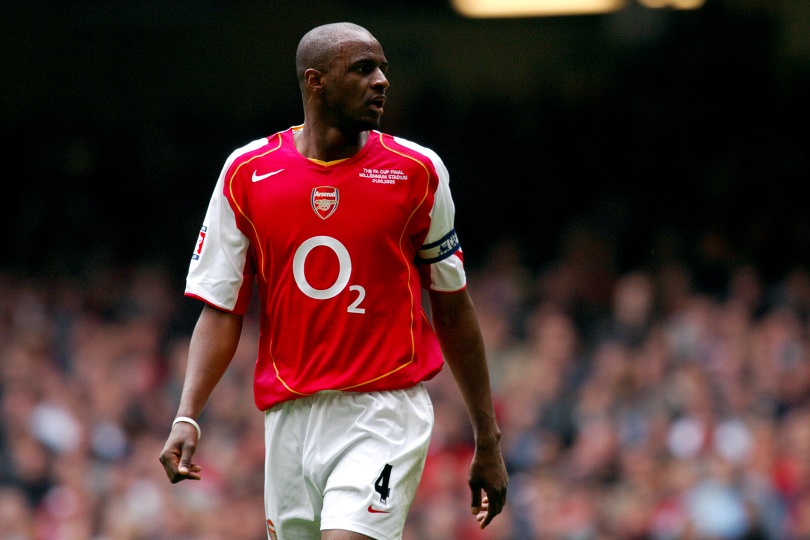
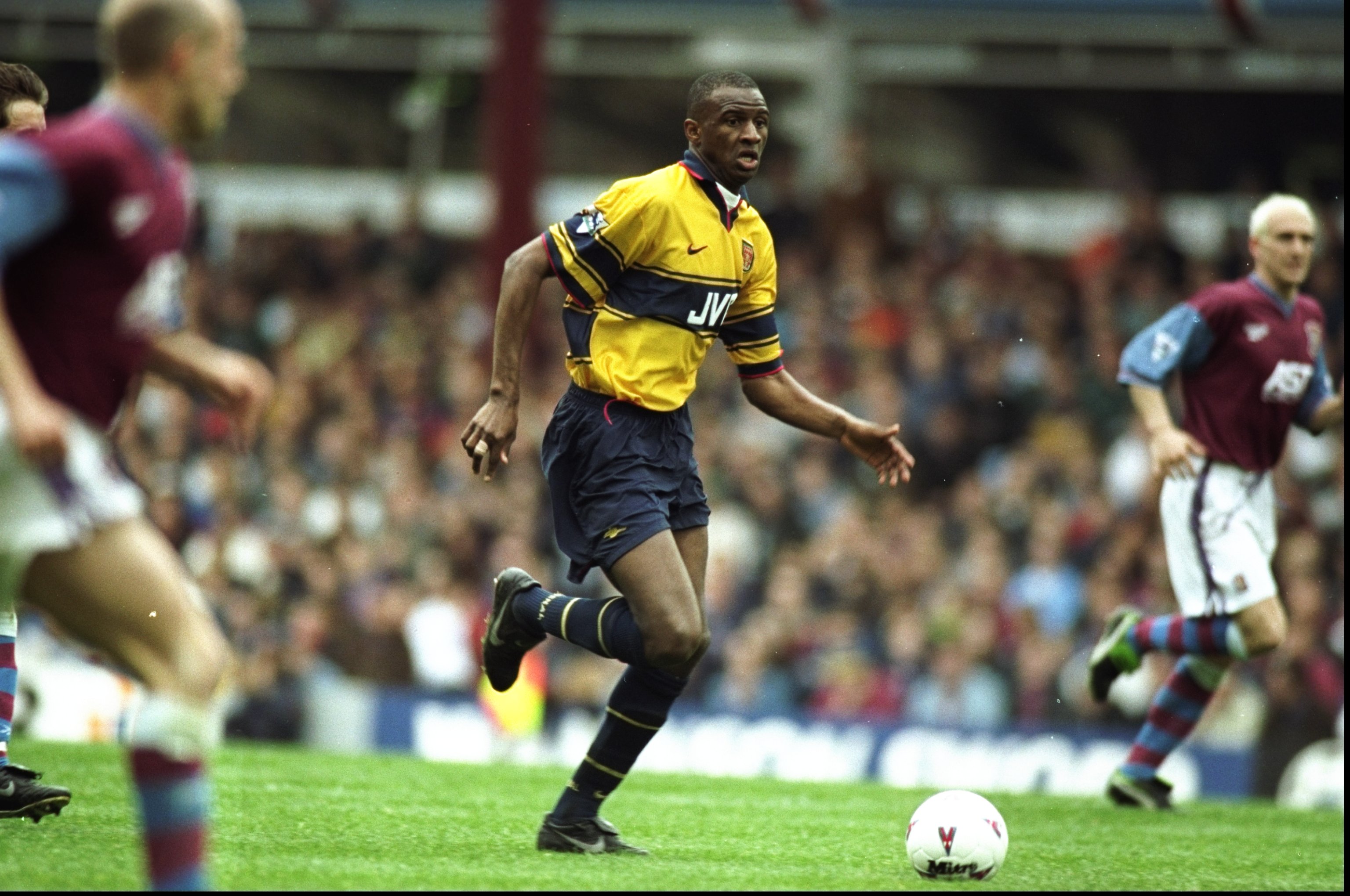

POSITION Midfielder
CLUBS Arsenal (1996-2005), Manchester City (2010-11)
APPS 307
GOALS 31
Tim Stillman of Arseblog tells FourFourTwo all about why Super Pat was so integral to Arsene Wenger’s greatest sides…
Although Thierry Henry’s name rebounded from the North Bank so often, it was Vieira who drew the real choral affection of Arsenal’s crowd. The towering skipper’s song, to the tune of Italian Eurovision ditty Nel Blu, Dipinto Di Blu (Volare), was top of the Highbury hit parade.
Supporters recognised Vieira as the symbol of one of the Gunners’ greatest ever teams. The midfield icon once described himself as having “French feet and an African heart” – exactly what he gave Arsene Wenger’s side.
Vieira was a warrior who had the feet of a ballerina. His countless disputes with Roy Keane and “occasional” fits of temper had him portrayed as a hard man; the enforcer around whom Arsenal’s team of sprinters and talented dancers orbited. However, to remember him that way is to unfairly reduce his repertoire of skills.
Vieira was a warrior who had the feet of a ballerina.
Vieira had a silken touch, his feet as soft as pillows as he cradled the ball on the end of his boot shortly after chapeau-ing another hapless opponent. He could slalom past you or just bulldoze beyond you: ultimately, the painful choice was yours.
There’s a good reason why new midfield starlets are still labelled ‘the new Vieira’ after all these years. The truth is, there hasn’t been a player with his blend of qualities since – at Arsenal, nor any other team. Vieira was, and continues to be, unique.
13. Virgil van Dijk
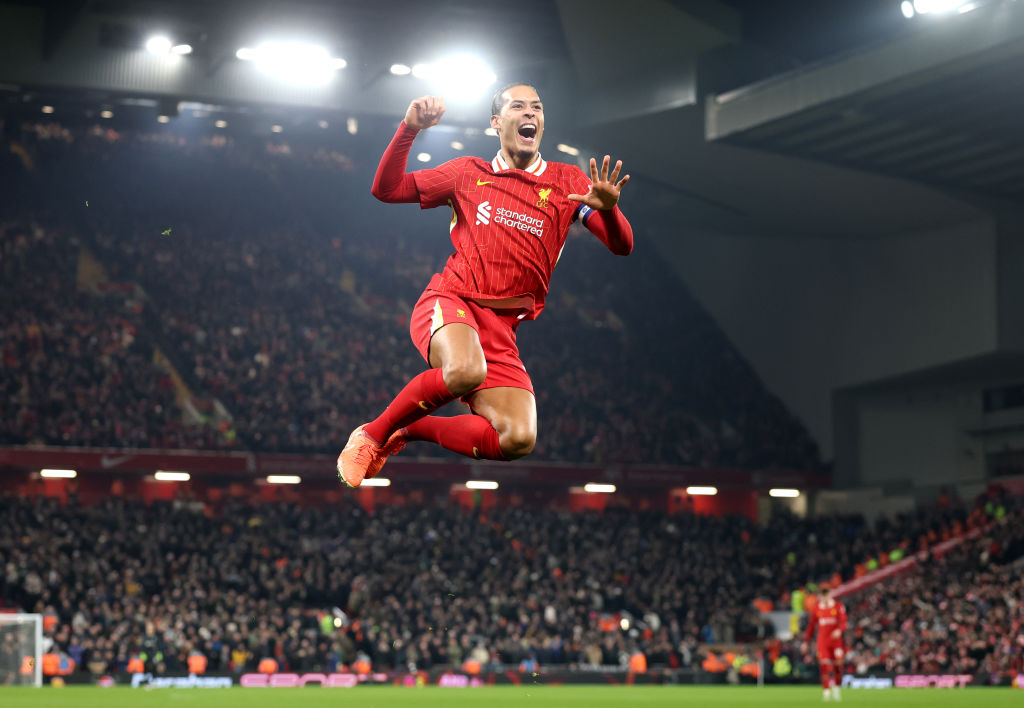
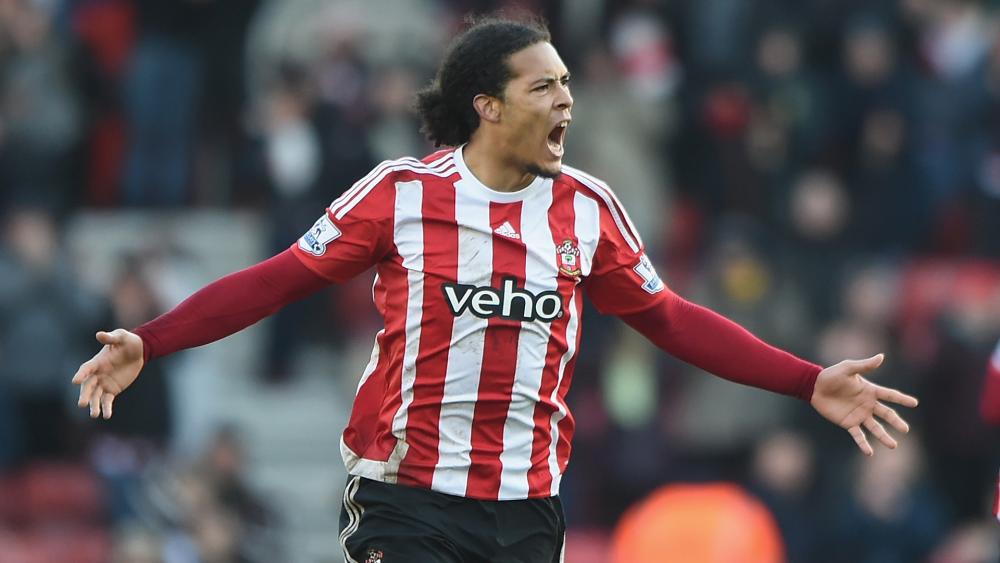
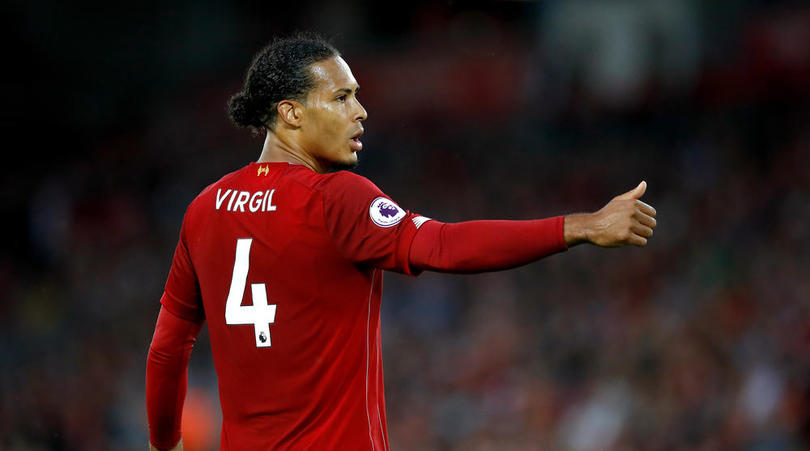

POSITION Defender
CLUBS Southampton (2015-18), Liverpool (2018—)
APPS 225
GOALS 19
Virgil van Dijk is the highest-rated defender on our list – now Steven Chicken describes why
It’s remarkable to consider the fact that when Virgil van Dijk arrived at Southampton from Southampton in 2015, it was barely a year after he had been left out of the Dutch World Cup squad in favour of Terence Kongolo.
Safe to say Van Dijk has not been overlooked like that since then. The centre-back was an instant hit as St Mary’s, winning the club’s Player of the Year awards, earning the captaincy, helping Southampton to the League Cup final… and, of course, attracting the interest of Liverpool.
The £75m fee the Reds paid after a protracted and controversial pursuit led plenty of pundits to question Liverpool’s wisdom, but he paid for himself many, many times over by becoming the final and perhaps most vital piece in Jurgen Klopp’s brilliant side.
No less an authority than Vincent Kompany has spoken of Liverpool being one side before Van Dijk, and another after his arrival.
The Dutchman immediately helped Liverpool to back-to-back Champions League finals, winning the second with a man-of-the-match performance, and then helped them to their first league title in 30 years. His silverware collection was swollen not just with winner’s medals, but individual awards recognising his imperious form at the back.
A defender imbued with an oceanic calm and presence, at his peak Van Dijk was virtually unbeatable in the air or on the floor, famously going 17 months and 65 games (including the entire 2018/19 season) without being dribbled past once – at least according to the stats men’s definitions.
Van Dijk's silverware collection was swollen not just with winner’s medals, but individual awards recognising his imperious form at the back.
Van Dijk may not have reached quite those levels since a long lay-off to recover from an ACL injury in 2020/21, but has remained one of the most feared and respected defenders in world football.
Lionel Messi and Erling Haaland have both spoken in awe of Van Dijk’s abilities, and he currently looks set to captain Liverpool to a record-equalling 20th English league title.
That makes Van Dijk, for our money, the greatest centre-back ever to play Premier League football.
12. Steven Gerrard
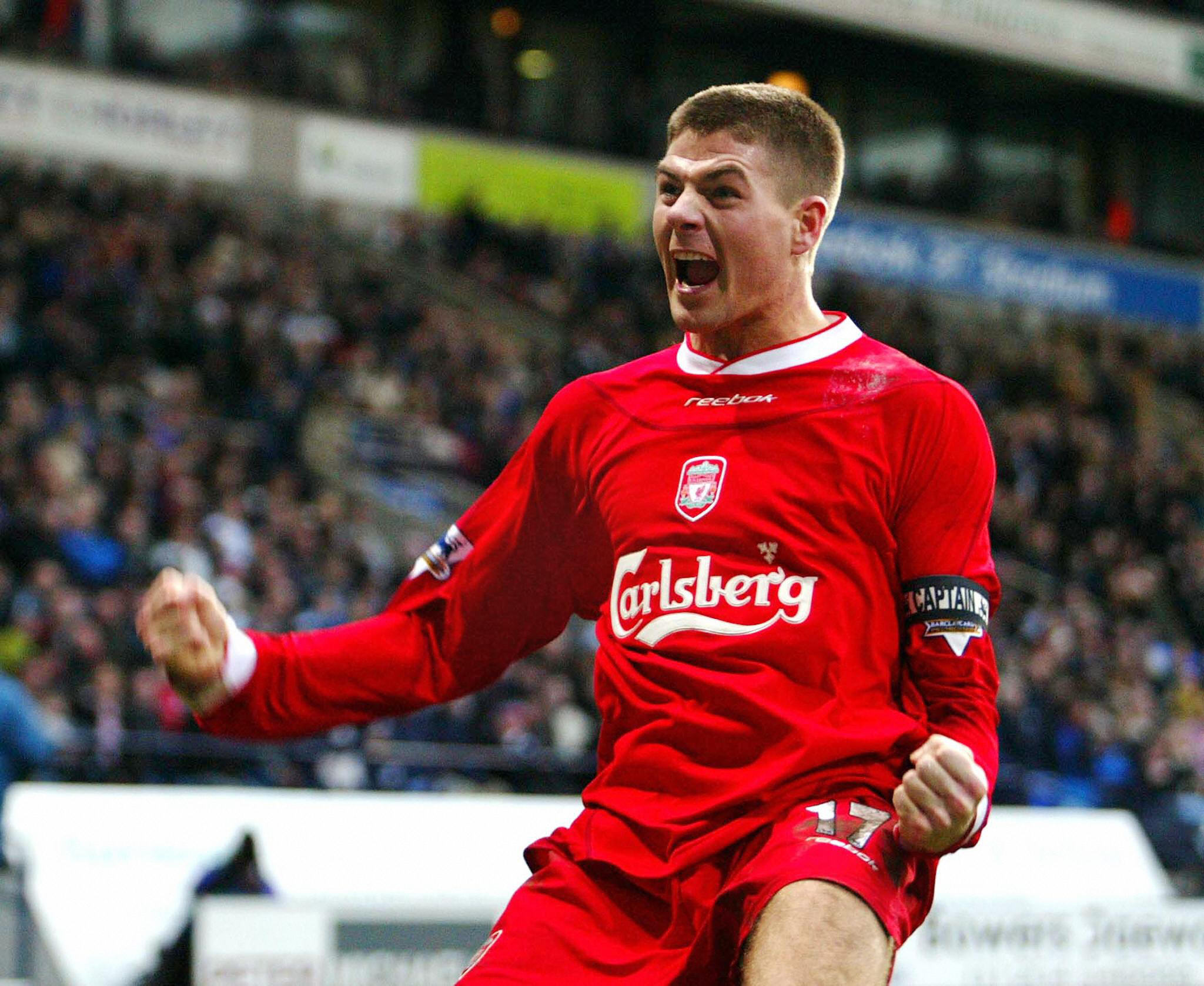

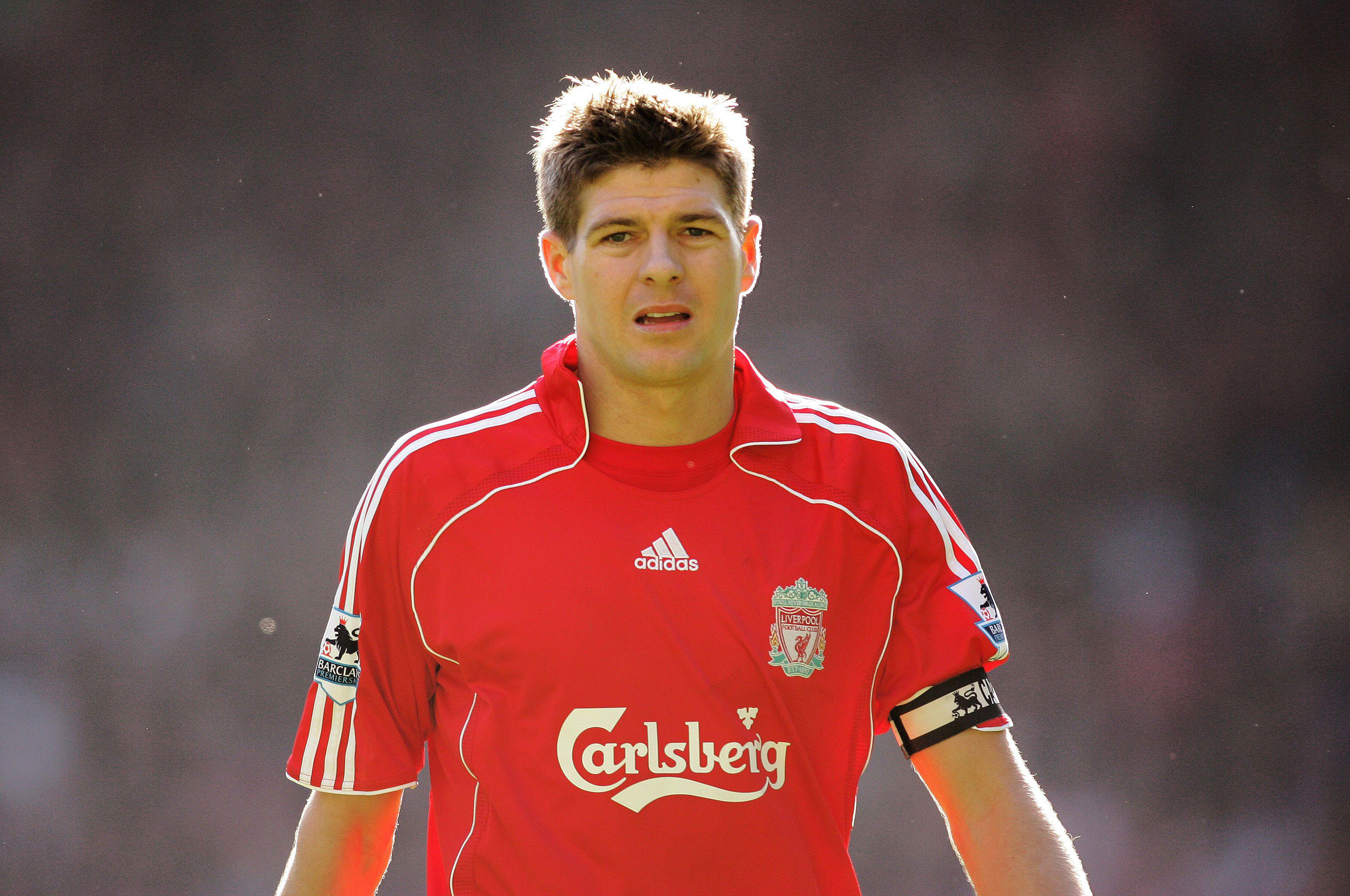
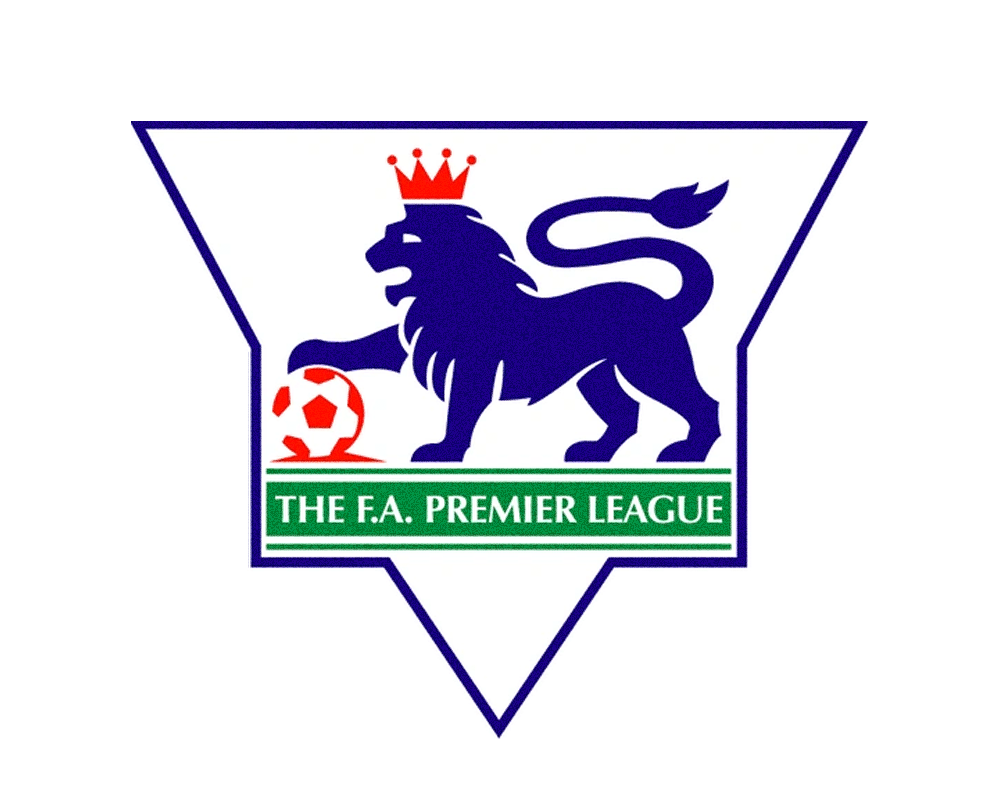
POSITION Midfielder
CLUBS Liverpool (1998-2015)
APPS 504
GOALS 120
Author Tony Evans on a Scouse colossus, remembered as a hero for as long as football is played…
Of Liverpool’s many legends, he stands out for his composure in a crisis. When the clock was ticking down and there was one final opportunity to save the day, he was the man you wanted with the ball at his feet.
Gerrard soaked up responsibility. He could play in any position, too.
If you were building a prototype Premier League player of the late-90s, they would have looked like the Liverpool captain. He was strong, quick and had a remarkable passing range. His technique was majestic, and all the more impressive because he did everything slightly quicker than everyone else on the pitch.
The turning point for Gerrard came in the summer of 2005, starting with what seemed like a stunning act of betrayal just six weeks after lifting the Champions League trophy.
He agreed to join Jose Mourinho’s Chelsea but, over an emotionally draining sleepless night of panic attacks, realised he couldn’t walk away from his boyhood club. It was a painful time, but the reaffirmation of his relationship with Liverpool began a process that swept away any doubters.
He would have won more medals at Chelsea, but instead became an icon for a city that cherishes football above almost everything else.
11. Sergio Aguero
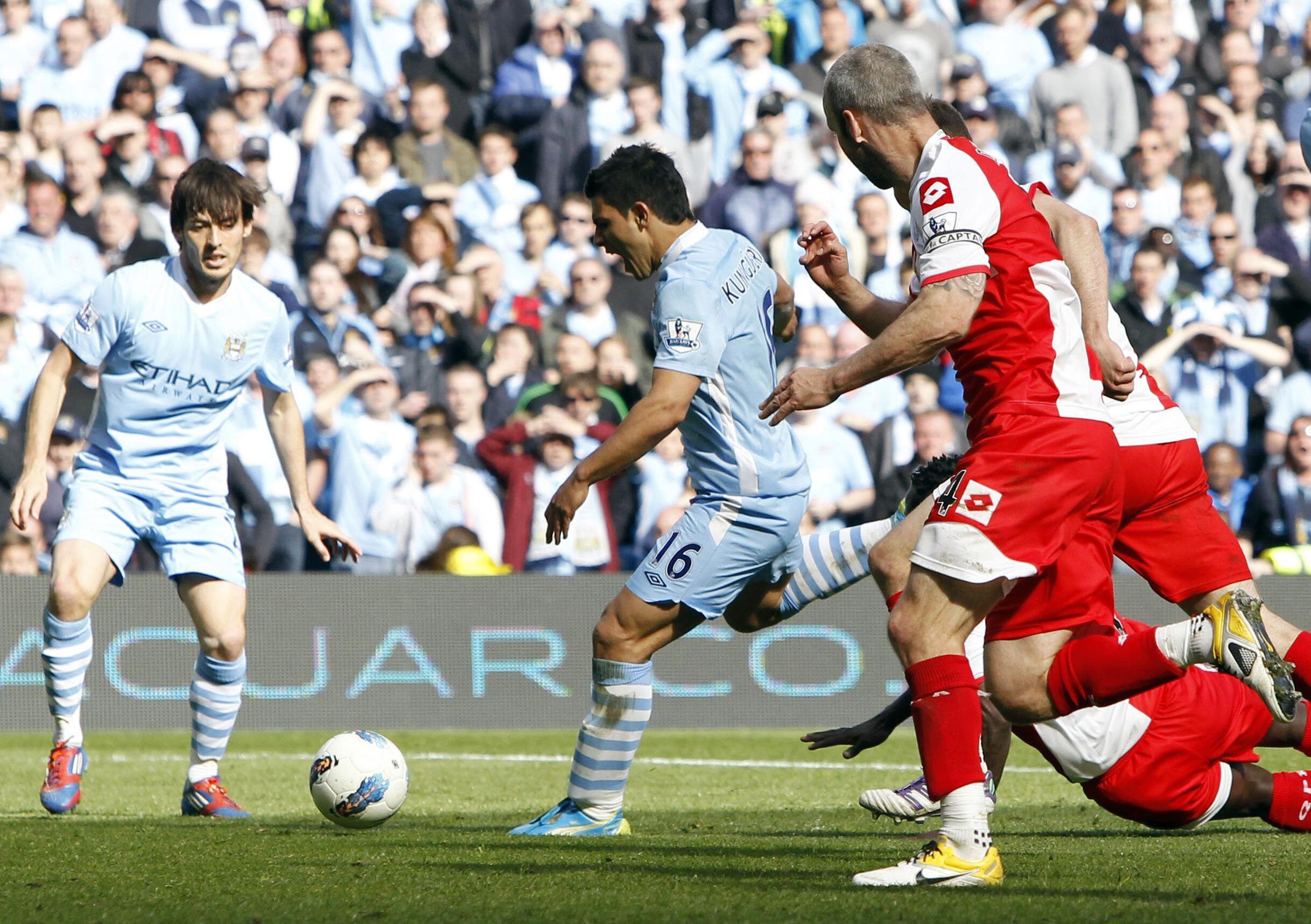
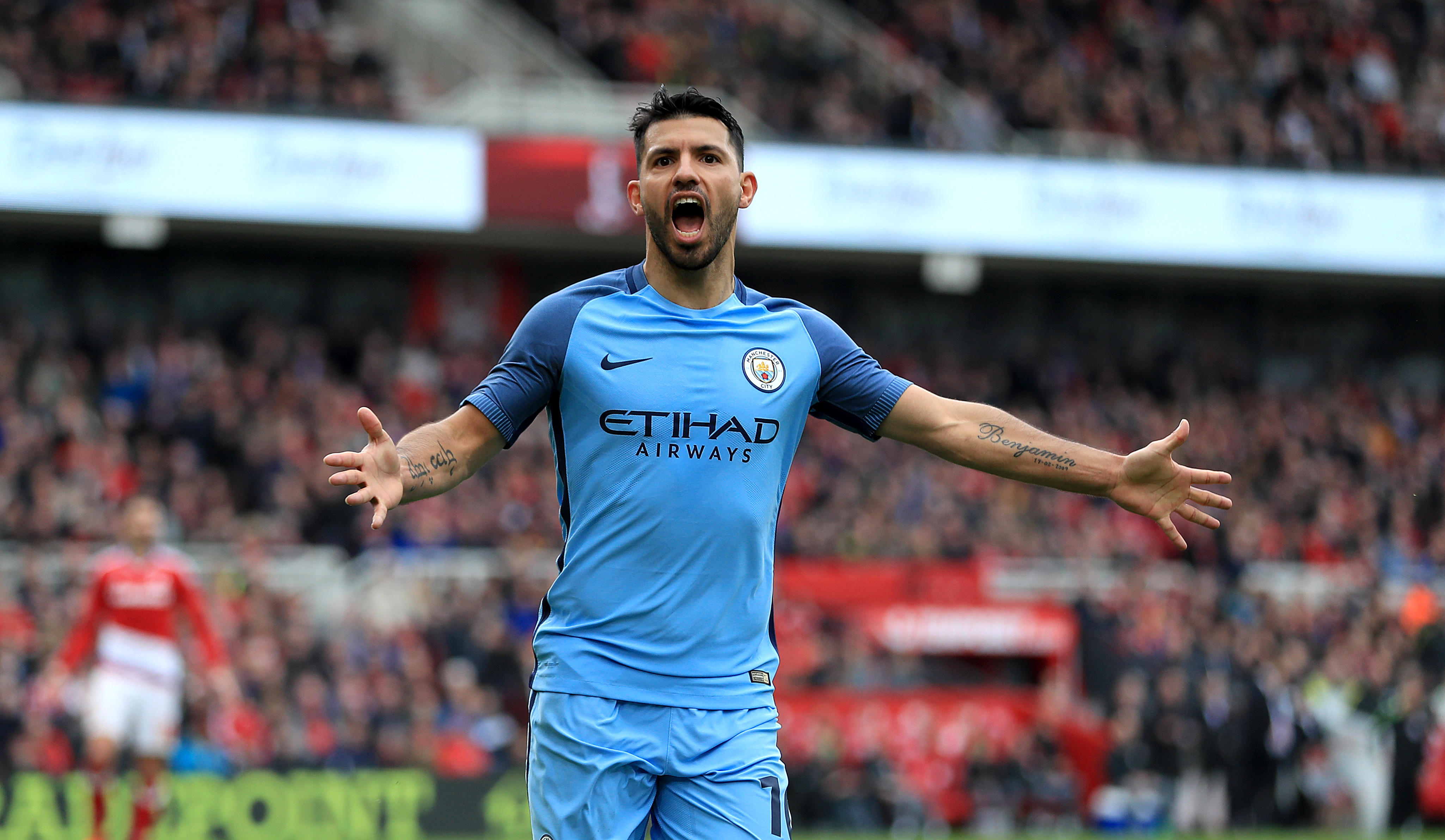
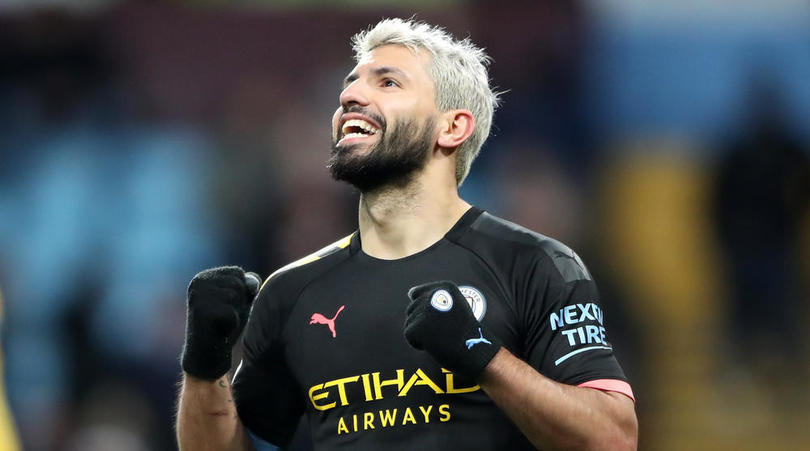

POSITION Forward
CLUBS Manchester City (2011-21)
APPS 275
GOALS 184
FourFourTwo's Ed McCambrige on why Manchester City's heroic striker might just be the Prem's most underappreciated
It’s astonishing, given the esteem in which Sergio Aguero is held by so many, that he might just be the most underrated footballer in Premier League history.
The former Manchester City man only made the PFA’s Premier League team of the year twice, in 2018 and 2019, despite scoring 20-plus goals in six different campaigns, and winning the title five times.
In total, the diminutive Argentine struck 184 goals in 275 Premier League appearances – 260 goals in 390 games in all competitions – leaving him joint-fifth, with Liverpool’s Mohamed Salah, in the all-time standings. He’s second when it comes to goals-to-games – only Thierry Henry (0.68) can top the Argentine’s 0.67.
He could score every type of goal, from back post tap-ins, to thunderbolts, to extraordinary solo efforts. The greatest of all fell somewhere in between.
Aguero’s winner against QPR in the final minute of the 2011/12 season wasn’t just breathtaking for the impact it had – delivering the club’s first Premier League title and denying their cross-town rivals in the process – but also displayed the strength, the guile and the composure that were the hallmark of so many other finishes in sky blue.
Very few opt for Aguero when selecting the greatest Premier League striker of all time – the likes of Henry, Alan Shearer, Wayne Rooney and Harry Kane generally receiving greater backing – but, with a minute left in a do-or-die game, you’d be hard-pressed to find a player more likely to score you a big goal.
When it mattered most, Aguero was the man.
10. Frank Lampard
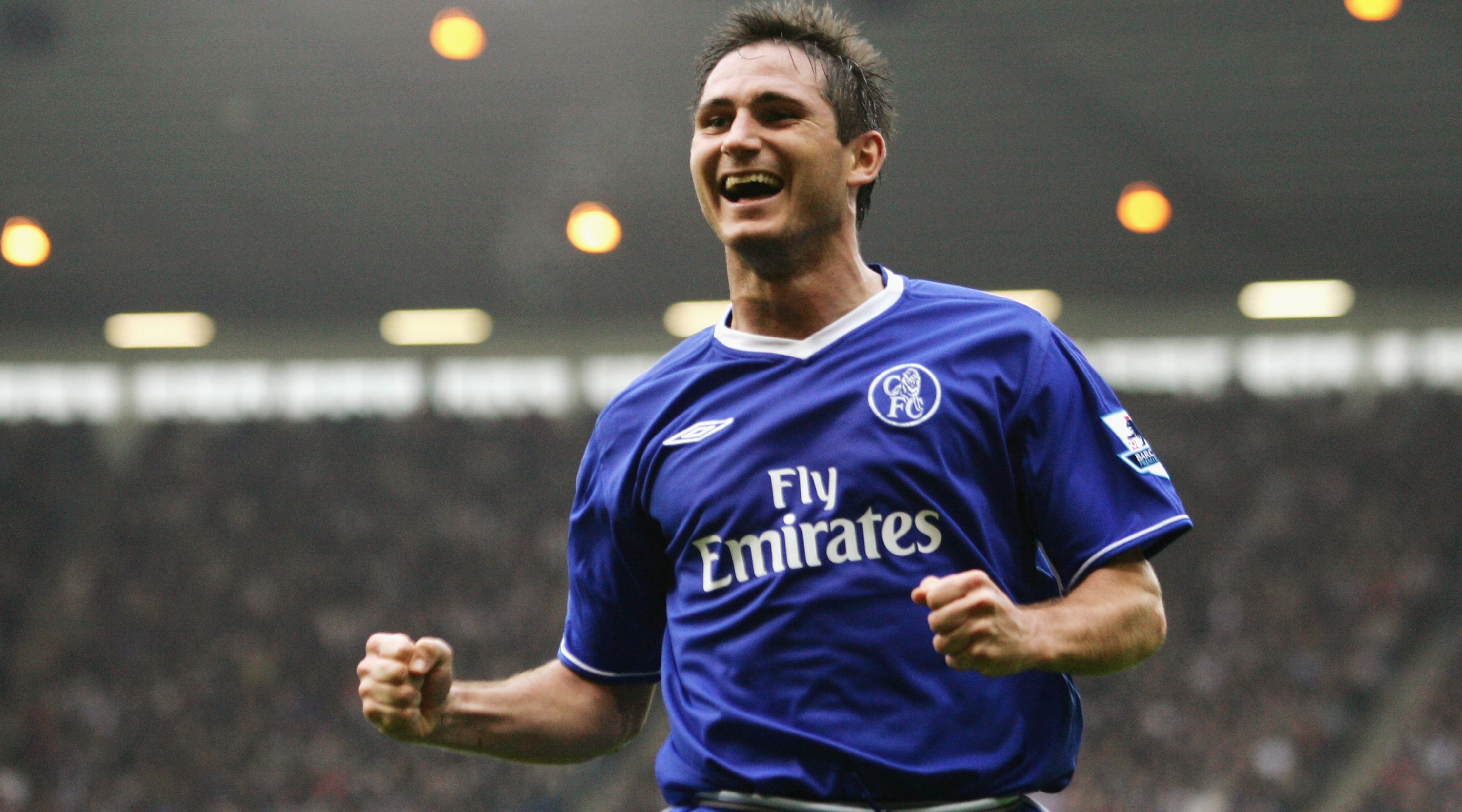
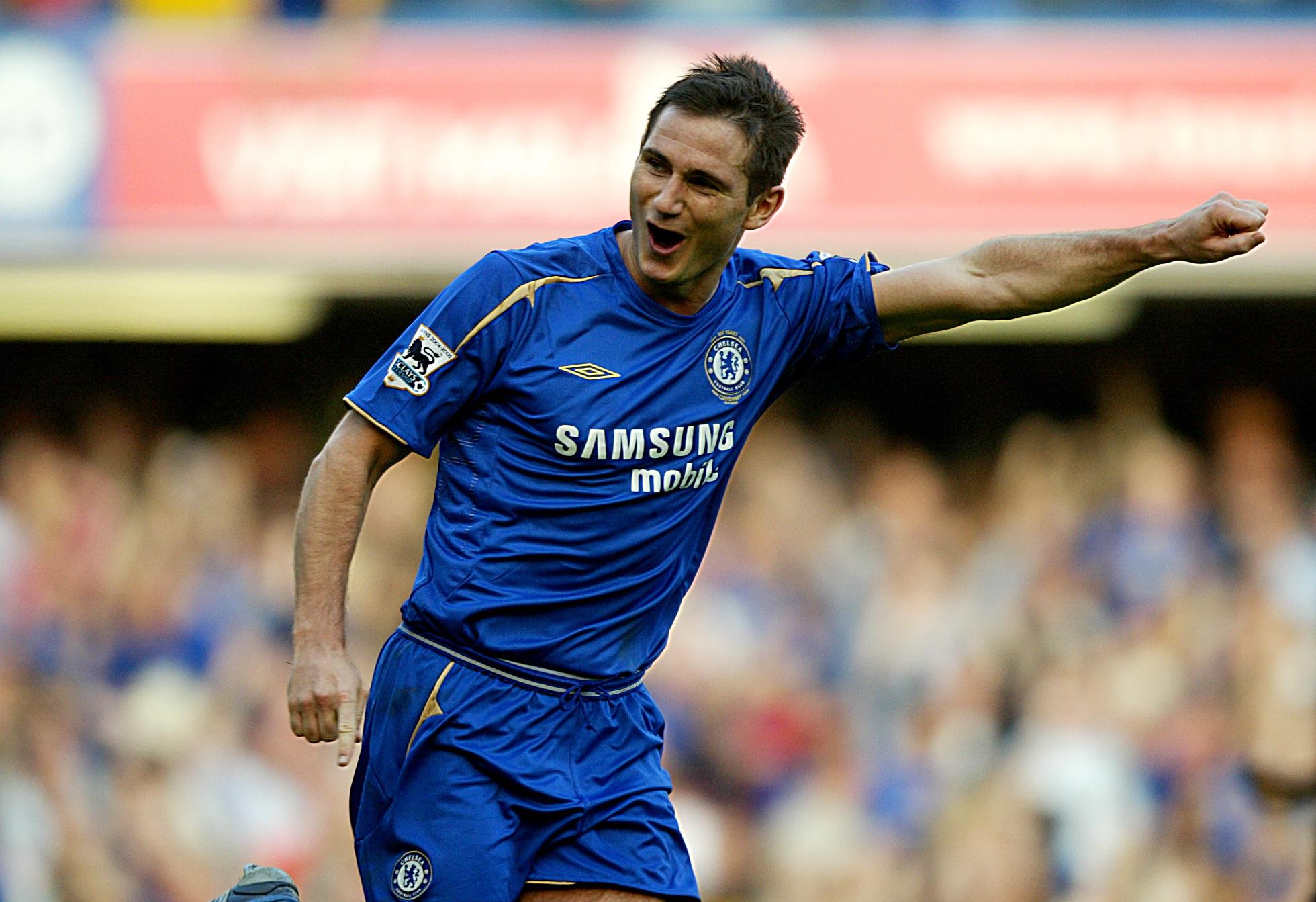
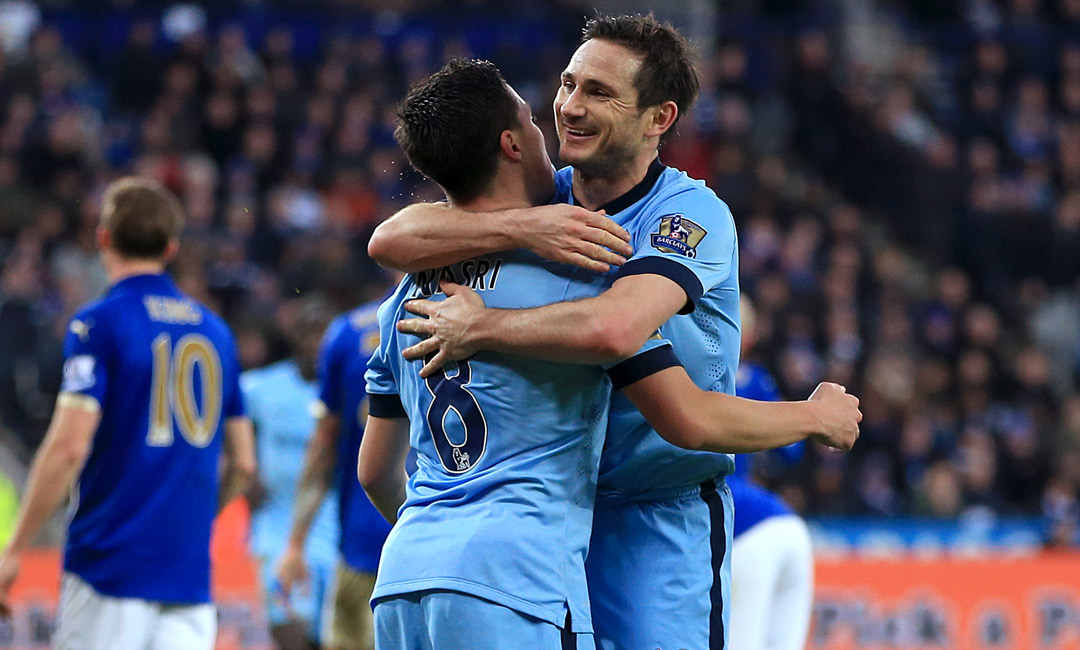

POSITION Midfielder
CLUBS West Ham United (1995-2001), Chelsea (2001-14), Manchester City (2014-15)
APPS 609
GOALS 177
Garry Hayes on what Frank Lampard means to the Premier League
Roman Abramovich’s arrival at Chelsea in 2003 changed English football. The inflated wages and transfer fees have reshaped the landscape of the Premier League ever since.
For all the Russian billionaire shook things up, Lampard did the same for his position in midfield. We can get lost in the conversation about Vieira, Scholes and Gerrard’s individual brilliance, but what did they truly accomplish outside of winning silverware? Lampard’s legacy, after those trophies won and 177 Premier League goals, was to alter what we’ve come to expect from a raiding central midfielder. These players are treated like strikers now.
It’s not enough to do ‘the things we don’t see’. Fans, pundits and – most importantly – managers, expect their No.8 to fire home in the high teens each season. End product isn’t desired – it’s demanded.
Lampard’s legacy was to alter what we’ve come to expect from a raiding central midfielder.
While Vieira was inspiring an exodus from Arsenal, and Scholes and Gerrard were both playing catch-up to Chelsea, Lampard was setting the agenda. It’s why people speak of Diego Maradona in such glowing terms. He may not have won all of Lionel Messi’s trophies, but without him there wouldn’t be a Messi. That’s right, I did just compare Lampard to Maradona: because without Lampard, the role of a midfielder in 2021 would be very different.
So, Vieira, Scholes, Gerrard or Lampard? It’s not even a debate.
9. Roy Keane
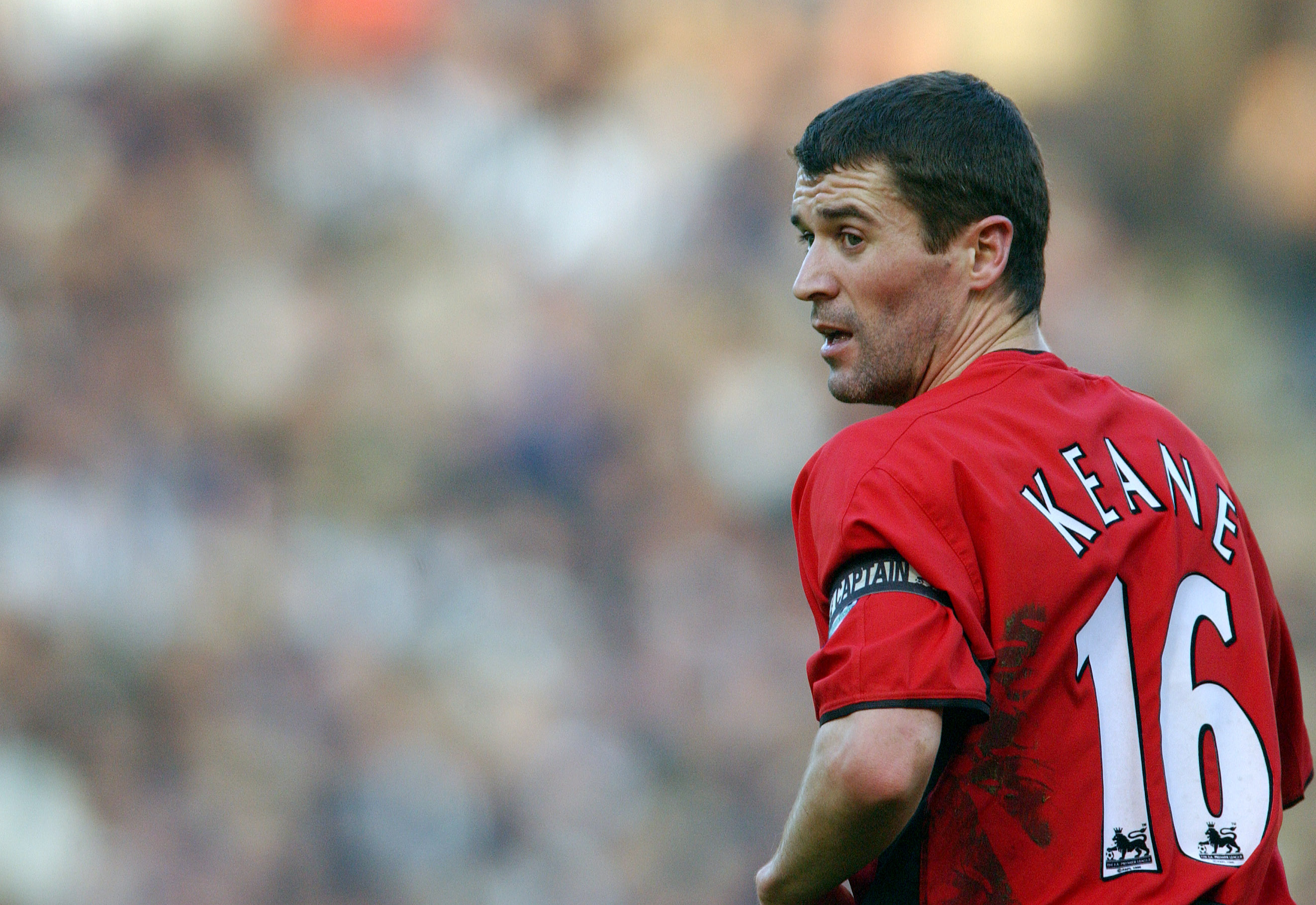
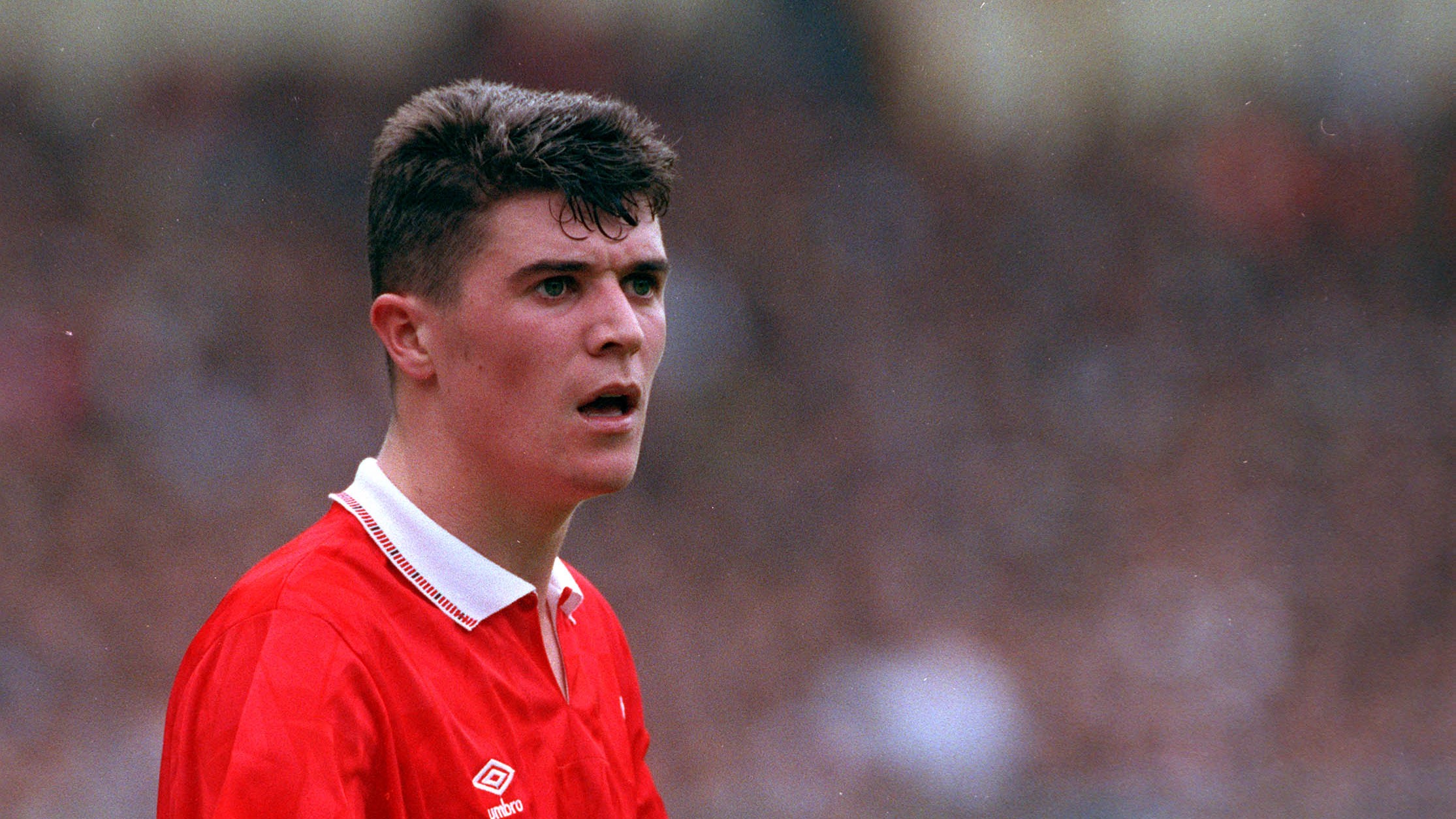
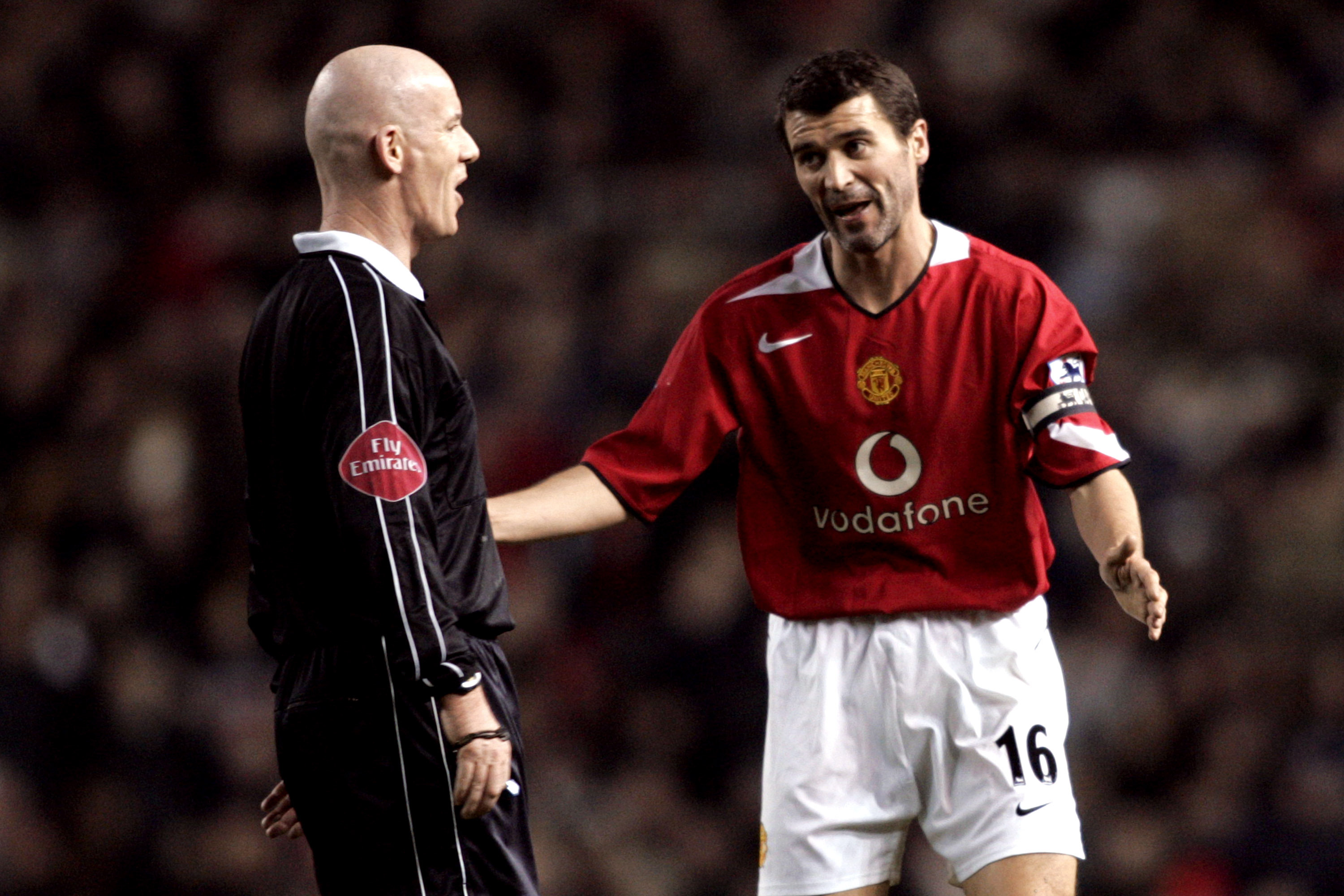

POSITION Midfielder
CLUBS Nottingham Forest (1992-93), Manchester United (1993-2005)
APPS 366
GOALS 39
Roy Keane snubbed advances from Blackburn Rovers to become one of Manchester United's greatest-ever players: Andy Mitten breaks down what made the Corkonian so integral for the Red Devils.
Keane was actually heading to Ewood Park before United got involved: the Red Devils dispatched their ticket office manager to Manchester Airport, to pick up Keane in a battered old Ford Orion.
A contact let the Irishman out of a back gate at the airport to avoid the press, and the midfielder looked for a double headlight flash.
“I met Brian Kidd and Alex Ferguson, played a game of snooker with them and had the usual small talk – they told me how brilliant I was and I believed them,” revealed Keane.
In his first campaign for champions United, Keane showed why he was the replacement for the player he’s so often compared with: Bryan Robson. He was key as United won the league and FA Cup Double for the first time in 1993/94, playing 54 games in all.
Keane won seven Premier League titles at United, four FA Cups, the Champions League and Intercontinental Cup. He became their most important player after Eric Cantona retired in 1997 – the year Keane was handed the captaincy, by which time he had all but given up drinking alcohol.
“His Irish fire was fundamental to his value as a footballer, but his tendency to go beyond the bounds of acceptability would have to be curbed,” said Ferguson of the 1995 Keane – but he was crucial to his team.
Keane became Manchester United's most important player after Eric Cantona retired in 1997
When Keane missed much of the 1997/98 season due to a knee injury, United failed to retain the title, win a cup and went backwards in Europe by losing to Monaco. When he returned, he was integral to United’s Treble-winning success, making 55 appearances in all competitions. No outfielder featured more.
Irwin was a close friend. “Roy will contest this, but he wasn’t the best footballer in the world – he left that to Scholesy,” Denis Irwin tells FFT. “He was a combative player who could smell danger, read situations and tell where the ball was dropping. He was defensive-minded but could also break forward. He was a huge driving force in training and in being Manchester United.”
8. Harry Kane
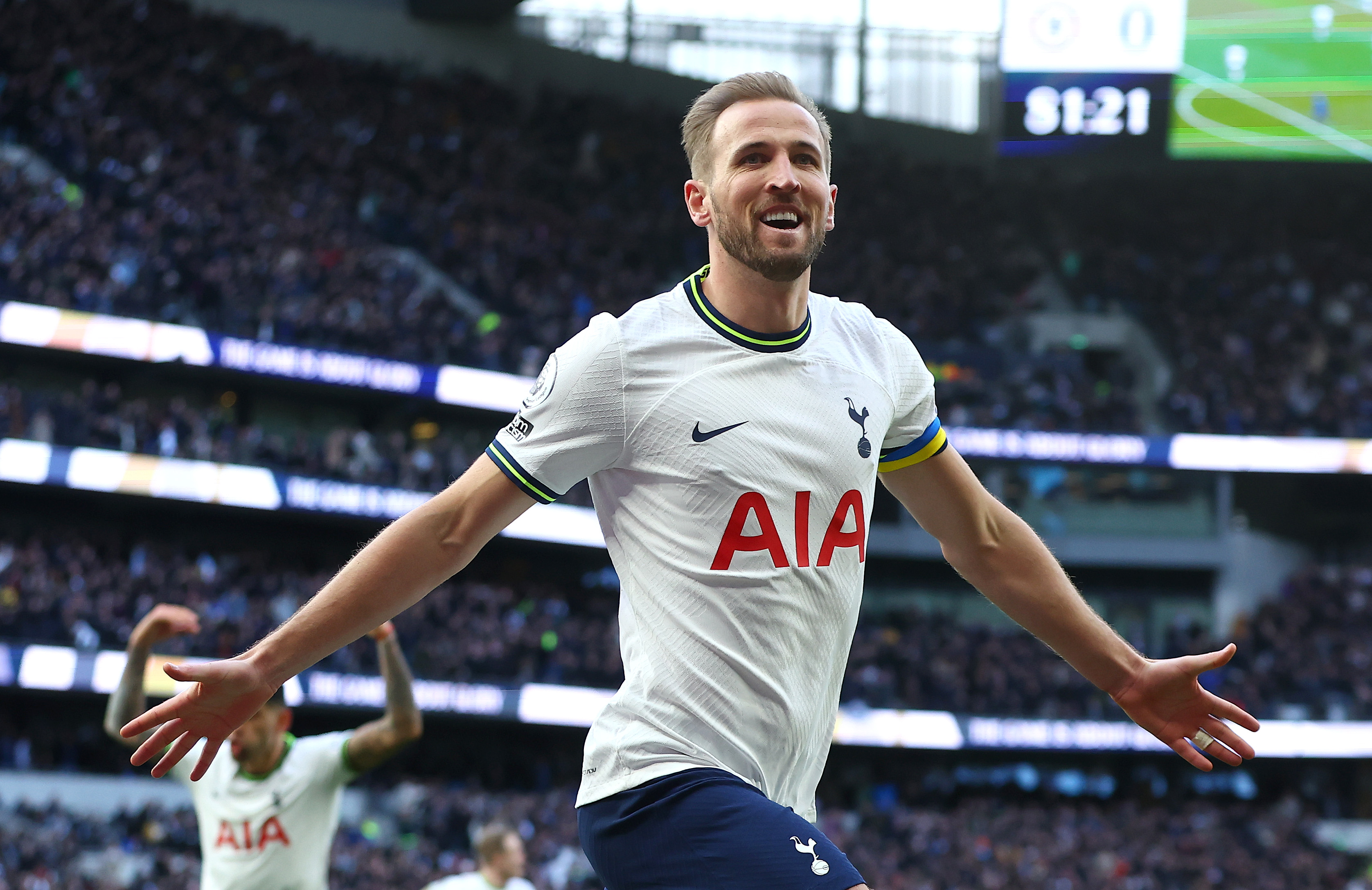
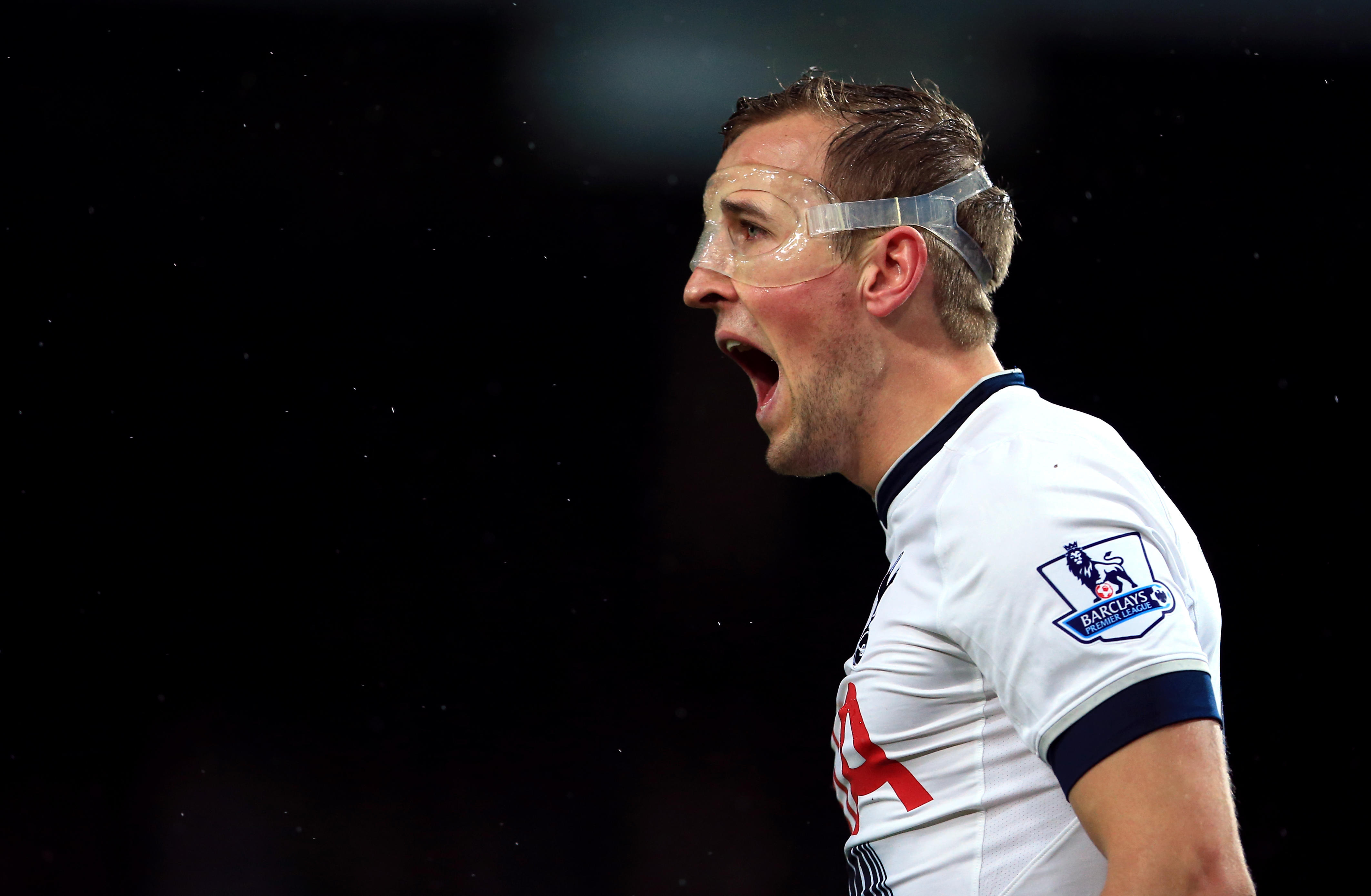
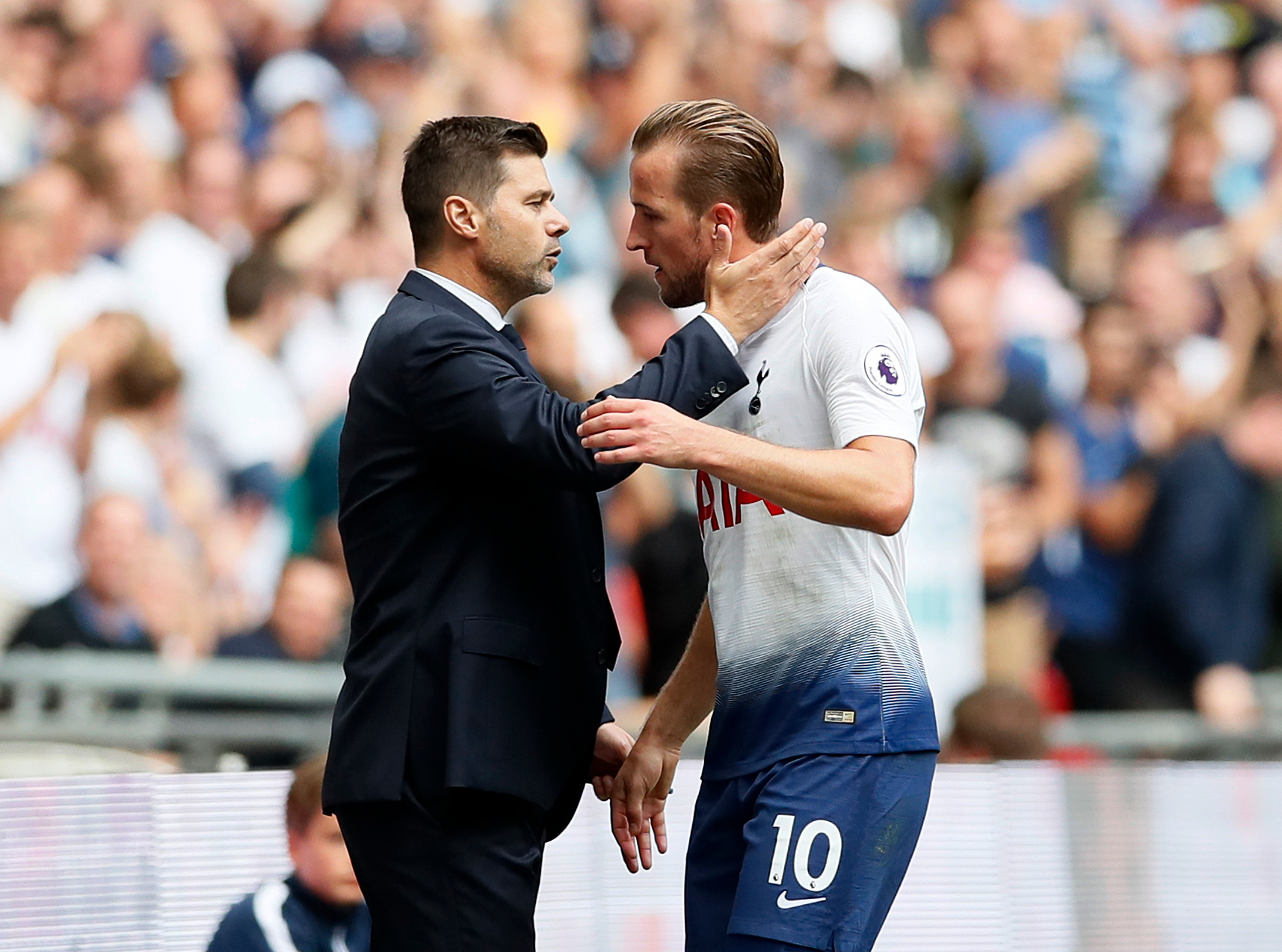

POSITION Forward
CLUBS Norwich City (2012-13), Tottenham Hotspur (2012-23)
APPS 320
GOALS 213
Chris Nee on why Kane left such a legacy in the Premier League
While England captain Harry Kane left the Premier League for Bayern Munich in 2023 without a domestic trophy to his name, he left behind an unimpeachable record.
Kane played 320 Premier League matches in total and scored 213 league goals for Spurs. Only Alan Shearer has scored more. He was named Player of the Month seven times and won the Golden Boot three times, collecting a handsome array of individual awards along the way.
But while the awards and numbers speak for themselves in terms of Kane’s place at the top table of Premier League icons in the absence of titles, his loyalty to Spurs and his influence at the club in the best years of his career mark him out as a different kind of success.
Spurs went close. Kane played in two League Cup finals and a Champions League final as well as spearheading a meaningful Premier League title push in both 2015/16 and 2016/17. They fell short each time but Kane was there, scoring the goals and leading by example as he dragged his team as close to success as he possibly could.
Kane is the all-time leading scorer for Spurs and England, for whom he has now played more than 100 times, and his game has evolved from straightforward striker to all-round impact for both club and country. After a succession of loans that included a Premier League spell at Norwich City that was cut short by injury, Kane spent almost a decade in the Spurs team.
He was remarkably consistent at the highest level, an achievement most commonly credited to his single-minded focus, his determination to success, and his fixation on scoring goals.
Kane's loyalty to Spurs and his influence at the club in the best years of his career mark him out as a different kind of success.
Walthamstow-born Kane grew up near White Hart Lane but joined Arsenal’s youth set-up in 2001 before being released the following year. He fulfilled his destiny in 2004, signing for Spurs and remaining there for 19 years.
Bayern had to dig deep to get their man. Kane became the most expensive signing in Bundesliga history, rewarding Spurs for his development and adding to the esteem in which he’s held in North London.
7. Eric Cantona
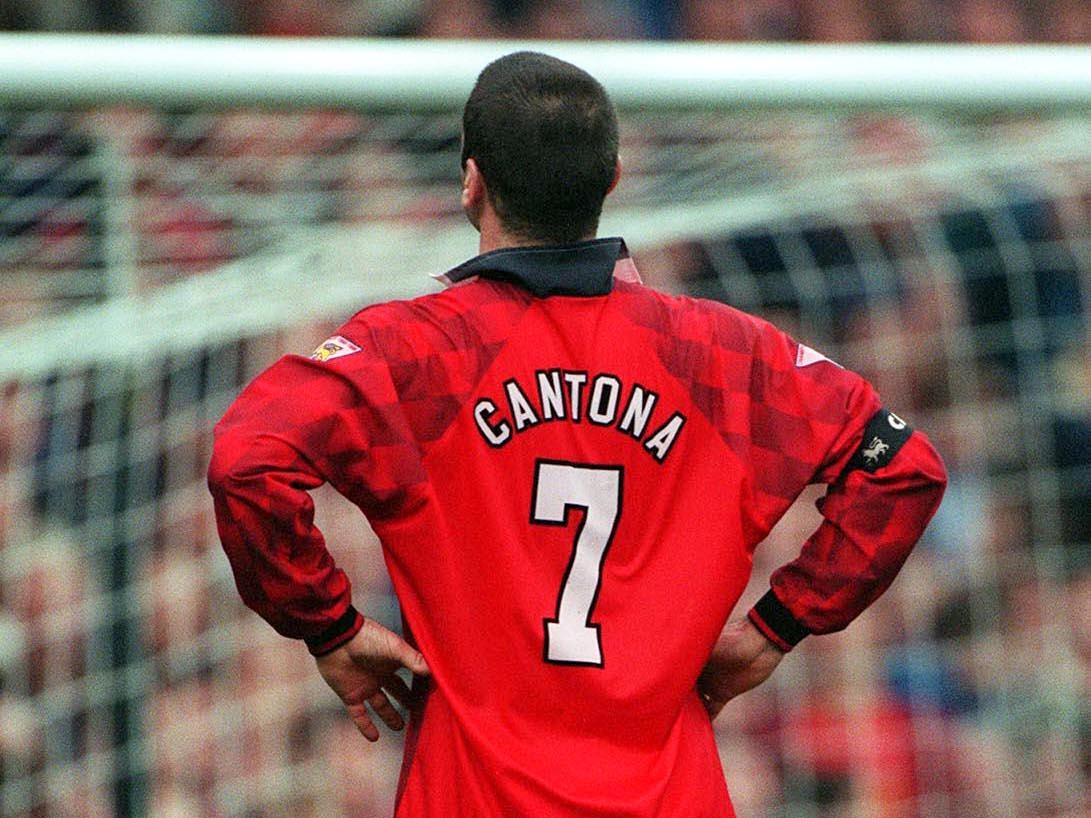
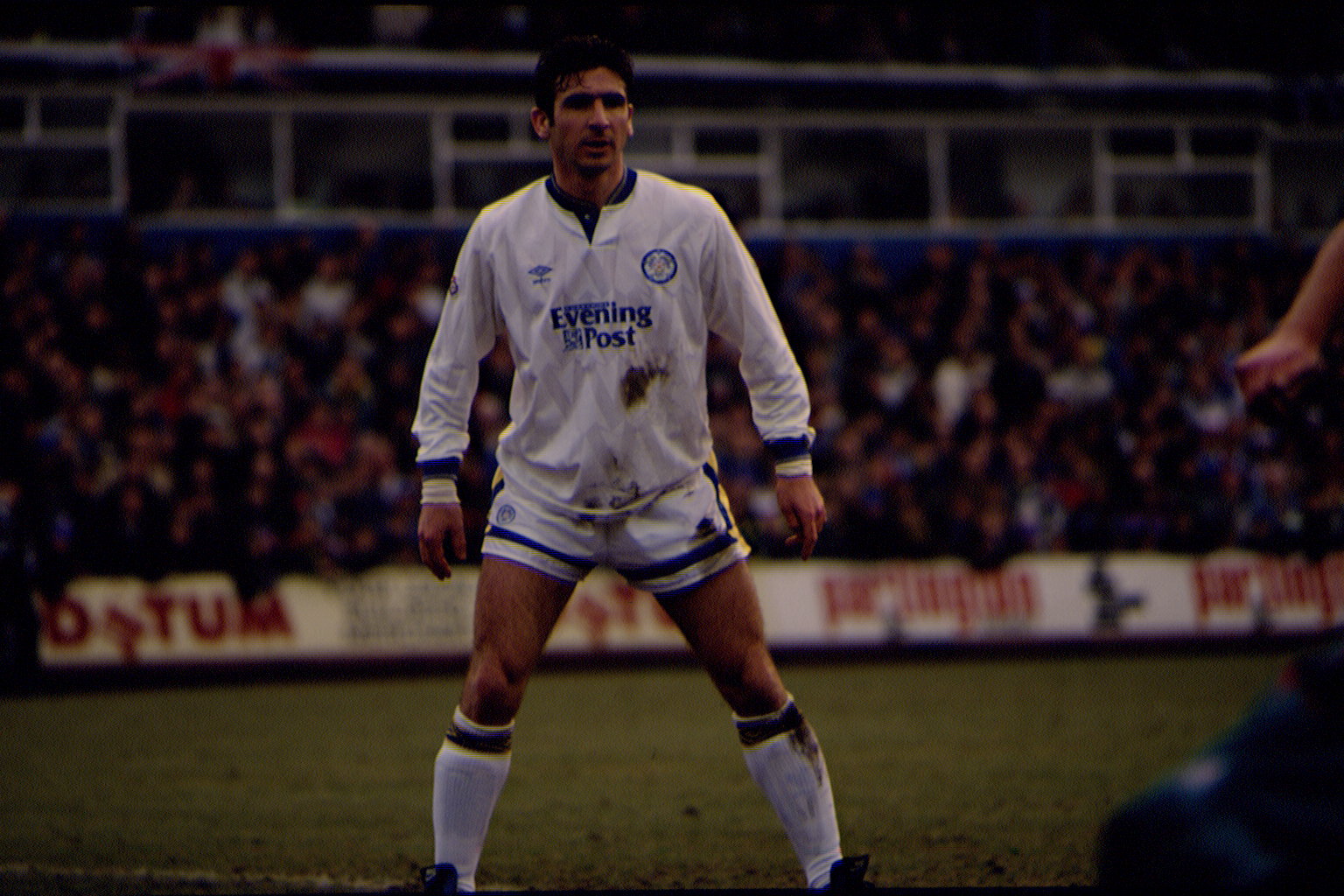
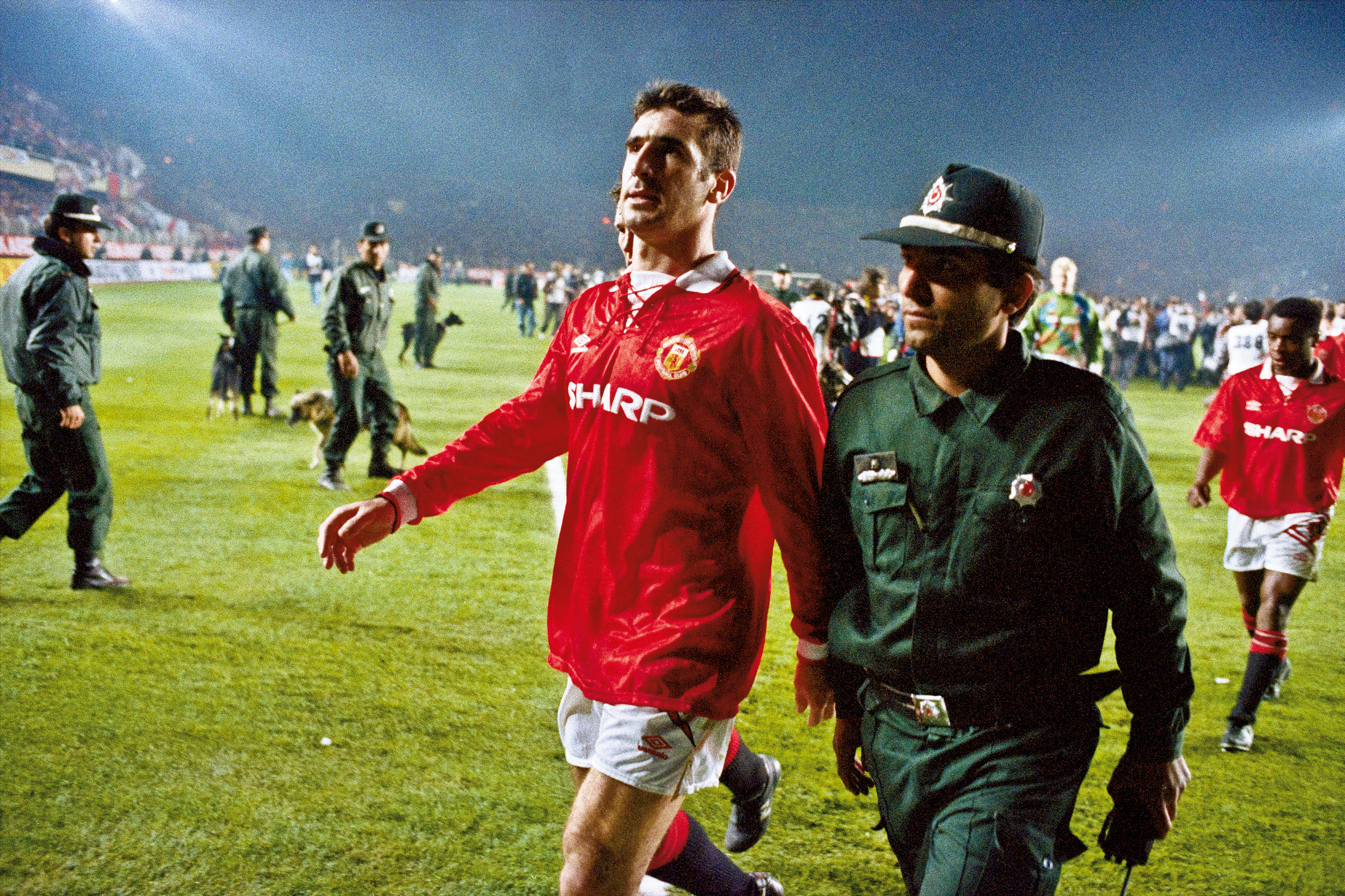

POSITION Forward
CLUBS Leeds United (1992), Manchester United (1992-97)
APPS 156
GOALS 70
Matty Holt on why Eric Cantona is still the king of the Premier League
A man who helped redefine the Premier League as it is today, Eric Cantona's influence is one of charisma and confidence, as well as a whole lot of controversy along the way.
Having joined Manchester United in 1992 from rivals Leeds United, the Red Devils' success in part in the 90s is owed to his eye-catching performances, as he won four Premier League titles, as well as two FA Cups along the way. But far more than just for the silverware, his flair, flamboyance and sheer skill earned him the nickname 'The King'. Banners still boast the nickname across the Stretford End.
He was inducted into the Premier League Hall of Fame in 2021 and would later forge a career as an actor and musician, but his goal against Sunderland remains the most stunning performance you will ever see. Collecting the ball on the edge of the area during the 1996/1997 clash with the Black Cats at the Theatre of Dreams, the Frenchman lofted a delicate chip into the back of the net before standing with such aura to appreciate his brilliance.
It was as much down to his fire as his icy composure, that Cantona took to English football like a trawler to water.
Collar popped, he was mobbed by his teammates as the camera pans as if an artist had just finished curating a masterpiece. But perhaps it was as much down to his fire as his icy composure, that he took to English football like a trawler to water.
Cantona’s career was also marked by his temper, culminating in his infamous 1995 "kung-fu" kick on a Crystal Palace supporter, resulting in an eight-month suspension. He retired prematurely in 1997 at the age of 30, leaving behind a legacy of success and a reputation as one of the league's greatest players.
"I have played professional football for 13 years, which is a long time. I now wish to do other things," said the former Leeds United man. “I always planned to retire when I was at the top and, at Manchester United, I have reached the pinnacle of my career.”
His timing, as always, was impeccable.
6. Kevin De Bruyne
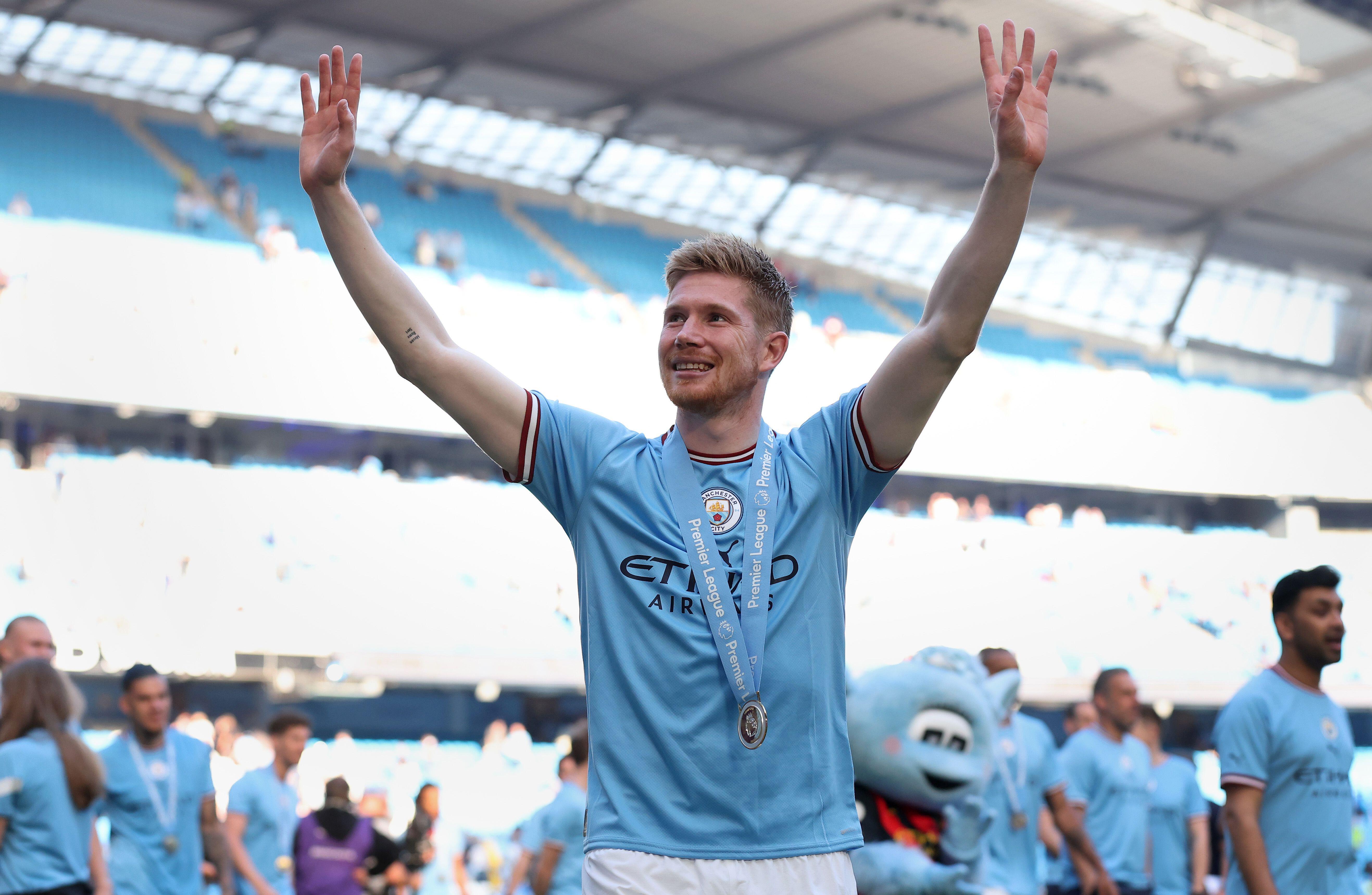
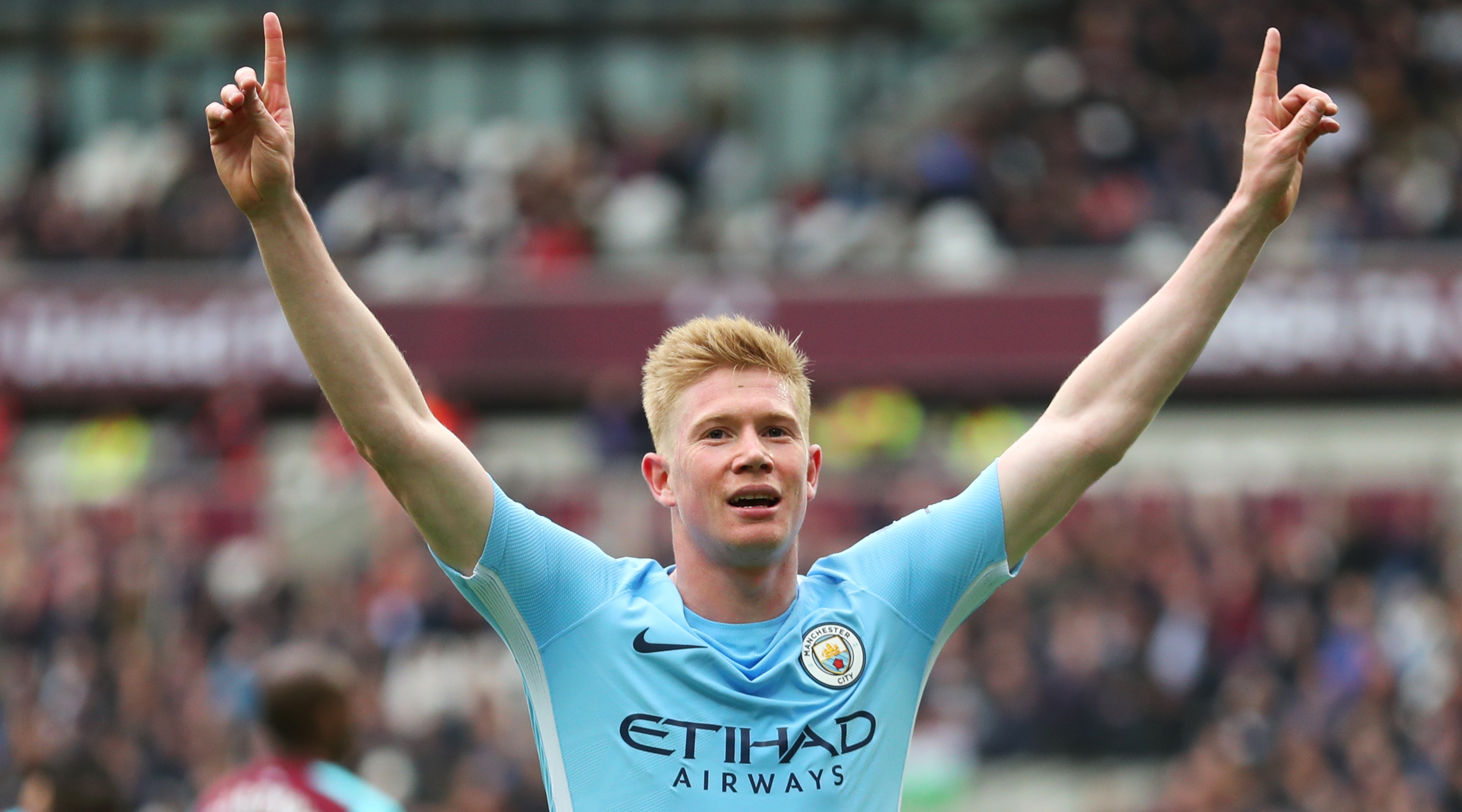
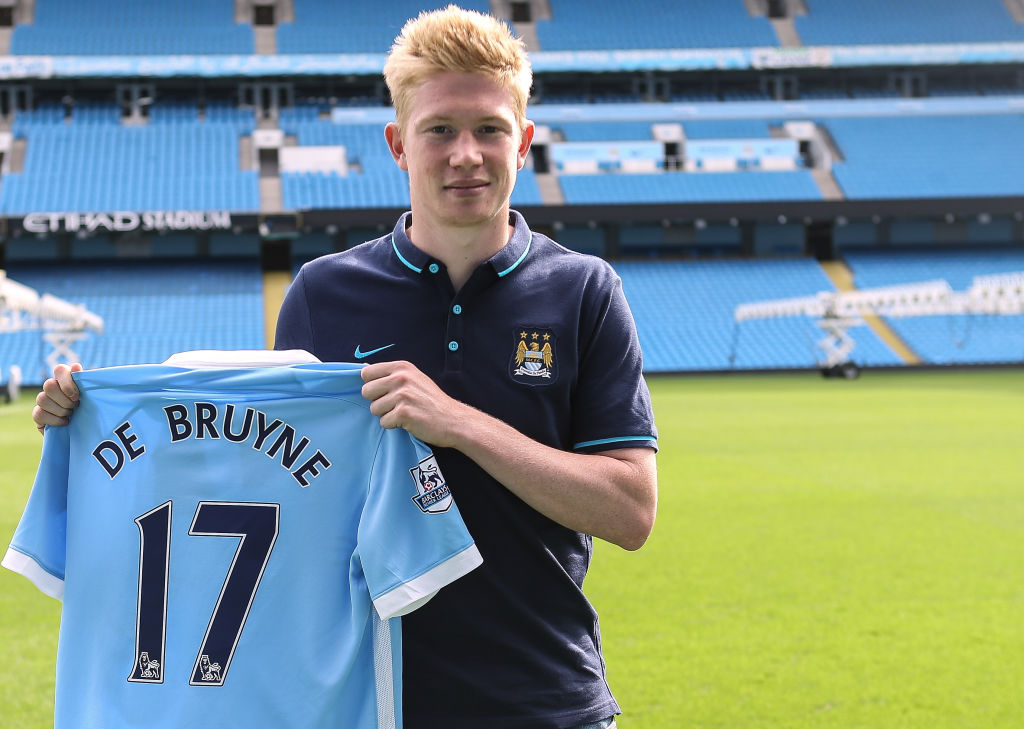

POSITION Midfielder
CLUBS Chelsea (2013-14), Manchester City (2015—)
APPS 278
GOALS 70
This piece was taken from FourFourTwo magazine during 2020, when Kevin De Bruyne equalled Thierry Henry's record of 20 assists in a season
It’s said that when the Wimbledon roof closes and Roger Federer’s on Centre Court, it’s game over. You can’t beat the man for precision with no wind, no sun glare over his sweatband. Without the elements, you’re battling the inevitable scythe of defeat.
It felt similar watching Kevin De Bruyne in desolated stadiums, post-lockdown, chiselling away at Thierry Henry’s long-standing assist record. There’s comfort in consistency, of course; that should the world drop into darkness and football become a television-only event, you can set your watch by the remorseless swing of a Belgian’s right peg.
But it wasn’t always the case. A slouching Inbetweener at Genk, the teenage De Bruyne drifted through games. Occasionally, he’d log on, launch a rocket and could almost burn the ball through the net - as if he was almost too modest to really let loose.
De Bruyne wasn't a revelation for City, he was a revolution: the David Bowie of the Premier League, a flame-haired rockstar, who hit 20 league assists and picked apart Liverpool in a 4-0 thrashing – the same night as their guard of honour.
In time, he'd find himself. Some midfield generals come to reflect their managers - but Kevin De Bruyne was never really a mirror to the dugout. He was, instead, unshaped playdough for Pep Guardiola to mould.
One wonders if one man’s destination of influenced the other. De Bruyne was a strawberry-blonde David Beckham under Manuel Pellegrini; a supercharged, right-winger with a wicked right boot and work-rate to match. Pep had other ideas: he became a second striker, running beyond Iheanacho to score City’s opener in Guardiola’s Manchester Derby.
He was played out left that first season too, encouraged to interlink with David Silva. But as Pep’s City developed, KDB receded deeper.
In December 2016, Guardiola called the Belgian “our most important player”. On the right of a midfield three, he would sit in the half-space and pick out runners in the box like a sniper. Stoke fans applauded him for the three assists he bagged against them in a 2017 7-2 demolition. Antonio Conte labelled him “a complete player” away at champions Chelsea, as he dropped into full-back positions in build-up, before scoring the winner. Pep found De Bruyne did exactly what he asked – on and off the ball – however he tinked with his side. He wasn’t a revelation. He was a revolution.
He stands above everyone; the David Bowie of the Premier League, a flame-haired rockstar who rendered Real Madrid mortal in the Bernabeu, hit 20 league assists and picked apart Liverpool in a 4-0 thrashing - the same night as their guard of honour.
He’s Guardiola’s general, alright. Not the vocal enforcer that some bosses boast, but a high-functioning, high-octane metronome to set your watch by.
Pep certainly does. Full house or empty, Kevin De Bruyne will tear you apart.
5. Mohamed Salah
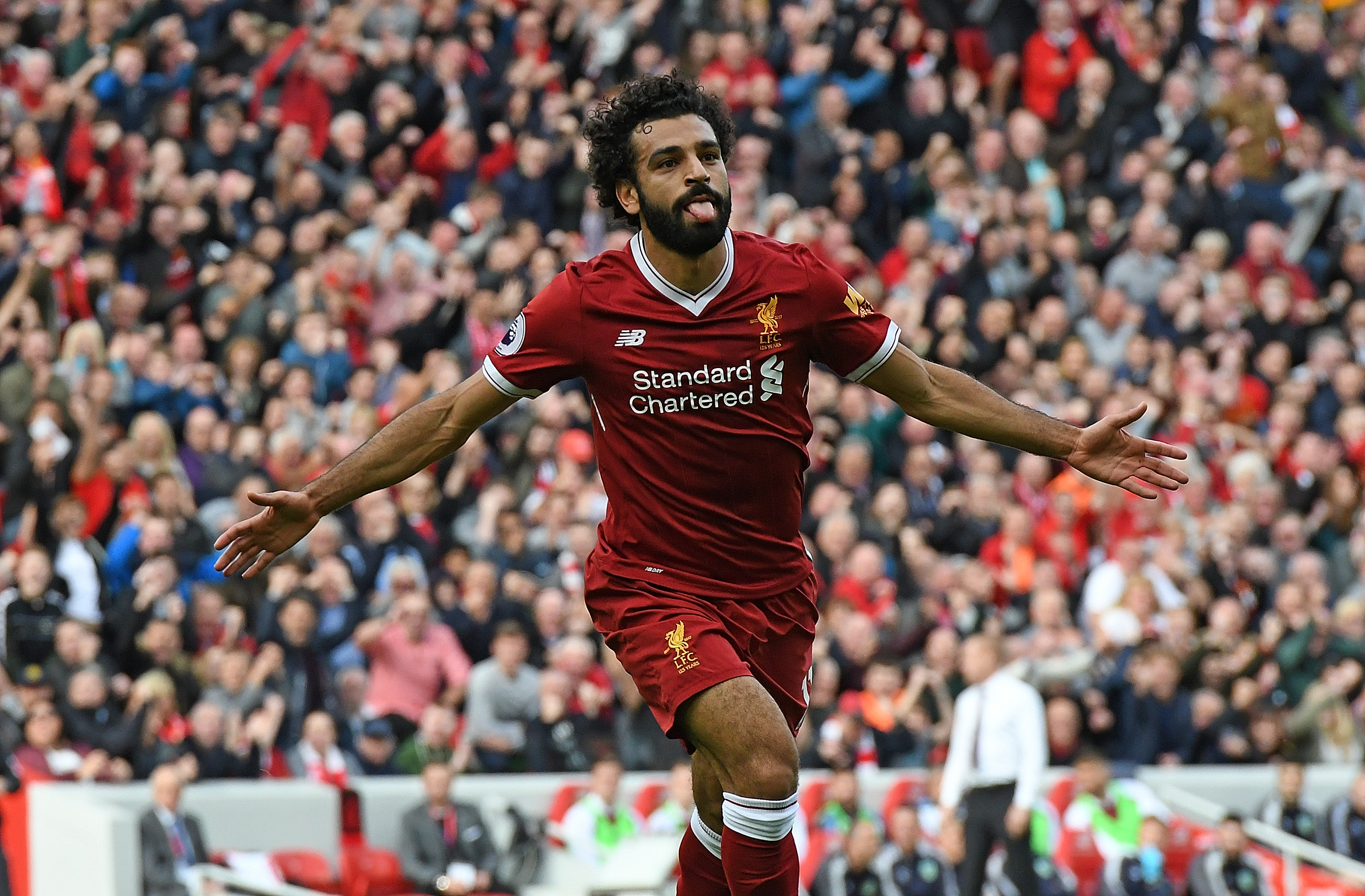
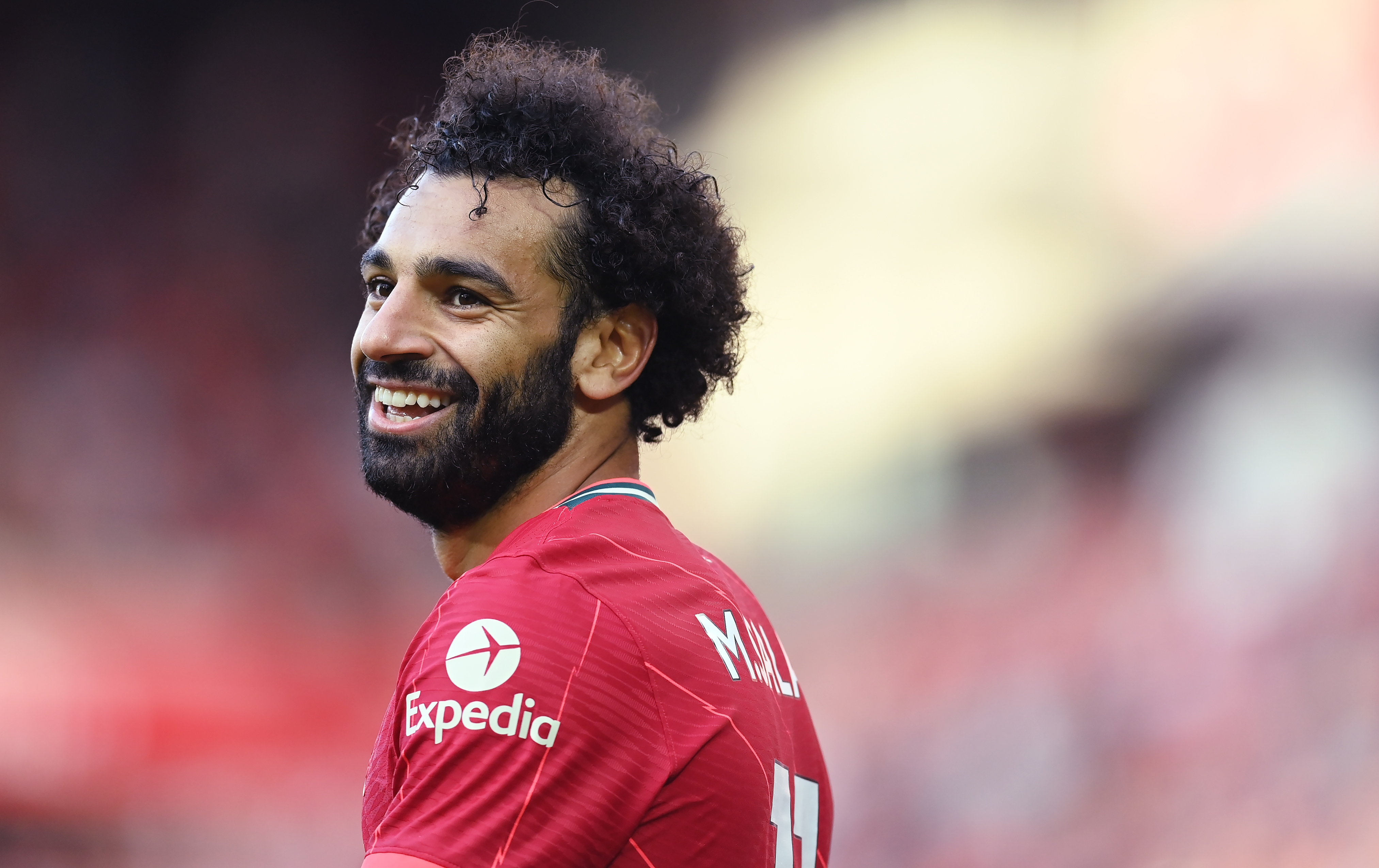
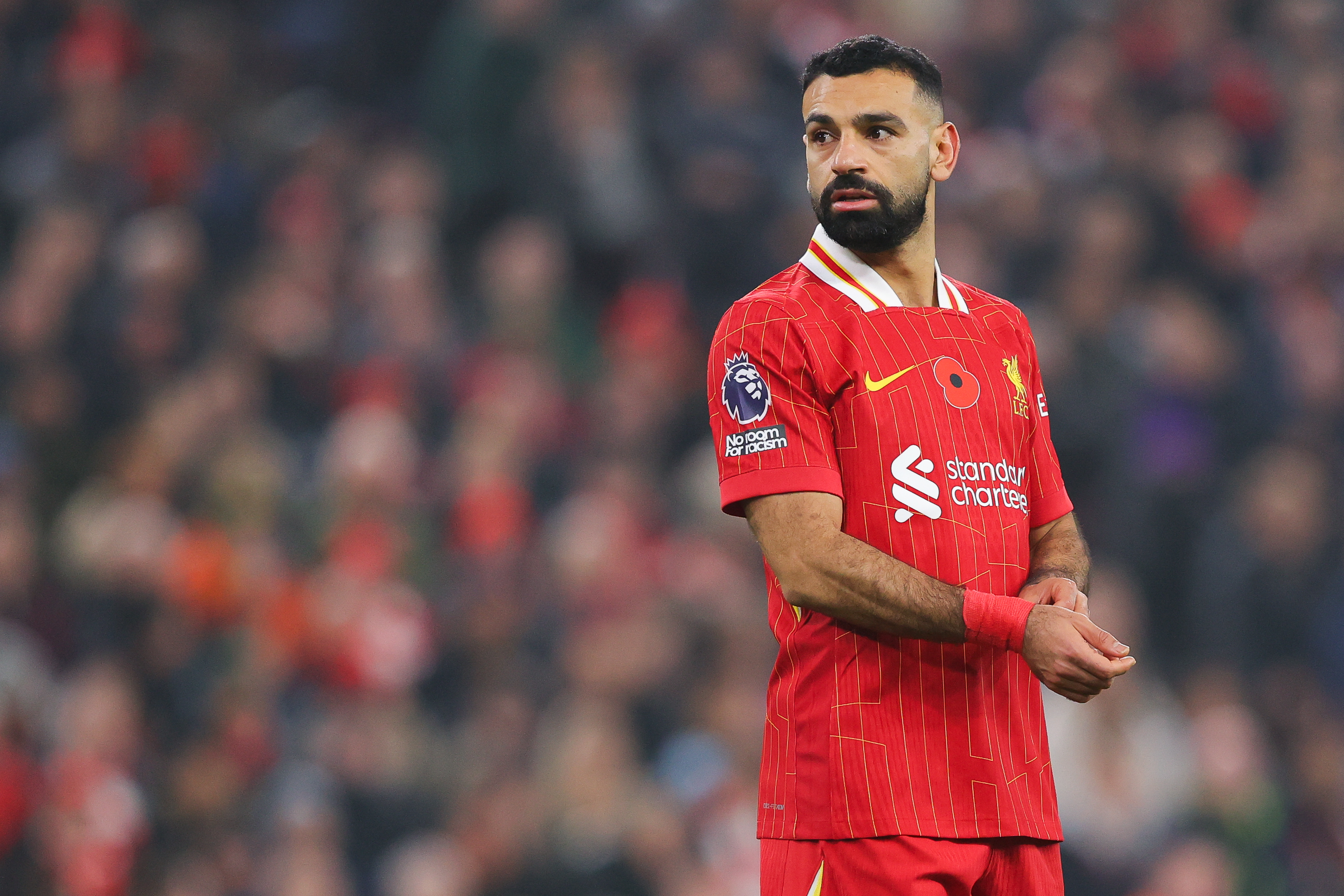

POSITION Forward
CLUBS Chelsea (2013-15), Liverpool (2017—)
APPS 289
GOALS 182
Salah has quietly become a Premier League legend over an incredible run of consistent campaigns: FourFourTwo writer Ben Marsden explains why the Egyptian King is now a certified GOAT in the league…
Mohamed Salah has reached a point in his career where he seems to be breaking an imaginary record for the most records broken. It is now rare to read about an in-form or even world-class player without seeing their abilities qualified by the well-known statement ‘only Mo Salah has more’.
Many believed that he would be a one-season wonder for Liverpool after he notched a staggering 58 goal contributions in his debut campaign of 2017/18. However, he has proved those doubters wrong time and time again, working his way into the top ten of most Premier League goals and most Premier League assists of all time. And all while being an often divisive figure.
Aesthetics is a high-value commodity in football leading many to favour the flair of Hazard or the skill of Henry over the Egyptian’s robotic output. Yet in the twilight of his career, Salah has shown a remarkable ability to transform his game.
In the early days, Liverpool fans were treated to direct dribbling that caused havoc across Europe. Now, at 32, Salah is using his world-class passing ability to slice open defences, impacting games in short bursts that kill off the opposition in a flash.
In the twilight of his career, Salah has shown a remarkable ability to transform his game.
His consistency is what sets him apart from the rest. Few players in modern football have produced as relentlessly as the Egyptian king and he seems to be showing no signs of stopping.His 2024/25 season will undoubtedly be viewed as one of, if not the best individual season of all time in the Premier League.
Perhaps it is his misfortune to have come up against one of the greatest sides in English football, Pep Guardiola’s Manchester City, that means he is not already considered one of the greatest footballers of the 21st century. A Ballon d’Or at the end of the campaign would surely cement this status.
4. Alan Shearer
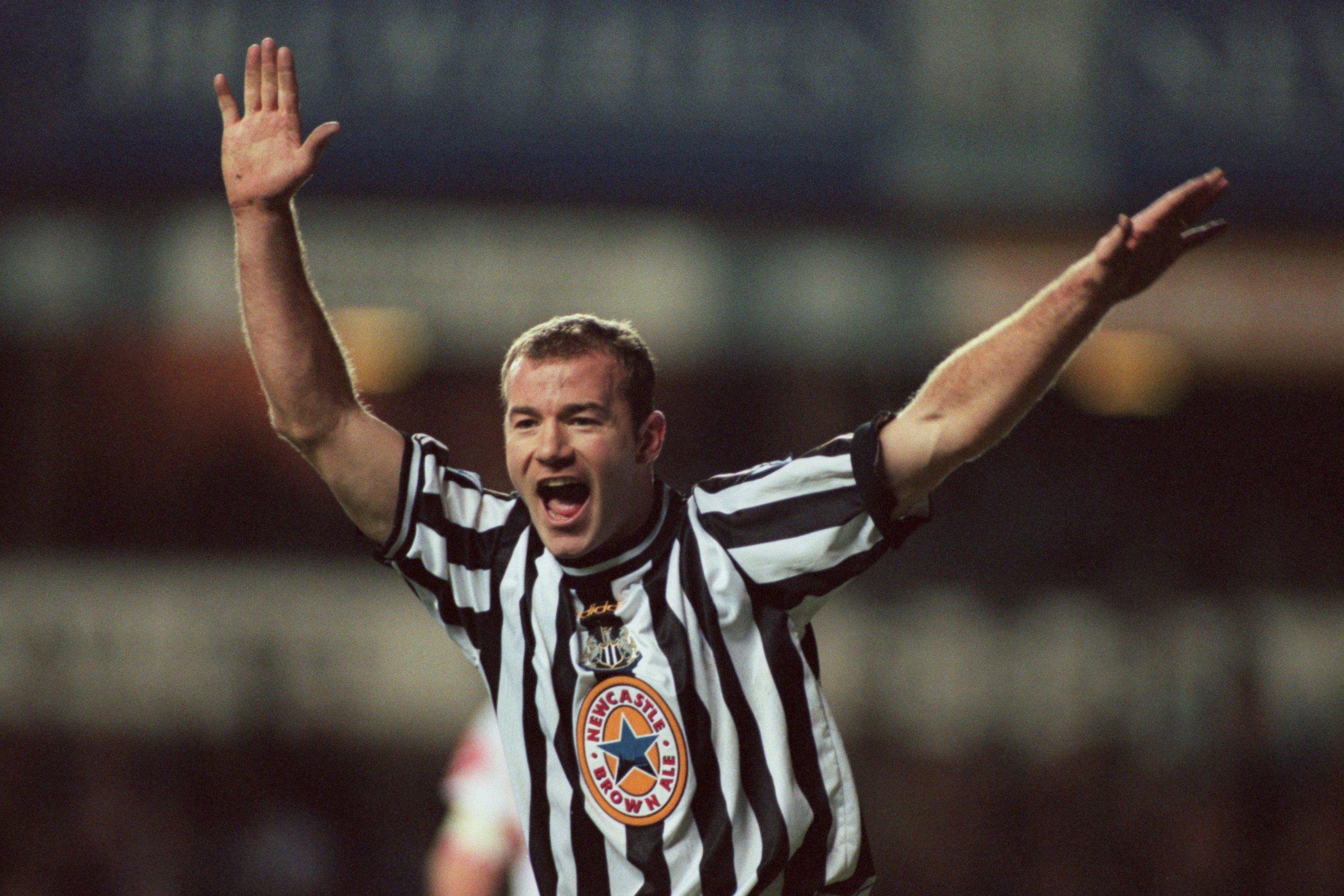

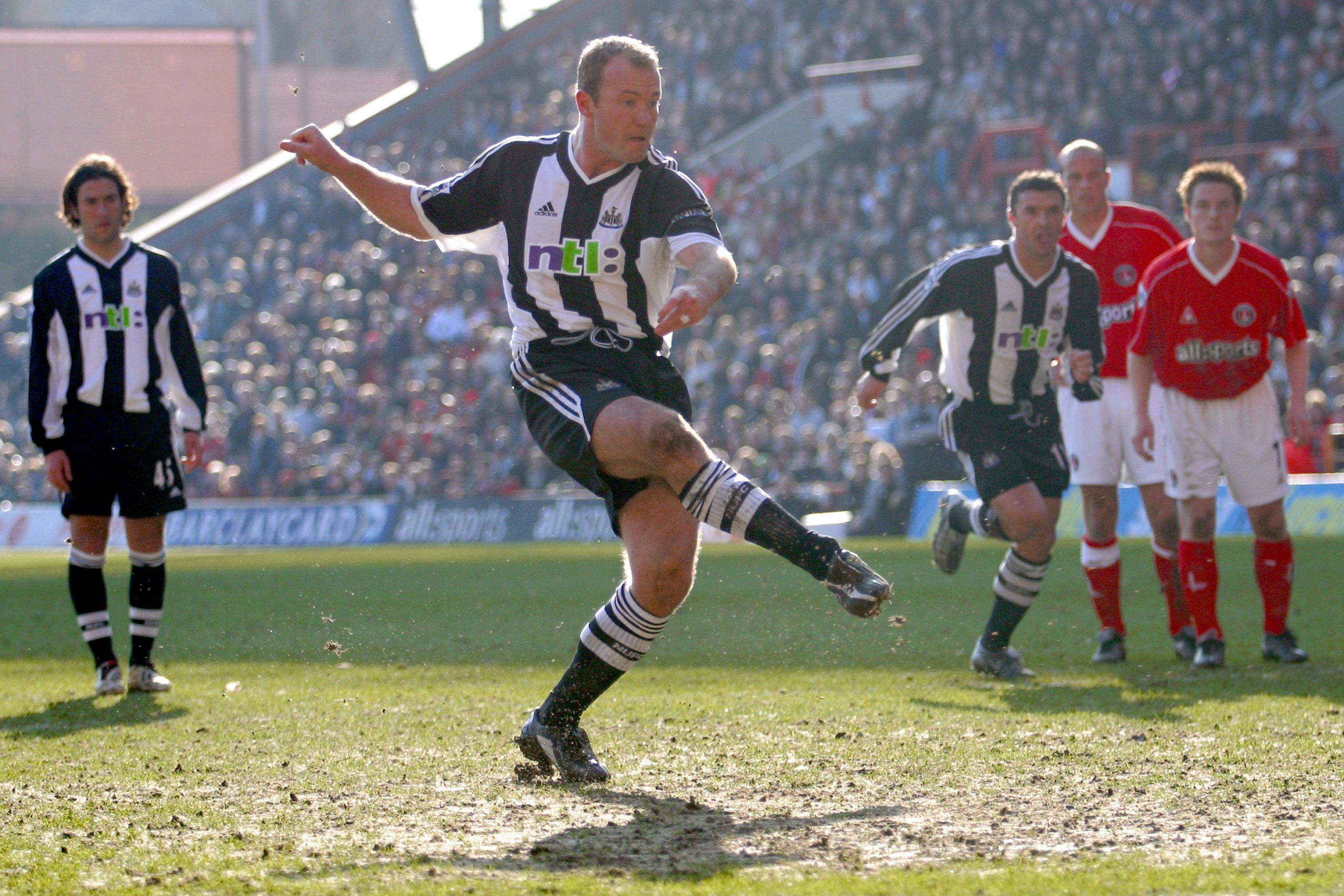

POSITION Forward
CLUBS Blackburn Rovers (1992-96), Newcastle United (1996-2006)
APPS 441
GOALS 260
Shearer retired with 283 league goals – and one celebration. Rich Jolly explains what made the all-time Premier League top scorer quite so unique…
Shearer’s relentlessness and ruthlessness brought him accolades. He’s still by far the fastest to a Premier League century (in 124 games, 17 fewer than anyone else); still the only Englishman to scoop the Golden Boot three years in a row; still alone in scoring 30 in three consecutive campaigns; still alone in hitting 20 in seven Premier League seasons.
He plundered 31 for a Blackburn team that came seventh and 23 for a Newcastle outfit that finished in the bottom half of the table. He smashed five goals in a fixture when the Magpies started the day in 19th place. No one else with a ton of Premier League goals for one team comes close to his ratio of 0.81 per game for Blackburn.
Throw in his 64 assists, and no one else has been involved in 324 Premier League goals. Two factors make the bare statistics even more remarkable.
Only Jimmy Greaves, Steve Bloomer, Dixie Dean and Gordon Hodgson have struck more goals in England’s top-flight.
Two cruciate ligament injuries forced him to evolve from an eager channel-runner who liked playing alongside a targetman, to the physical focal point who, aided by Sir Bobby Robson’s advice, remained potent.
Second: he turned down Manchester United in 1996 for the siren call of his native Tyneside. With the Red Devils’ supply line, his 260 efforts might have surpassed 300.
Instead, after leading Blackburn to a first top-flight title in 81 years, he endured five lower-half finishes with his hometown club. Yet, as Kenny Dalglish – his manager at both Blackburn and Newcastle – informed Shearer inelegantly once, “It didn’t matter who you played for, you always battered them in.”
Brute force was often allied with finesse. Shearer’s favourite goal, his cannonball volley against Everton in 2002, is a case in point. He was a wonderfully clean striker of the ball, but was also brilliant in the air: only Peter Crouch has notched more Premier League headers, and he has a seven-inch height advantage.
Only Jimmy Greaves, Steve Bloomer, Dixie Dean and Gordon Hodgson have struck more goals in England’s top flight. Shearer is eternal – and up there with the greatest ever.
3. Wayne Rooney
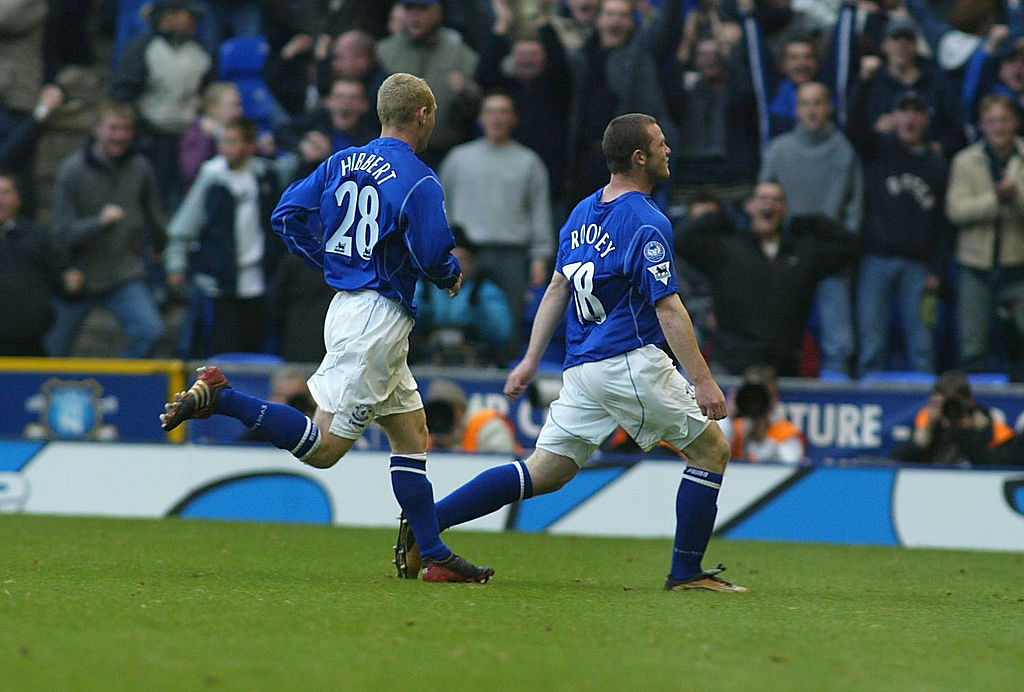
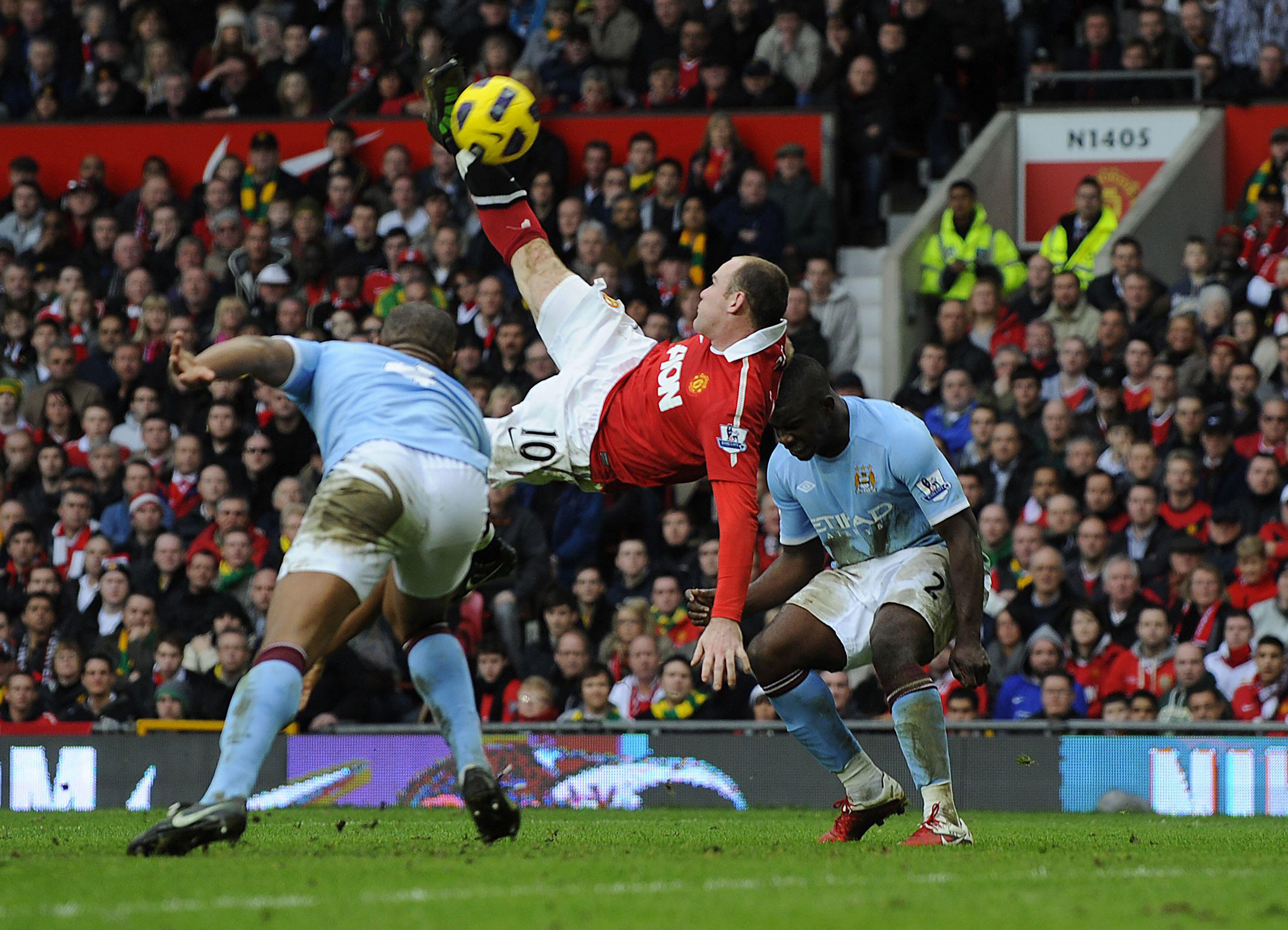
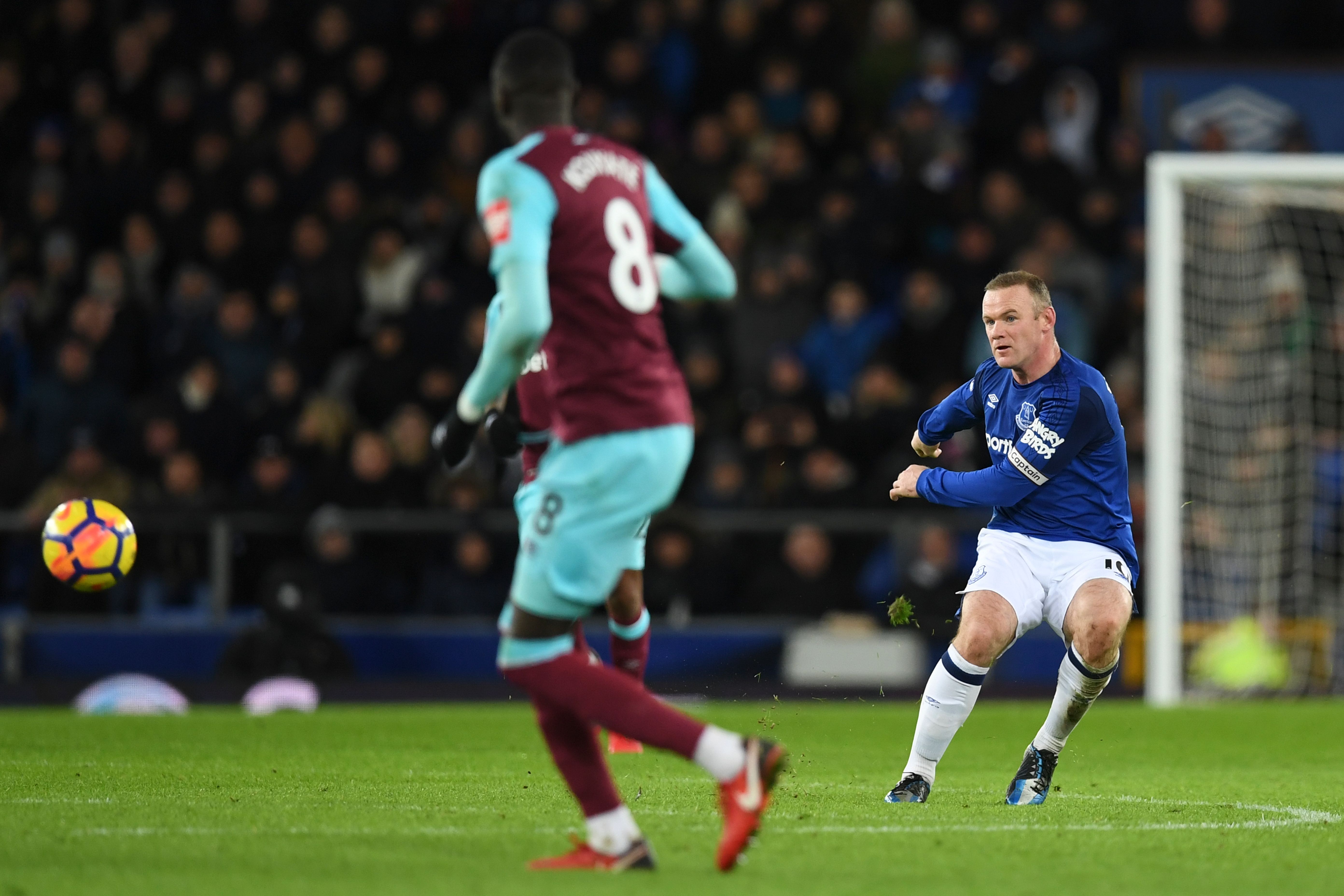

POSITION Forward
CLUBS Everton (2002-04, 2017-18) Manchester United (2004-17)
APPS 491
GOALS 208
FourFourTwo's Ryan Dabbs on why Rooney was unlike anyone else in Premier League history…
A grizzly man at the age of 16, Rooney entered the Premier League stage like he’d always belonged with such swagger and belief that it terrified the living daylights out of defenders twice his senior.
Met with chants of ‘Who are ya’ by Tottenham fans on his Everton debut, Rooney quickly became their cult hero two months later when, playing against Arsenal, he brought a high ball out of the air, made Sol Campbell back off and curled a 30-yard stunner past David Seaman. From there, he never looked back. The teenager quickly became England’s best hope of winning a major trophy, with his bullish stature in attack rightly earning plaudits from across the country and Premier League. Arsene Wenger even called him “the best England talent since I arrived here”. Not bad.
For some young players, that pressure would have weighed heavy; for Rooney it fuelled his fire, lighting a match under him to go out and produce week after week. His street football-style provided an entertainment that had been sorely lacking from English talent, with the striker popping up all over the pitch launching into tackles, pinging 60-yard cross-field balls and getting on the end of crosses.
His £27m-or-so move to Manchester United aged just 18 proved how highly Sir Alex Ferguson rated him, with Rooney soon cementing himself as a legend at Old Trafford. Outrageous goals against Newcastle in 2005, Manchester City in 2012 and West Ham in 2014 highlights his penchant for the sublime, and while he ended up as Manchester United’s record goalscorer, he was so much more than that.
As Cristiano Ronaldo starred, Rooney selflessly and diligently carried out the defensive duties his Portuguese team-mate cast off. And, when the time came for him to stand still and act as a No.9, he produced arguably better than any other striker in the Premier League’s history. Ordered to conserve his energy during the 2009/10 season and stick to the last line, Rooney delivered an astonishingly fruitful 26 goals in just 32 appearances, including one of the most rapid counter-attacking goals against Arsenal at the Emirates.
Rooney entered the Premier League stage like he’d always belonged with such swagger and belief that it terrified the living daylights out of defenders twice his senior.
And, while his temper could sometimes get the better of him, without it there’s reason to suggest Rooney might have never reached such scaling heights he did. It’s how Rooney acted on the pitch that endeared himself to fans across the country. As football became more sterile his rough-around-the-edges approach caught the attention, playing out the dream every fan held as a kid.
Five Premier league titles, 208 goals, a PFA Player of the Year award and countless other accolades, at a time when superstars dominated the top flight, can easily be overlooked due to his waning powers by the time he hit 30, but it’s also to forget how much impact he had had from the age of 16.
It's likely we’ll never see anything like him again.
2. Cristiano Ronaldo
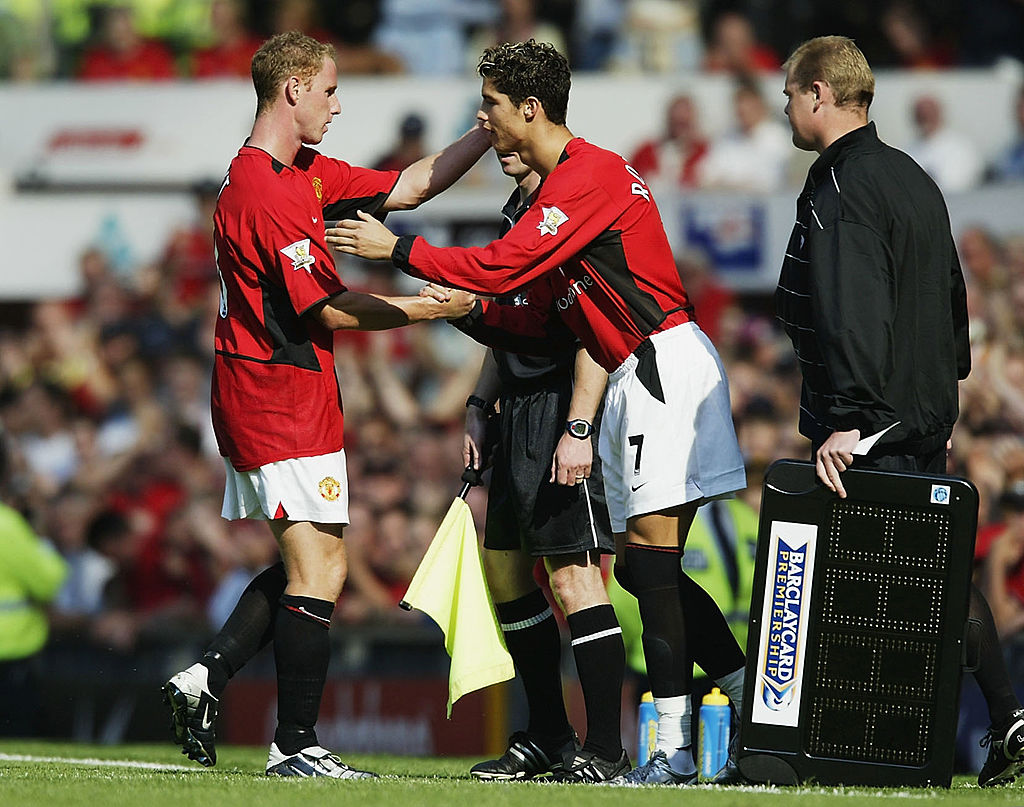
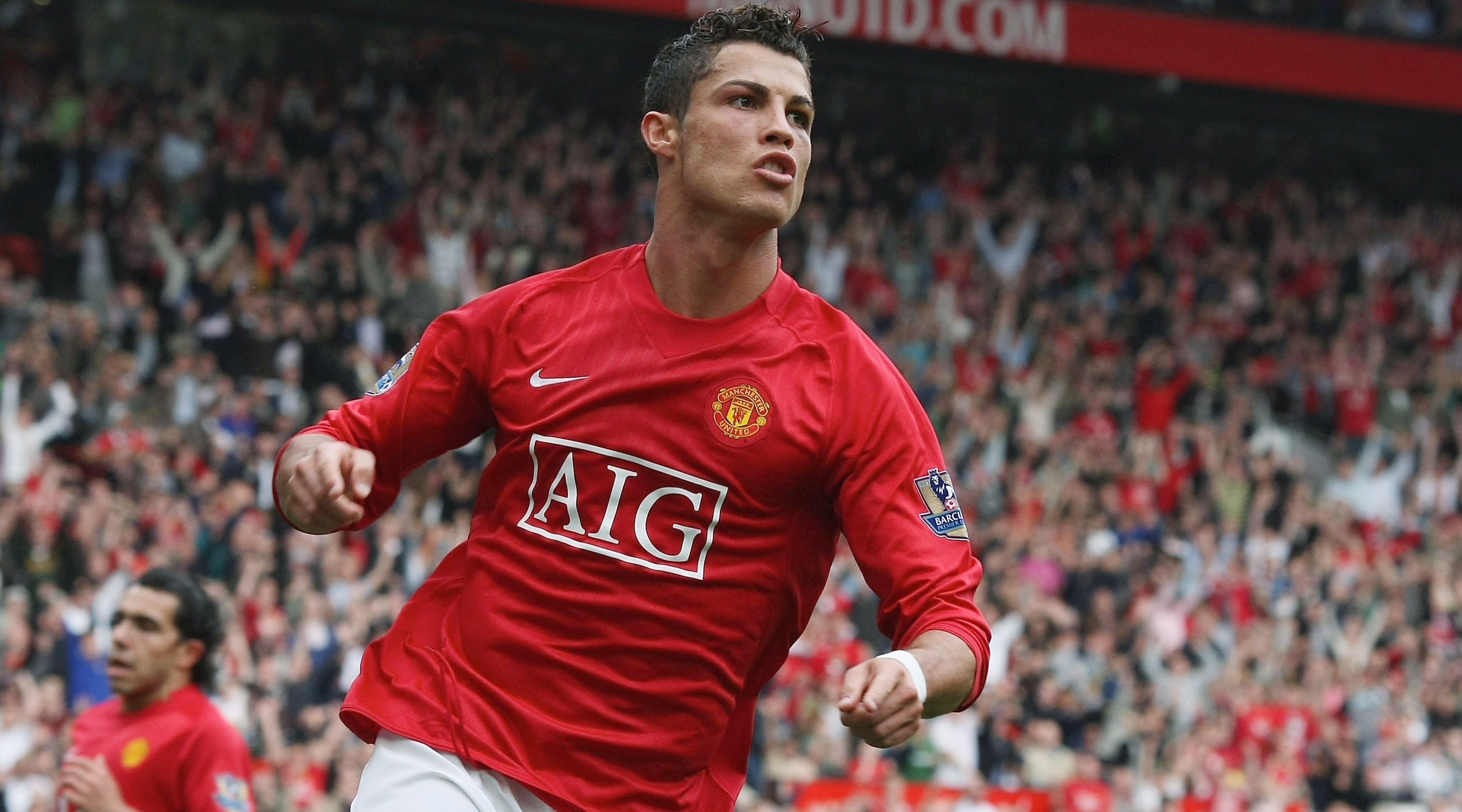
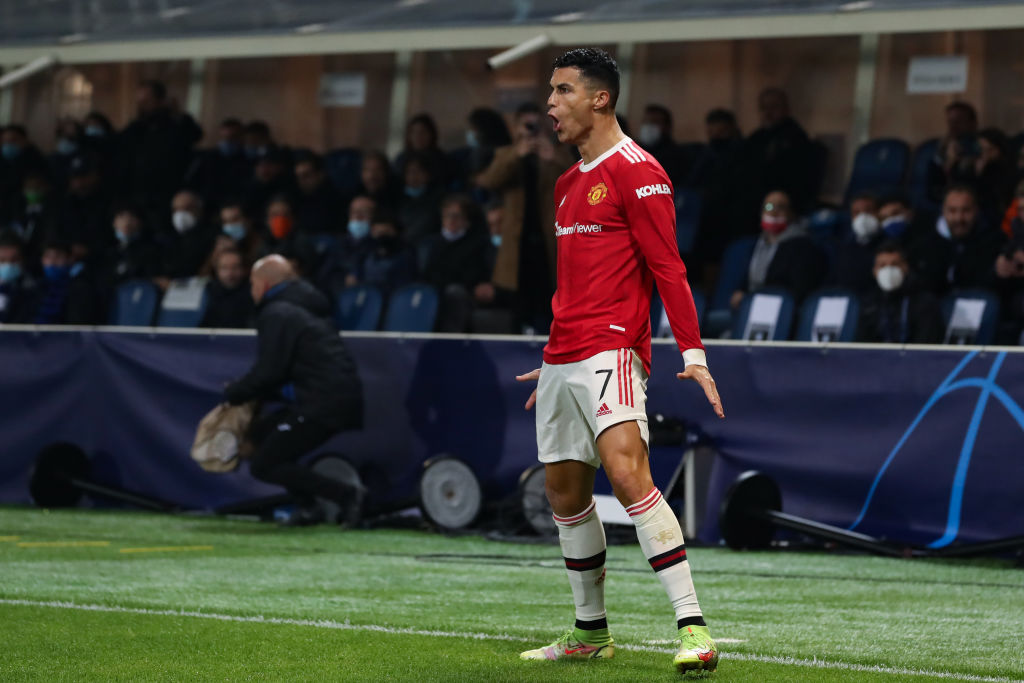

POSITION Forward
CLUBS Manchester United (2003-09, 2021-22)
APPS 236
GOALS 103
FourFourTwo's Chris Flanagan was there for Cristiano Ronaldo's debut for Manchester United against Bolton Wanderers. This piece was taken from FourFourTwo magazine in 2022.
On August 16, 2003, a pair of substitutes made their debuts for Manchester United. The first went on to become one of the greatest players of all time; the second went on to become Eric Djemba-Djemba.
Djemba-Djemba’s Old Trafford career was doomed before he had stepped on the field. Introduced only six minutes after Cristiano Ronaldo, he had already been left with an impossible act to follow.
Manchester United were labouring against Bolton in their league season opener, leading 1-0 after an hour, when Ronaldo replaced Nicky Butt. Aged 18, with blond streaks in his hair that hinted at a certain confidence, the wonderkid had arrived from Portuguese side Sporting for £12.5m days earlier, taking the No.7 shirt vacated by David Beckham. The crowd greeted CR7’s introduction so loudly, and with such elation, that you wondered whether the new boy could possibly match their sky-high expectations. In fact, he more than exceeded them.
Everyone present that afternoon knew that a star had been born.
Not only did he have the balls, he frequently had the ball in the final half-hour, becoming United’s go-to man as it became obvious how devastatingly effective he could be. “He did about 100 stepovers and earned a penalty,” Kevin Davies later told FFT.
These days, Ronaldo would seize the ball and stick the penalty into the net himself – back then, Ruud van Nistelrooy had spot-kick duties and was denied by Jussi Jaaskelainen. It didn’t matter: Ronaldo soon grabbed hold of possession again and whipped in a cross that eventually led to Ryan Giggs making it 2-0 from close range.
Still the prodigy wasn’t done. “Of his own volition, Ronaldo moved out to the right wing and put two superb crosses in,” continued his gaffer. “The crowd on that side of the ground responded as if a Messiah had materialised before their eyes.”
Ferguson hailed it as “a marvellous debut, almost unbelievable”. “Undoubtedly the most exciting debut performance I’ve ever seen,” was George Best’s assessment, himself an iconic United No.7. By the time Ronaldo left the field at the final whistle, the Old Trafford faithful were chanting his name. For six years, they rarely stopped.
Everyone present that afternoon knew that a star had been born. Only one man has ever been named FIFA World Player of the Year while playing in the Premier League – and it wasn’t Eric Djemba-Djemba.
1. Thierry Henry
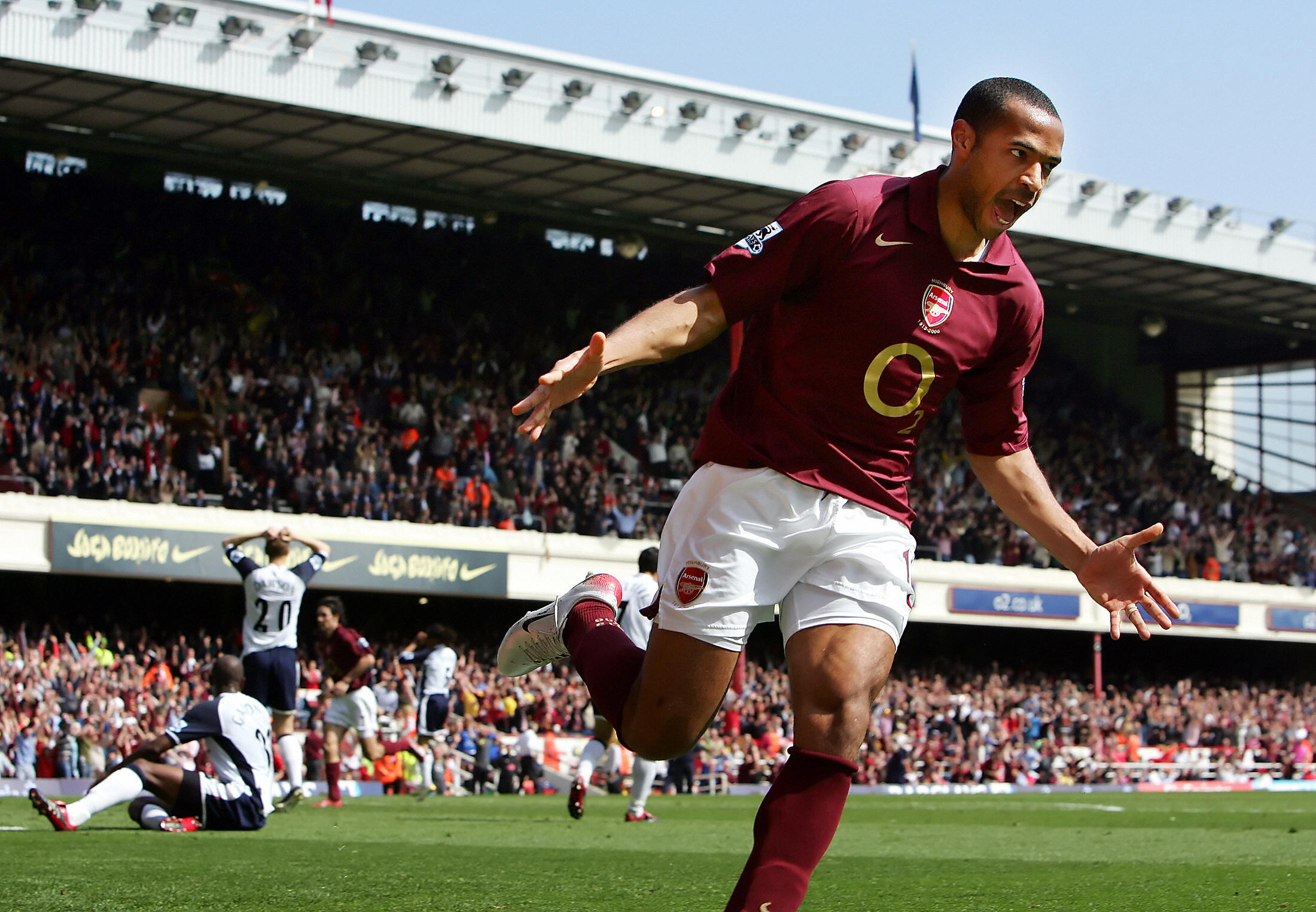
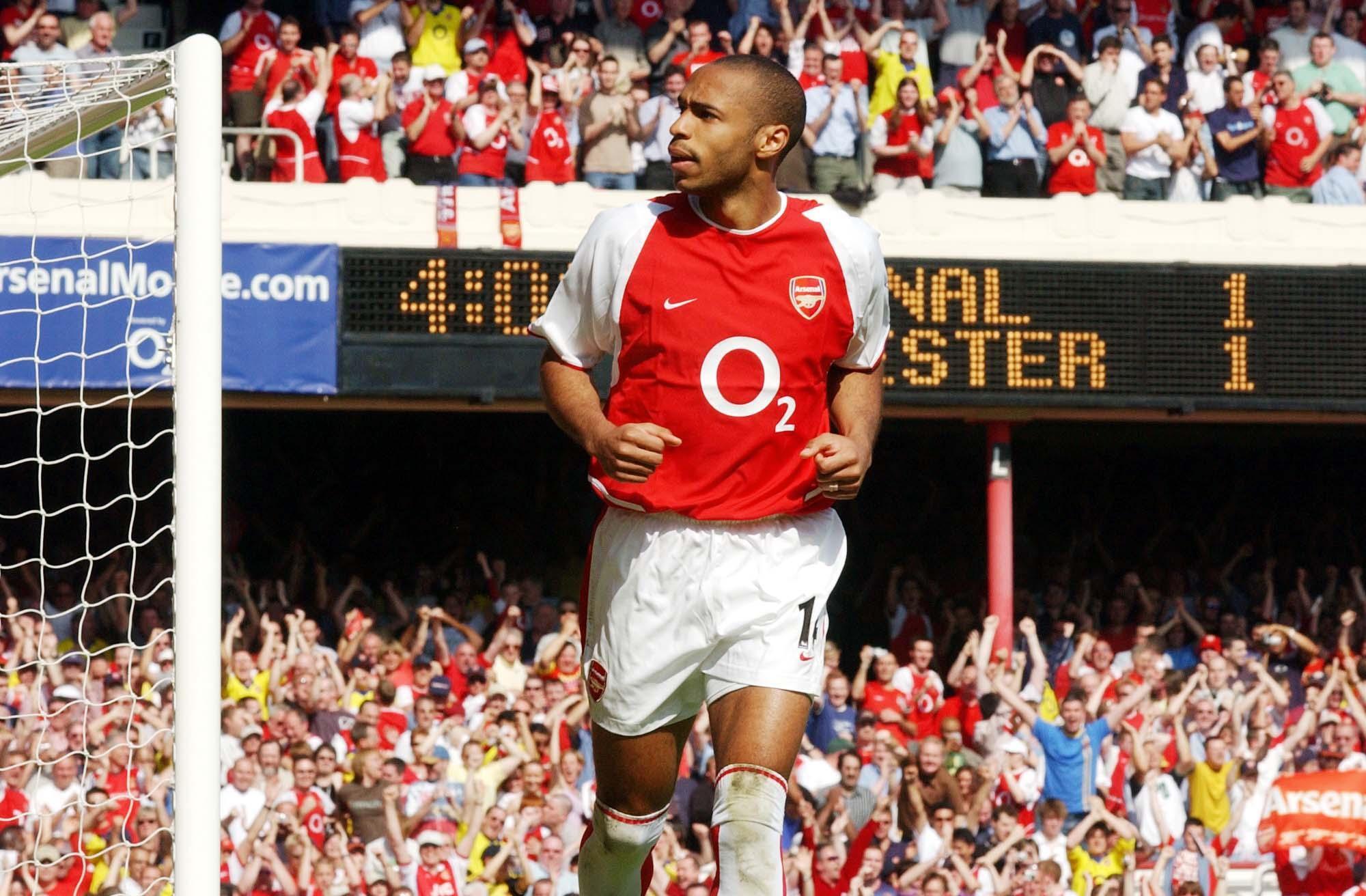
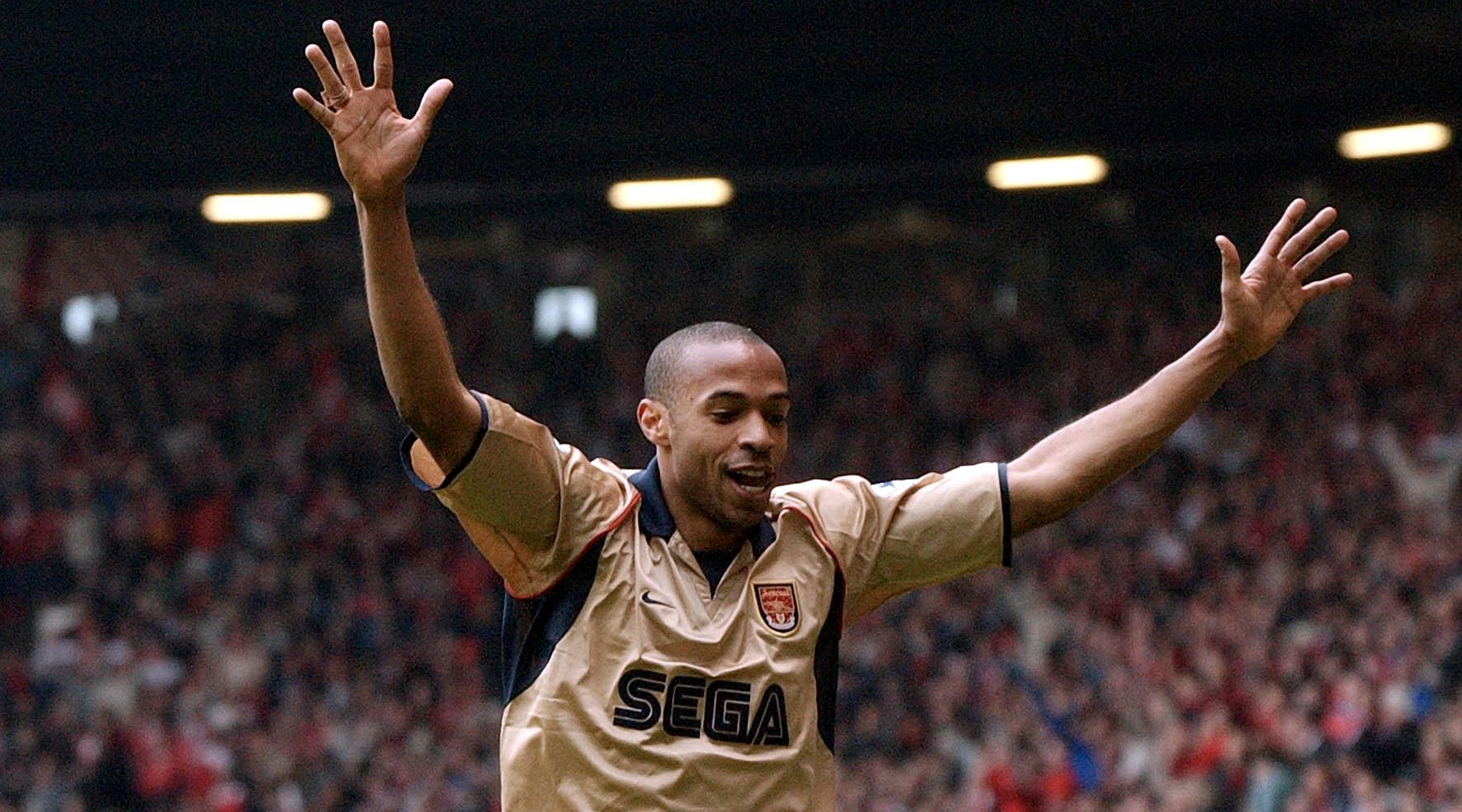

POSITION Forward
CLUBS Arsenal (1999-2007, 2012)
APPS 258
GOALS 175
Thierry Henry takes the top spot for us – taken from FourFourTwo magazine in 2022, FFT's Mark White explains what made the Frenchman the greatest of all time.
In truth, Henry’s hat-trick clincher at home to Liverpool in April 2004 was quite fluky. It was, though, the only moment all afternoon that he wasn’t in abundant control.
Arsenal’s equaliser was a mirror to Henry’s first Highbury league goal against Derby, only less nervously placed – a first-time, left-foot strike. By now, however, such lethal finishing felt like vintage Thierry, rather than an Ian Wright tribute act.
Arsenal trailed 2-1 to the Reds at half-time, their Invincibles status in jeopardy, but Henry seemed to slow down time by the touchline after the break; jogging, his right leg hovering like a magician’s handkerchief over a dove, before passing to Ljungberg who looped Pires in to level proceedings. A minute later, it was all over.
Henry had immense power but made football look weightless.
Henry picked up the ball by the centre circle, then strode beyond Didi Hamann, bamboozled Jamie Carragher, folded Liverpool inside-out and buried home in the bottom corner. Henry had immense power but made football look weightless.
No one has won the Golden Boot more times. No one assisted more in a season. No one has terrorised defenders with such a combination of bewitching grace and phenomenal power. He was the catalyst in two Premier League titles for Arsenal, carried them on his back during the dark days and lit up English football with his signature swagger.
And as the years pass by, it's becoming ever-more relevant. Henry was the yardstick to which we hold all Premier League players – past, present and future – not just in terms of pure numbers but pure entertainment.
Thierry Henry isn’t just the King of Highbury or a once-in-a-generation striker. He represents the artistry with which Arsene Wenger’s greatest sides flourished. He made football fun; it looked classy, effortless and beautiful all in one.
He may have left Arsenal in 2007, but Henry at his peak would have thrived in any era, in any team in Premier League history.
Current page: The best Premier League players ever: 25-1
Prev Page The best Premier League players ever: 50-26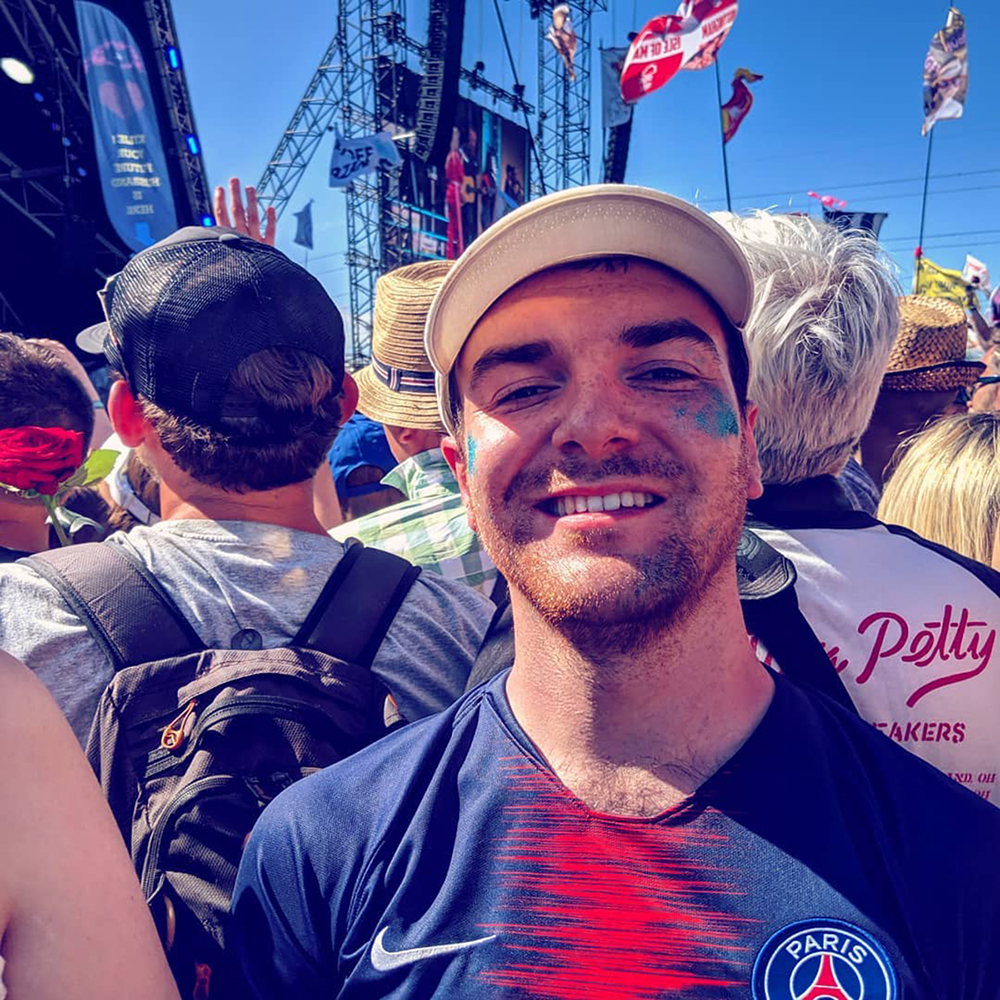
Mark White has been at on FourFourTwo since joining in January 2020, first as a staff writer before becoming content editor in 2023. An encyclopedia of football shirts and boots knowledge – both past and present – Mark has also represented FFT at both FA Cup and League Cup finals (though didn't receive a winners' medal on either occasion) and has written pieces for the mag ranging on subjects from Bobby Robson's season at Barcelona to Robinho's career. He has written cover features for the mag on Mikel Arteta and Martin Odegaard, and is assisted by his cat, Rosie, who has interned for the brand since lockdown.
- Matthew Holt
- Chris FlanaganSenior Staff Writer
- Ben Marsden
- Tim Stillman
- Steven Chicken
- Joe Mewis
- Conor PopeOnline Editor
- Ed McCambridgeStaff Writer
- Chris Nee
- Richard Jolly












